- Our PhD Students

PhD Cohort 2020
Dennis barrow.
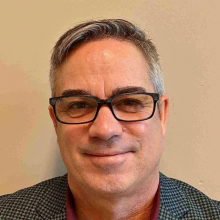
- Narrative inquiry
- Sexual minorities
- Gender Roles
- Anti-oppressive Education
- Critical literacy and social justice
- Autoethnography
Lynn Cummings
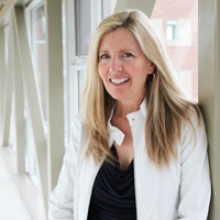
- Equity and inclusion in education
- Educational policy
- Critical pedagogy
- Integrated curriculum
Christopher Godfrey
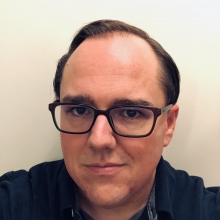
- Educational Technology & Classroom Integration
- Professional Learning Experiences
- Participatory Action Research
- Qualitative Studies
Jamie Jackson
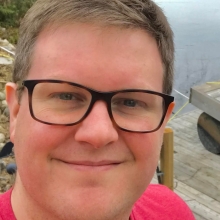
- Mental health of educators
- Student well-being
- Canadian education
- Critical Theory
- Gender Theory
Rebecca Kasperavicius

- Information Literacy
- Embedded Librarianship
- Phenomenology
- Critical Theory
- Perceptions of Academic Librarians
Jerome Kroetsch
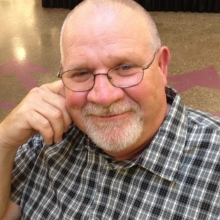
- Holistic leadership
- Educational administration
- Managerial competency development
- Indigenous ways of knowing
- Actor-Network Theory
Christopher Peters
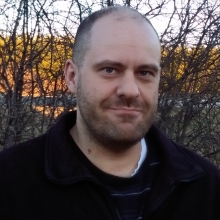
- Neurodiversity
- STEAM education
- Critical theory
- Long-term impacts of bullying
- Mixed methods
- Teacher and learner mental health & well-being
- Second language education
- Sustainability
- Teacher training
- Adult education
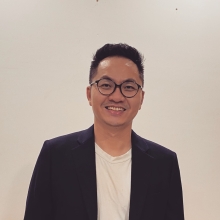
- Financial literacy
- Social justice
- Equity in education
- Equity for LGBTQ+
Tessa Troughton
Phd cohort 2019, leila kharazmi.
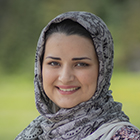
- Literature and education
- Illustration books and learning
- Technology in education
Michelle McMartin

- Dialogic pedagogy
- Critical literacy
- Building learning communities for equity and wellbeing
- Empowering and valuing the voices of children
Deborah Michaud
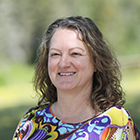
- Participatory action research
- Fetal Alcohol Spectrum Disorder
- Developmental assets
- Child welfare training
Christina Page
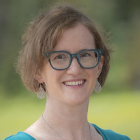
- Internationally-educated learners in post-secondary institutions
- Educational experiences of refugee-background youth and adults
- Culturally relevant pedagogies
- Critical pedagogies
Tammy Lynn Ross
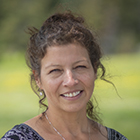
- Qualitative research
- Universal design
- Indigenous worldview
Deborah Yawney
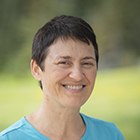
- Food literacy
- Sustainability
PhD Cohort 2018
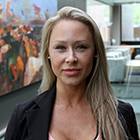
- Student mental health
- Guided mindfulness meditation
- Holistic therapy
- Quantitative methodology
Derek Martin
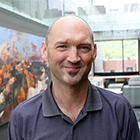
- International education
- Student mobility
- Intercultural (communicative) competence
- Educational leadership
- Collaborative conflict resolution and peacebuilding
Jeff Thornborrow
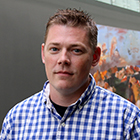
- Children's mental health
- Attachment based education
- Social work leadership
- Social constructivism
- Humanist perspective
- Mixed methodology
Melanie Manitowabi
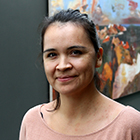
- Indigenous methodologies and its impact on profession learning
- Critical race theory
- Mentorship and its impact on student learning
- Anishaabemowin and land based learning and its impact on well-being
Jessica Poff
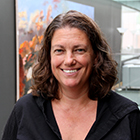
- Alternative schooling (unschooling, homeschooling, free schooling)
- Risk-aversion and resilience
Betty Jo McCabe
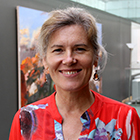
- Workplace learning
- Leadership and change
Angie Bruce
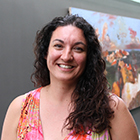
- Indigenous leadership, governance and political structures
- Indigenous methodologies
- Relationship dynamics and empowerment
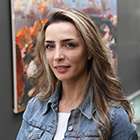
- Equity and inclusion
- Adult learning
- Faculty vitality
- Learner-centred teaching
- Learners as partners
- Identities and intersectionalities
- Universal design for learning
Dr. Allison Tucker - Graduated February 2022
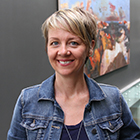
Read Dr. Tucker's Dissertation
PhD Cohort 2017
Dr. susan picard - graduated october 2020.
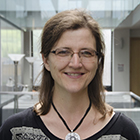
- Special education with a focus on gifted education
- Perspectives on inclusion
- Theory of positive disintegration and emotional development
- Ecopedagogy and sustainability
- Qualitative inquiry: appreciative and narrative
Read Dr. Picard's Dissertation
Deva Balan Moorthy
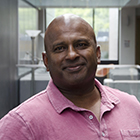
- Truth and reconciliation
- Indigenous principles of learning in schools
- Social constructs of race and race relations
- Ethics of care in school systems
- Creating equitable learning spaces
Dr. Dany Dias - Graduated June 2021
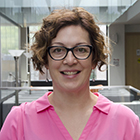
- Critical pedagogy/critical theory
- Adolescent literacy
- Mental health issues in education
- Qualitative research methodology
Read Dr. Dias' Dissertation
Vivian Papaiz
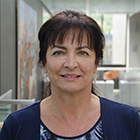
- Palliative care nursing education
- Experiential learning, reflexive learning, adult learning
- Humanism and the ethic of care, ways of knowing
- Nursing competencies in hospice palliative care
PhD Cohort 2016
Patricia chabbert, dr. michael crant - graduated june 2020.
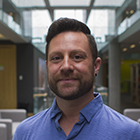
- Inclusive educational values and practices for non-traditional learners
- Identity and student development
- Global and holistic education
Read Dr. Crant's Dissertation
Nicole Gardner
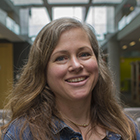
- Values-based pedagogy
- Sustainable living
- Self-directed, life-long learning
- Holistic education
Richard Kennelly
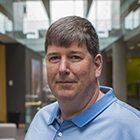
- Education leadership
- Ethical decision-making
- Boys achievement
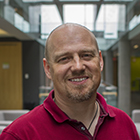
- Social work education
- Field placement in social work education
- The intersection of class and field education
- Principles of praxis in post-secondary education
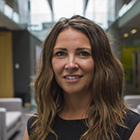
- First Nations policies
- First Nations governance
- Sustainable education funding for PSE for First Nations
- Indigenous knowledge and pedagogy
PhD Cohort 2015
Dr. daniel brant - graduated october 2021.
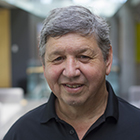
Read Dr. Brant's Dissertation
Dr. Sandra Browne-Kealey - Graduated May 2019
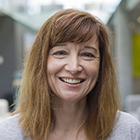
- Mental health
- Inclusive education
- At-risk learners
Read Dr. Browne-Kealey's Dissertation
Erin Horvath
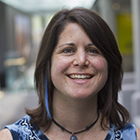
- Change-orientated leadership
- Experiential and adventure-based teaching/learning
- Indigenous rights and worldviews
- Arts-based research and learning methodologies
- Resilience and skill development in traumatized populations
Dr. Sarah Hunter - Graduated February 2021
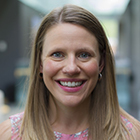
- Mindfulness and the post-secondary learner
- Student development and post-secondary persistence
Read Dr. Hunter's Dissertation
PhD Cohort 2014
Dr. michelle brunette - graduated may 2018.
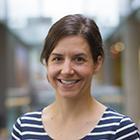
- International students; cross-cultural transitions
- Sport and physical activity as an educational tool
- Public private partnerships; sport and education marketing
- Leadership and cross-cultural competency skill building
Read Dr. Brunette's Dissertation
Dr. Amanda Carvalho - Graduated May 2018
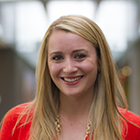
- Vocational education
- Critical narrative research
- Feminist epistemology
Read Dr. Carvalho's Dissertation
Dr. Sarah Driessens - Graduated October 2018

- Student engagement
- Higher education
- Social inequality in higher education
Read Dr. Driessens' Dissertation
Dr. Kathryn Ewers - Graduated October 2021
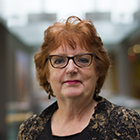
- Nursing curriculum and evaluation models
- Nursing preceptor education
Read Dr. Ewers' Dissertation
Dr. Laurie Peachey - Graduated October 2018
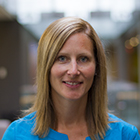
- The use of maternal child simulation in nursing education
- Self-efficacy and self-regulated learning
- Maternal confidence in childbirth experiences
- Preparation for entry-level nursing competencies
Read Dr. Peachey's Dissertation
Dr. Adam Podolski - Graduated May 2018
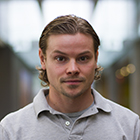
- Student resiliency
- Ethnography
Read Dr. Podolski's Dissertation
Dr. Sunaina Sharma - Graduated August 2018
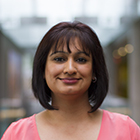
- Technology use in the classroom
- Understanding the 21st century learner
- Experiential learning
Read Dr. Sharma's Dissertation
Dr. Kerry Surman - Graduated June 2017
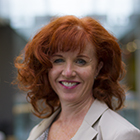
- Educational policy analysis
- College curriculum and pedagogy
- Critical narrative
- Institutional ethnography
Read Dr. Surman's Dissertation
PhD Cohort 2013
Dr. melissa corrente - graduated june 2020.
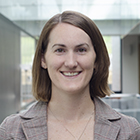
- Teacher attrition
- Childhood obesity
- Teacher education
Read Dr. Corrente's Dissertation
Dr. Glenn Hanna - Graduated June 2016
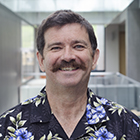
- University/college partnerships
- Post-graduation student success
- "Practical reason"
Read Dr. Hanna's Dissertation
Dr. Brooke Growden - Graduated May 2018
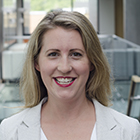
- Homeschooling
- Unschooling
- Early literacy
- Willed curriculum
Read Dr. Growden's Dissertation
Dr. Betty Ann Martin - Graduated June 2017
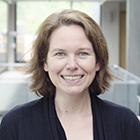
- Gender studies
- Cultural studies
- Birth and mothering
- Identity; depressive illness
Dr. Christine McIntosh - Graduated June 2017
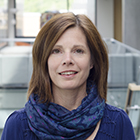
- Healthcare education (systemic)
- Health literacy
- Patient-centred learning
- Healthcare provider education
- Patient self-management
Read Dr. McIntosh's Dissertation
Dr. Anna-Liisa Mottonen - Graduated May 2019
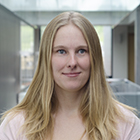
- Gender stereotyping
- Gender difference in education
- Reading and literacy
Read Dr. Mottonen's Dissertation
Dr. Olga Shugurova - Graduated June 2017

- Experiential Learning
- Educational Leadership
- Cultural-Historical Context of Learning
- Qualitative Arts-Based Research
Read Dr. Shugurova's Dissertation
Dr. Lisa Taylor - Graduated May 2019
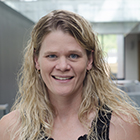
- Non-experimental research
Read Dr. Taylor's Dissertation
Dr. Taunya Wideman-Johnston - Graduated June 2016
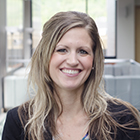
- Chronic illness
- Special education
- Pre-service teacher education
Read Dr. Wideman-Johnston's Dissertation
PhD Cohort 2012
Dr. jeff adams - graduated may 2019.
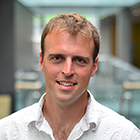
- Arts-based research
- Poetic inquiry
Read Dr. Adams' Dissertation
Dr. Jeremy Bisson - Graduated February 2020
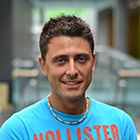
- Ethical reasoning
- Authentic identity
Read Dr. Bisson's Dissertation
Dr. Elizabeth Campbell - Graduated February 2019
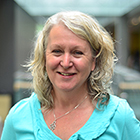
- Living educational theory
- Action research
- Alternative ways of knowing, researching, and representing
- Holistic, democratic, student-directed learning
- Contemplative pedagogy
Read Dr. Campbell's Dissertation
Dr. Lorna Carol Corzine - Graduated June 2016
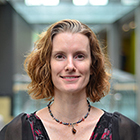
- Mental health, depression, anxiety
- Adolescents
Read Dr. Corzine's Dissertation
Dr. Tara McGoey - Graduated October 2016
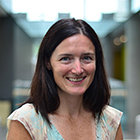
- Physical activity and cognitive development in children
Read Dr. McGoey's Dissertation
Dr. Casey Phillips - Graduated December 2016
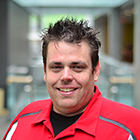
- Secondary traumatic stress
- Student leadership
- Student success
- Self-authorship
Read Dr. Phillips' Dissertation
Dr. Tiffany Roberts - Graduated June 2017
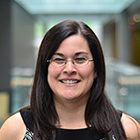
- Differentiated instruction
- Authentic assessment
- Safe schools
- Ethical leadership
Read Dr. Roberts' Dissertation
Dr. Carmen Schlamb - Graduated June 2016
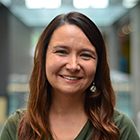
- Ecological identity
- Nature-deficit disorder
Read Dr. Schlamb's Dissertation
Dr. Erin Truswell - Graduated October 2020
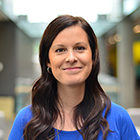
- Vulnerable school populations
- Technology in schools
Read Dr. Truswell's Dissertation
Nipissing University sits on the territory of Nipissing First Nation, the territory of the Anishnabek, within lands protected by the Robinson Huron Treaty of 1850. We are grateful to be able to live and learn on these lands with all our relations.
- Future Students - Home
- High School
- Mature / Transfer
- Post-Graduate
- International
- Financial Services
- Application Deadlines
- How to Apply
- Admission Requirements
- The Common Degree Structure
- Program Videos
- Campus Tours
- Residences and Housing
- Meal Plans and Dining on Campus
- Discover North Bay
- Current Students
- Student Development and Services
- Academic Advising
- Student Financial Services
- Indigenous Initiatives
- International Students
- Health Centre
- Residence & On-Campus Housing
- Nipissing University Student Union (NUSU)
- Convocation
- Future International Students
- International Exchanges
- International Student Support
- Alumni - Home
- Dental and Health Benefits
- Home and Auto Insurance
- Life Insurance
- Mentorship and Networking
- Graduation Photography
- Student Alumni (NUSA)
- Degree Frames
- Distinguished Alumni Achievement Award
- Alumni Awards 2020
- Alumni Awards 2021
- Alumni Awards 2022
- Alumni Awards 2023
- Homecoming 2023
- Homecoming 2022
- Homecoming 2021
- Homecoming 2019
- Homecoming 2018
- Homecoming 2017
- Homecoming 2016
- Homecoming 2013
- Homecoming 2012
- Homecoming 2011
- Homecoming 2010
- Homecoming 2009
- Alumni Privacy Policy
- Terms of Reference
- Board Member Application
- Sponsorship Application
- Support Services
- Harris Learning Library
- Main Building
- Monastery Hall
- R.J. Surtees Student Athletic Centre
- Office of the President
- Honorary Degree Recipients
- Board of Governors Bylaws
- Audit and Finance
- Engage With Us
- Good Neighbour Program/Committee
- Plant and Property
- University Governance
- Fundraising
- Contact the Board
- Agendas and Minutes
- Nipissing University Act
- Board Approved Policies
- Member Recruitment
- Senate Membership
- Meeting Dates
- Committees and Councils
- Senate Policy Document
- Collegial Governance
- University Policies
- Executive Compensation Program
- Institutional Planning
- Economic Impact
- Employment Opportunities
- Important Dates
- Getting to Campus
- Department Listing
- Academics - Home
- Ancient Studies
- Anthropology
- Central Analytical Facility
- Greenhouse Complex
- Plant Growth Facility
- Analytical and Environmental Chemistry
- Opportunities
- Lab Members
- Genetics and Aging
- Plant Ecology Research Laboratory
- Plant Signal Transduction
- Wildlife Ecology and Environmental Science Lab
- Child and Family Studies
- Collaborative Systems Laboratory (CoSys Lab)
- Data Science
- English Studies Honours Seminars
- Environmental Biology and Technology
- Environmental Geography
- Annual Juried Exhibition 2021
- Fine and Performing Arts Facilities
- Juried Student Art Exhibition 2022
- Gender Equality and Social Justice
- Station Specifications
- Using HOBOLink
- Alcan Field Station
- Geomatics Laboratory
- Nipissing Earth Observation Laboratory
- North Bay Rotary Club Wet Lab
- Watershed Hydrology Laboratory
- Water Policy Analysis Lab
- Campus Trail System
- Faculty Publications
- Indigenous Studies
- Liberal Arts
- Liberal Science
- Mathematics
- Political Science
- Religions and Cultures
- Social Welfare and Social Development
- Human Evolution Lab
- Northern Centre for Research on Aging and Communication
- Psychological Measurement Lab
- Social Neuroendocrinology Lab
- Social Psychology and Stress Lab
- Violence and Victimization Lab
- What's Happening in Arts & Science
- Chairs and Representatives
- Professors Emeritus
- Bachelor of Business Administration (BBA)
- College Partnership Program
- High School Initiatives
- Bachelor of Commerce - Distance Learning
- Register for an information session
- Degree Completion
- Criminal Justice Program Overview
- Graduate School Application Process
- Graduate Studies
- Bachelor of Science in Nursing (BScN)
- RPN to BScN Bridging Program
- RPN to BScN Blended Delivery
- Scholar Practitioner Program (SPP)
- Best Practice Spotlight Organizations (BPSO)
- School of Physical and Health Education
- School of Social Work
- Schulich School of Education
- Frequent Contacts
- Frequently Asked Questions
- Textbooks/Course Packs
- Academic Resources
- Technology Services
- Major Research Paper
- The History Department's Style Guide
- Getting Started
- Working With Students
- Academic Integrity
- Master of Arts in Sociology
- Program Requirements
- Charges and Fees
- MEd Handbook
- MEd, Major Research Papers, Theses, and Dissertations
- MEd Thesis Final Submission Process
- MEd Major Research Paper Final Submission Process
- Off Campus Library Services
- Blackboard Learn Technical Information
- MEd/PhD Course Schedules
- Research Supervisor/Faculty
- How to Apply (Full-Time)
- How to Apply (Flex-Time)
- Education Graduate Student Blog
- Supervisory Committee Membership
- Thesis Proposal and Defence
- Thesis Option
- Teaching Assistantships
- Admission Requirements and How to Apply
- Ph.D. Summer Residency Information
- Ph.D. Handbook
- PhD Course Schedules
- Comprehensive Exams
- PhD Dissertation
- How To Apply
- Graduate Awards Policy
- Types of Funding
- Travel Funding
- Dates and Deadlines
- Regulations
- Defence Process
- Supervisory and Examination Committees
- MRP/Thesis Final Submission Process
- Visiting Student Forms
- Defence Dates
- Graduate Student Card Application
- Three Minute Thesis Competition
- Graduate Information Session
- Graduate Studies Events
- Graduate Studies News
- Professional Development
- Key Fob Request
- Associate Dean’s Message
- Offer Information
- Admission Information
- Application Information
- Practicum and Community Leadership
- Teacher Education Advisory Committee (TEAC)
- Teacher Education Liaison Committee (TELC)
- Bachelor of Physical and Health Education
- Spring/Summer 2024
- French as a Second Language
- Winter 2025
- French Proficiency Test
- Spanish Proficiency Test
- German Proficiency Test
- Italian Proficiency Test
- Portuguese Proficiency Test
- Registration Instructions
- Reach Out Today
- ABQ Course Descriptions
- AQ Course Descriptions
- Fees and Payments
- Forms and Resources
- How to Register
- Policies and Procedures
- Important AQ/ABQ Dates
- Indigenous Education Programs
- Incentive Program
- Community Leadership Experience
- Course Overview
- Health and Safety
- Lesson Planning
- Police Vulnerable Sector Check
- Practicum I FAQ
- Practicum II FAQ
- School Boards
- Vision Statement and Goals
- Thorn Book Grant
- Current Events/Initiatives
- Literacy Awards
- Multimodality and Multiliteracies
- Novel Approaches to Learning
- North Bay Reads Together
- Dinner with Tony Stead
- Graduate Courses
- Professional Learning Supports
- Faculty Members and Staff
- Teacher Education in North Bay
- Academic Calendar
- Areas of Study
- Admissions/Registrar
- AQ / ABQ Courses
- Experiential Learning Program Arts & Science
- Teaching Hub
- Office Staff
- Tenure and Promotion
- Academic Plan
- Chancellor's Awards for Excellence
- Executive Summaries & Implementation Plans
- Guidelines and Policies
- Additional Resources
- Major Modifications of an Existing Program
- School of Graduate Studies
- Faculty Directory
- Athletics – Home
- NU Lakers Site
- Sports Camps
- Athlete Recruitment
- Hours of Operation
- Support Athletics
- Contributions Policy & Procedures for Faculty & Staff
- Paul Nelson Memorial Fund
- Student Awards
- Buy-A-Brick
- Planned Giving
- Faculty and Staff Giving
- Contact Giving/Advancement
- Discover Research
- Applying for Funding
- Funding Opportunities
- Managing Your Awards
- Research Support Fund
- Board Membership
- Research with Indigenous Participants/Communities
- Protocol Submission
- Protocol Forms
- Resources and Useful Links
- Commercialization Framework
- Commercialization Policy
- Commercialization and IP Resources
- Declare an Innovation
- Strategic Research Plan
- Research Policies
- Research Cluster Coordinators
- Research Clusters
- CICAS Talk Series 2014, 2015
- CICAS Talk Series 2016-2017
- Seleukid Conference 2017
- Exhibition Opening and Conference Dinner
- Keynote Speakers' Biographies
- Keynote Speakers' Abstracts
- Presenters' Biographies
- Presenters' Abstracts
- Venue, Directions, and Parking
- CICAS Lunch Workshops
- Seleucid Workshop Summer 2016
- ROMEO Login
- General Information
- Internal Grant Form
- Pre-Authorization Form for Faculty Travel
- Events Form
- Romeo Forms
- General Support
- Training Webinars
- Research Resources
- Contact Support
- Qualtrics Security
- Research Chairs
- Research Committee
- Research Month
- Research Matters
- Keynote Speaker
- Quick Links
- Research Directory
- Connect with an Advisor
- New Students without Transfer Credit
- New Students with Transfer Credit
- Upper Years
- Final Year and Graduation
- International and Exchange
- Academic Services
- Other Resources
- Academic Probation
- Spring/Summer Term Dates
- Admission Chart
- Alberta/NWT/Nunavut
- British Columbia/Yukon
- New Brunswick
- Newfoundland
- Nova Scotia
- Prince Edward Island
- Saskatchewan
- Master of Arts in History
- Master of Education
- Master of Environmental Studies/Sciences
- Master of Science in Kinesiology
- Master of Science Mathematics
- PhD in Education
- Additional Qualifications (AQ)
- Additional Basic Qualifications (ABQ)
- Concurrent Education
- Physical and Health Education
- Consecutive BEd Degree Program
- Indigenous Classroom Assistant Diploma Program (ICADP)
- Indigenous Teacher Education Program (ITEP)
- Teacher of Indigenous Language as a Second Language Program (TILSL)
- Admissions Regulations
- Registration Regulations
- Undergraduate Deferral Requests
- Graduate Studies Deferral Requests
- Bachelor of Education Deferral Requests
- Deferral Requests
- Ontario Secondary Schools
- Possessing Post-Secondary Education
- Mature Students
- Non-Degree Studies
- Bible College
- Bachelor of Education
- PD for Teachers Application Information
- Applications and Other Forms
- Transferring from college
- Special Advanced Standing Policies
- Algonquin College
- Cambrian College
- Canadore College
- Centennial College
- Collège Boréal
- Conestoga College
- Confederation College
- Durham College
- Fanshawe College
- Fleming College
- George Brown College
- Georgian College
- Humber College
- La Cité Collégiale
- Lambton College
- Loyalist College
- Mohawk College
- Niagara College
- Northern College
- Sault College
- Seneca College
- Sheridan College
- St. Clair College
- St. Lawrence College
- Equity, Diversity and Inclusion
- Curriculum Development
- Faculty and Staff Resources
- Academic Petitions
- Deferred Final Examination
- Instructions to Check Application Status
- Proof of Enrolment
- Registration Helpful Vocabulary
- Transcripts
- Transcript Request
- Transcript Legend
- Alumni Office
- Lakers Shop
- Accommodations
- Stay on Campus
- Conferences
- Distance and Continuing Education
- Alumni and Advancement
- PowerPoint Template
- Email Footer Images
- Teams Instructions
- Zoom Instructions
- Custom Backgrounds
- Event Listing Submission
- Photo/Video Release Form
- Resources Request
- Guidelines for Employees
- Account Request
- Services Request
- Campus Maps and Floor Plans
- Facilities FAQs
- Parking Services and Permit FAQ
- Accessibility and Accommodation
- All-Gender Washrooms
- Course Materials
- On-site Courses (Paper Invigilated Exams)
- Distance Courses (Paper Invigilated Exams)
- Secure Online Exams
- Final Exam Templates
- Microsoft Teams Phone FAQs
- Multiple Choice Scanning Services
- Telephone Services
- Profile Updates on the Employee Directory
- Online Event Registration
- Graduate Studies and Research
- Accessibility Advisory Committee
- Creating Accessible Content
- Compensation
- Employee Relations
- Employee Wellness
- Group Benefits
- Humanacare (Employee Assistance Program)
- Information and Forms
- AODA Training
- Pension Plan
- Bi-weekly Employees
- Timesheet Employees
- Student Employment Opportunities
- Request to Hire a Student Form
- Information for Supervisors
- Information for Students
- Training Requirements and Records
- Human Resources Team
- Campus Safety Walk Program
- Campus Whistle Program
- Emergency Telephones
- Parking Lot Safety
- Safety and Security at the Monastery
- Nipissing Safe App
- Surveillance Cameras and Help Alarms
- Biosafety Frequently Asked Questions
- Biosafety Permit Application and Review Procedures
- Manuals and Guides
- Video Library
- Safety Training
- Respirator Fit Testing FAQ
- Emergency Wardens
- First Aid and AED Training
- Injury, Incident Reporting and Investigation
- Naloxone Training
- What to do in the case of...
- Joint Health and Safety Committee
- Volunteer Opportunities
- Holiday Listing
- Children and Youth
- Future Students
- Indigenous Week 2022
- Indigenous Week 2023
- Biidaaban Youth Group
- Tutor Report
- Debwendizon Indigenous Youth Education Gathering
- Wiidooktaadwin Indigenous Mentorship Initiatives
- Nipissing University Indigenous Council for Education (NUICE)
- Indigenous Foundations Program
- Summer Indigenous Institute
- Indigenous Student Success
- Partnerships
- Peer2Peer Indigenous Mentorship
- Indigenous Student Self-Identification
- Research Involving Indigenous Peoples and Communities
- Indigenous Admissions
- Presentations, Papers and Reports
- Institutional Data for Nipissing University
- Key Performance Indicators (KPI)
- Common Universities Data Ontario (CUDO)
- Multi-Year Accountability Agreements (MYAA)
- National Survey of Student Engagement
- Canadian University Survey Consortium (CUSC)
- Survey Request Form
- Incoming Exchange Students
- Outgoing Nipissing Exchange Students
- Exchange Partnerships
- Frequently Asked International Exchange Questions
- Global Skills Opportunity
- Q&A with International Lakers
- Current International Students
- Incoming International Students
- Become a Mentor
- ISMP Executive Team
- University Health Insurance Plan
- World University Services of Canada (WUSC)
- Internationalizing Your Degree at Home
- Strategic Planning
- The First 100 Days Report
- Your Nipissing
- Information Sharing Repository
- Strategic Mandate Agreement
- Pricing and Payment Information
- Guidelines and Procedures
- Contact Information
- Provost and VP Academic
- Chancellors House
- Founders House
- Governors House
- Townhouse Residence Complex
- Move-In 2023
- Winter Closure
- End of Year Move-Out
- Semester Move In
- January Arrivals
- Mid-Semester Withdrawal
- Residence Philosophy
- Residence Services
- Residents' Council
- Quiet Hours
- Residence Maintenance Request
- Residence Damage and Cleaning Assessment Appeal Form
- Residence Room Booking
- Bus Schedule
- Meet the Staff
- Applications
- Residence Accommodation Request
- Residence Application FAQ
- All Gender Housing
- Help with eRezLife
- Residence Brochure
- Returning Students
- Education Students
- Residence Rates
- Off-Campus Living
- New Students
- Information for Supporters and Students
- Educator's Accessibility Toolkit from the Council of Ontario Universities (COU)
- Read&Write
- Accessibility Transition Program
- Policies and Forms
- Campus Shop
- Career Development Steps
- Build Your Skills
- Career Resources
- International Student Career Resources
- Graduate School Resources
- Jobs and Volunteering
- Off-Campus Employment
- Code of Student Rights and Responsibilities
- Consent Belongs Here
- 2024 Award Recipients
- 2023 Award Recipients
- 2022 Award Recipients
- 2021 Award Recipients
- 2020 Award Recipients
- 2019 Award Recipients
- 2018 Award Recipients
- 2017 Award Recipients
- 2016 Award Recipients
- 2004-2015 Award Recipients
- Campus Health Centre
- Immunizations
- Quit Smoking
- Sexual Health Services
- Health Plan
- Important Policies
- Workshops and Training
- Connect with Us
- Service Pathway Options
- Peer Support
- Self Help Resources
- BIPOC Student Support
- Dibaadan Support
- Distance & International Students
- 2SLGBTQ+ Wellness
- ADHD and Neurodivergence
- BIPOC Wellness
- Coping with Anxiety
- Disordered Eating and Body Image
- Distress Tolerance
- Grief, Death, and Loss
- Healthy Relationships and Communication
- Helping a Friend
- Indigenous Wellness
- Life Transitions and Homesickness
- Living with Addiction
- Managing Mood Disorders
- Men's Wellness
- Mental Health 101
- Organization and Time Management
- Perfectionism
- Personal Development
- Relaxation and Mindfulness
- Sexual Violence and Trauma
- Suicide and Crisis Support
- Student Intervention Services
- Need Help Now
- Student Emergency Fund
- Student Retention Alert
- Vocantas Scaller
- Record of Student Development Policy
- Student Development Fund Policy
- Student Initiatives Fund
- Book an Appointment
- Request a Tutor
- Become a Tutor
- Student Success Workshops
- High 5 Student Survey
- Staff Report
- Academic Success Program Registration
- New Student Orientation (NSO)
- International Orientation
- Career Development and Education
- Lakers Winter Orientation
- Peer Tutoring
- Pillars of Development and Learning Outcomes
- Mature and Transfer Student Network
- Procedures and Policies
- Undergraduate Tuition and Fees
- Nursing Tuition and Fees
- Post-Baccalaureate Tuition and Fees
- Education Tuition and Fees
- International Tuition and Fees
- Graduate Tuition and Fees
- Ancillary Fees
- Ancillary Fee FAQs & Descriptions
- Service Fees
- Scholarships, Bursaries and Awards: High School students
- Scholarships, Bursaries and Awards: In-Course
- Guaranteed Entrance Scholarships (2022-2023 or Later)
- Guaranteed Entrance Scholarships (2021-2022 or Prior)
- College Transfer Awards
- Graduate Funding
- International Student Funding (2022-2023 or Later)
- International Student Funding (2021-2022 or Prior)
- Future Students Event Bursary
- Ontario Learn and Stay Grant
- Work Study (NU Work)
- Forms and Applications
- Refund/Credit Dates and Deadlines
- Student Access Guarantee
- Student Payment Information
- Payment Plan Information
- External Funding
- Documentation
- MS 365 for Nipissing Students
- Multi-Factor Authentication
- Password and Account Management
- Staff and Faculty Gmail to Outlook Migration
- Student Card and Bus Pass Requests
- Student Employment
- Virtual Computer Labs
- Policies and Guidelines A-Z
- Facility Services
- Bid Opportunities
- Shipping and Receiving
- Student Financial Information
- Human Resources
- Access to Information and Protection of Privacy
- Canada’s Anti-Spam Legislation (CASL)
- Personal Information Protection and Electronic Documents Act (PIPEDA)
- Personal Health Information Protection Act (PHIPA)
- Employee Directory
- Help Desk Ticket Request
- Maintenance Request Form
- Marketing Services Request
- MyNipissing

GRADUATE STUDIES AT NIPISSING UNIVERSTY
Your future begins here
Discover excellence in every class; elevate your future with personalized learning and accessible professors at Nipissing University, your gateway to exciting learning opportunities and a unique academic experience in North Bay, Ontario.
What kind of information are you looking for?
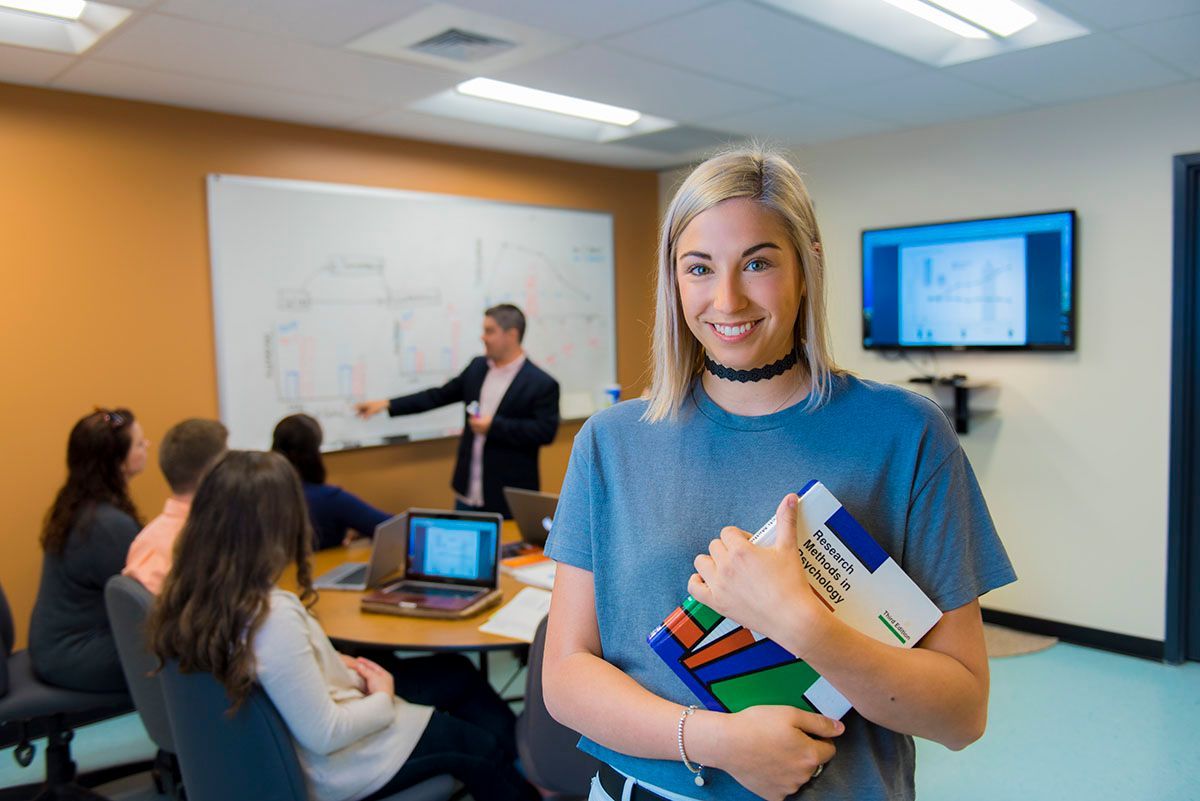
Programs and Pathways
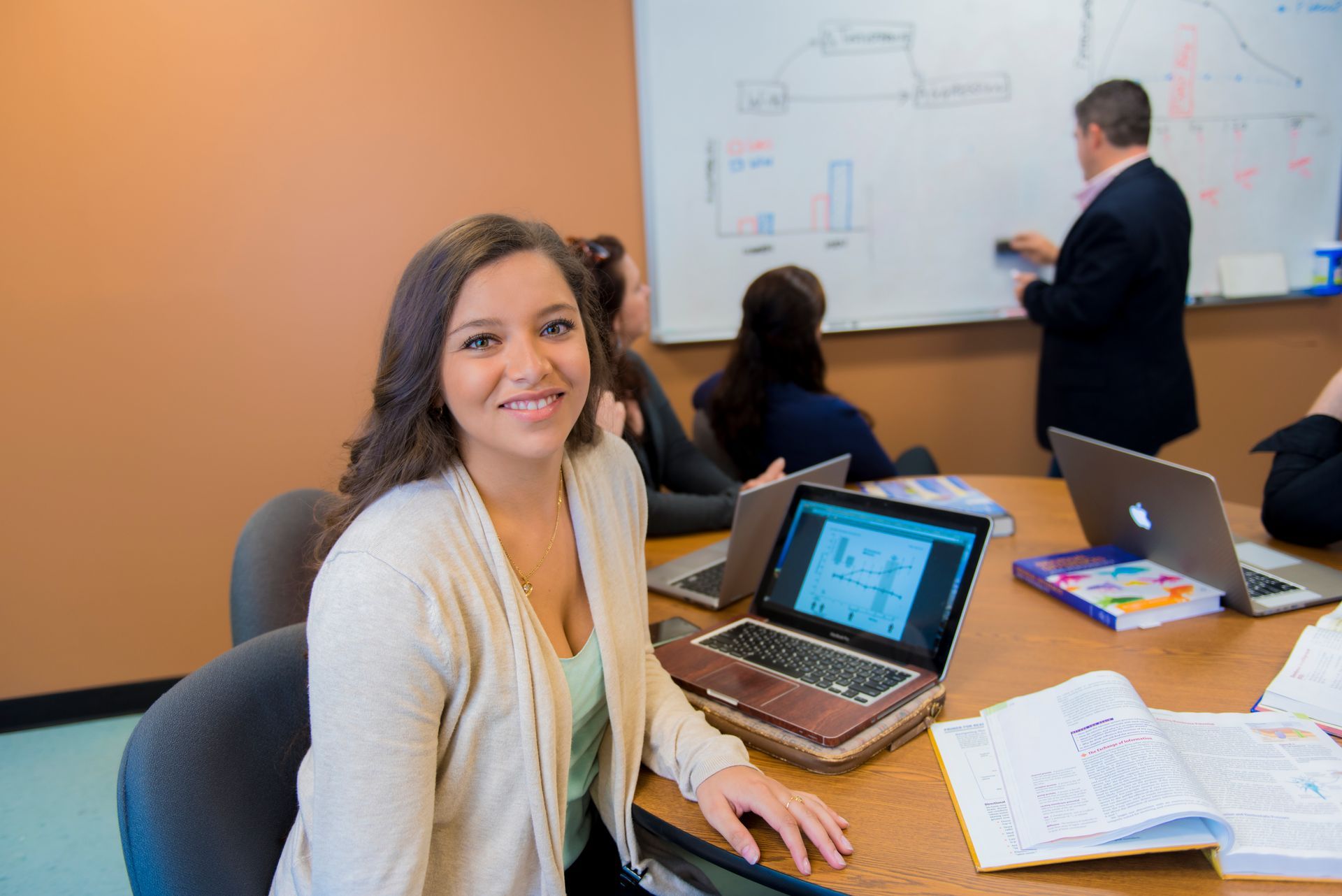
Awards and Funding Opportunities
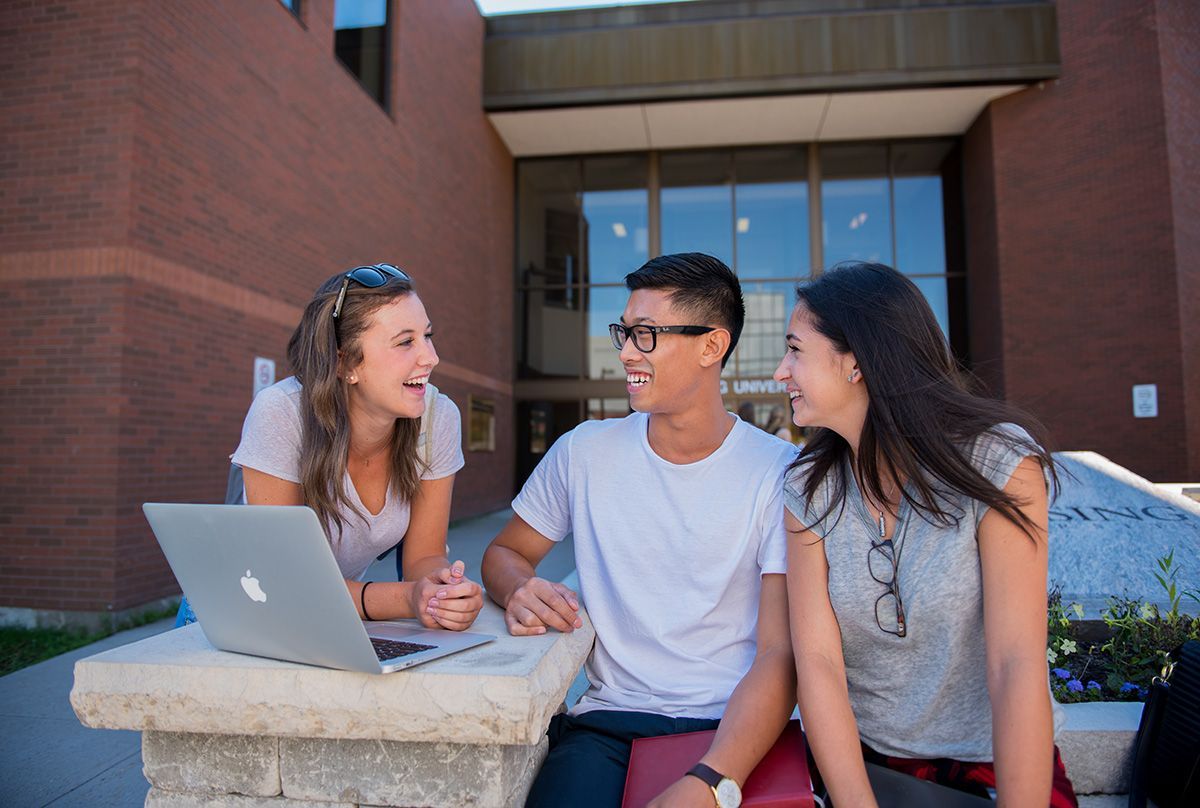
Student Life
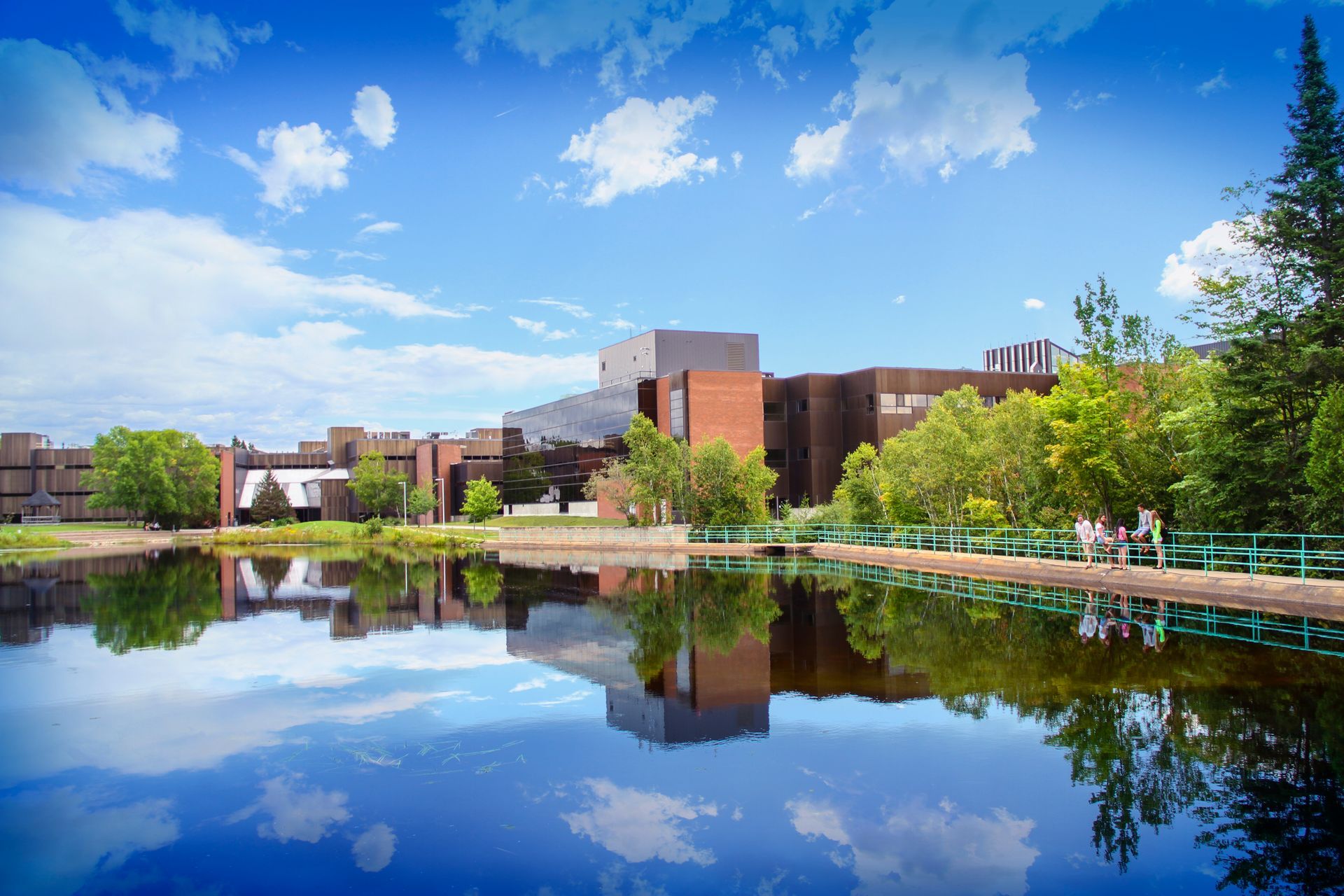
Campus and Facilities
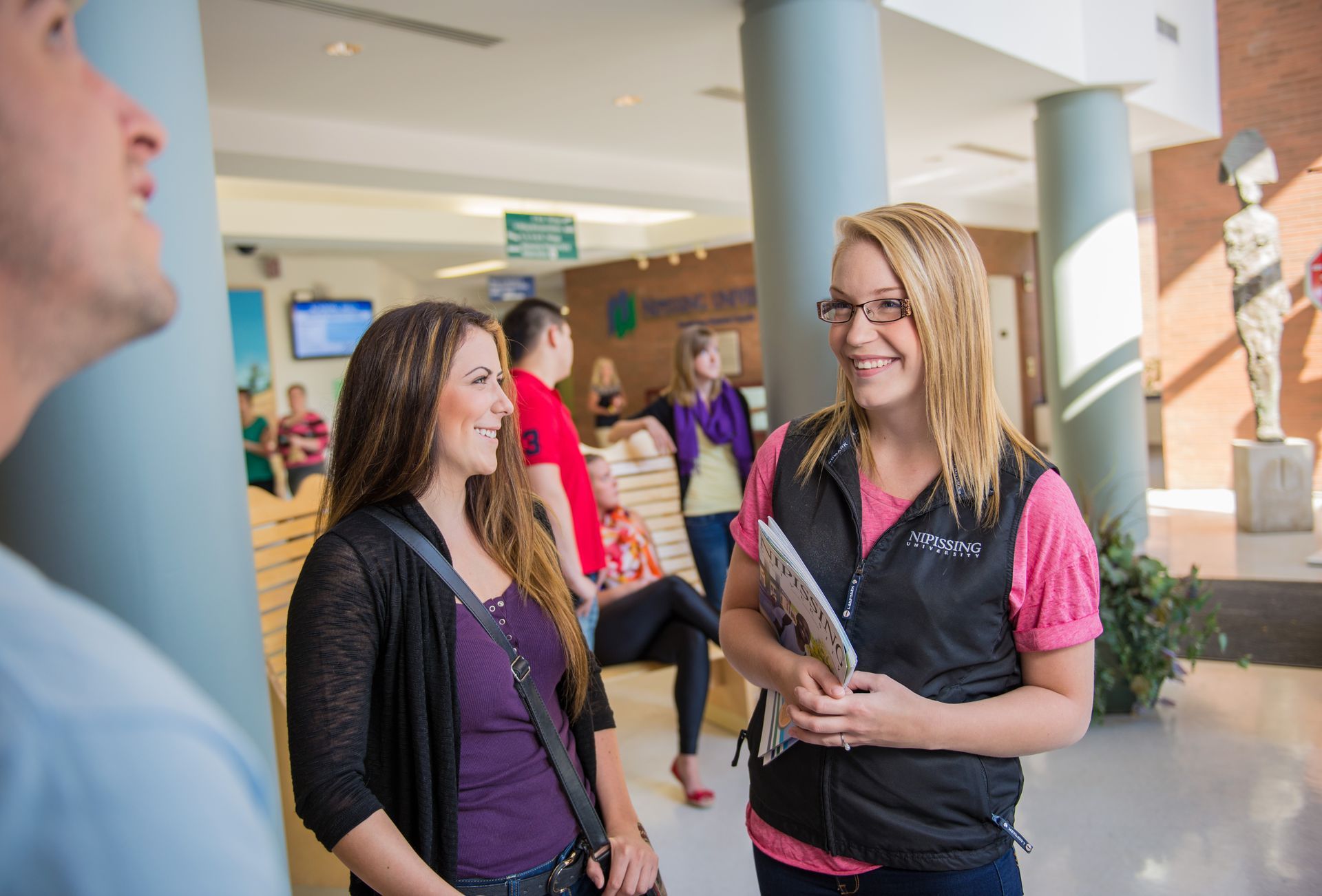
Frequently Asked Questions
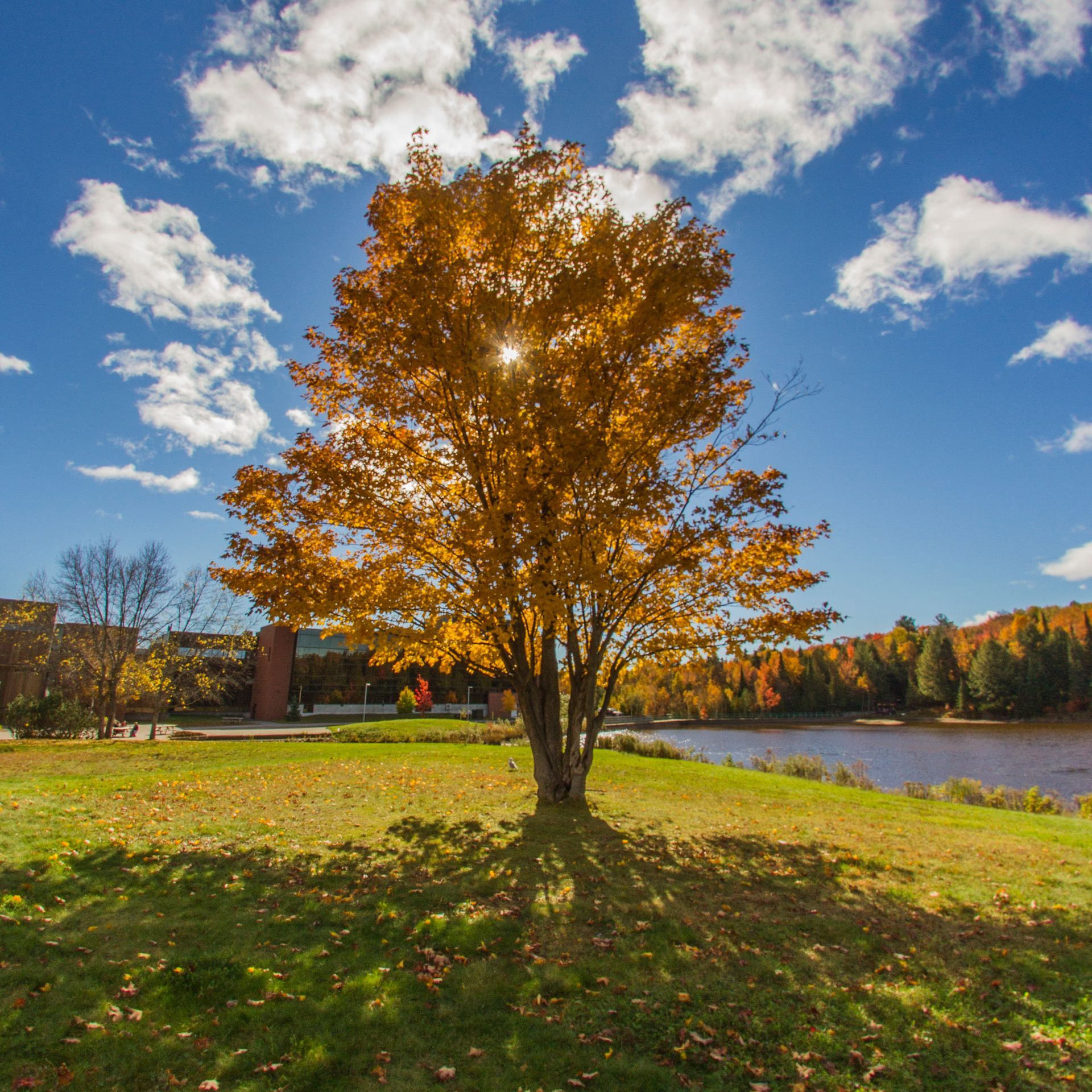
Explore our Graduate Programs
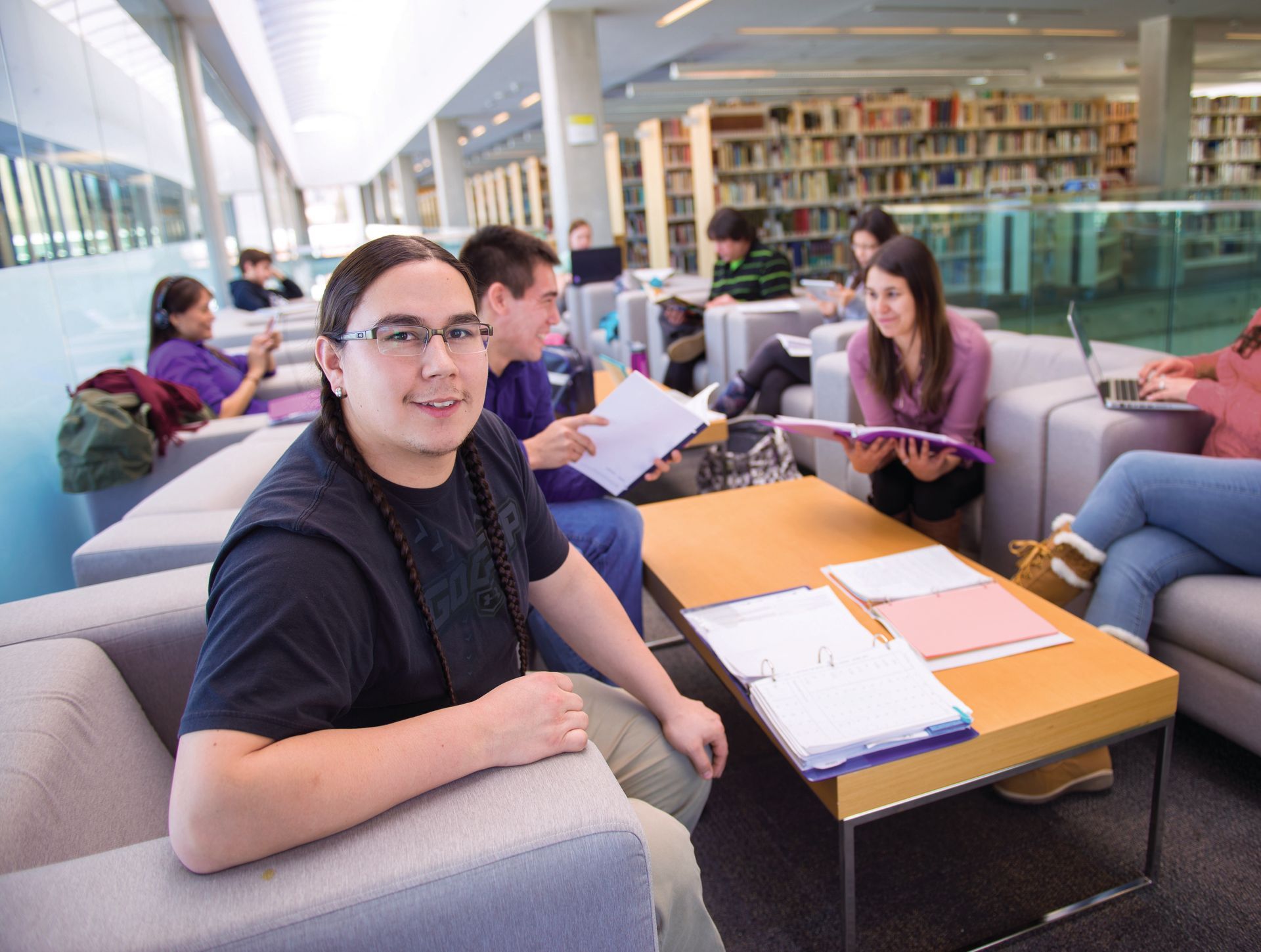
Master of Arts in History
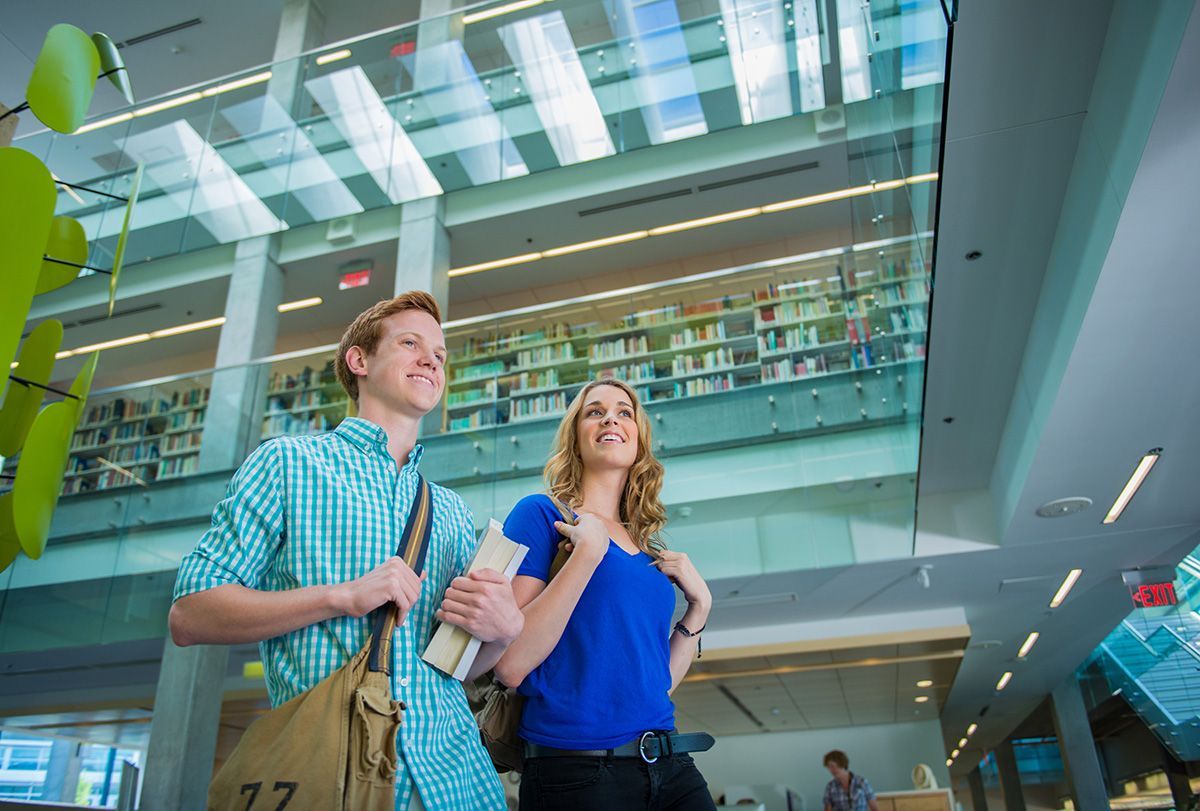

Master of Arts in Sociology - Applied Social Research
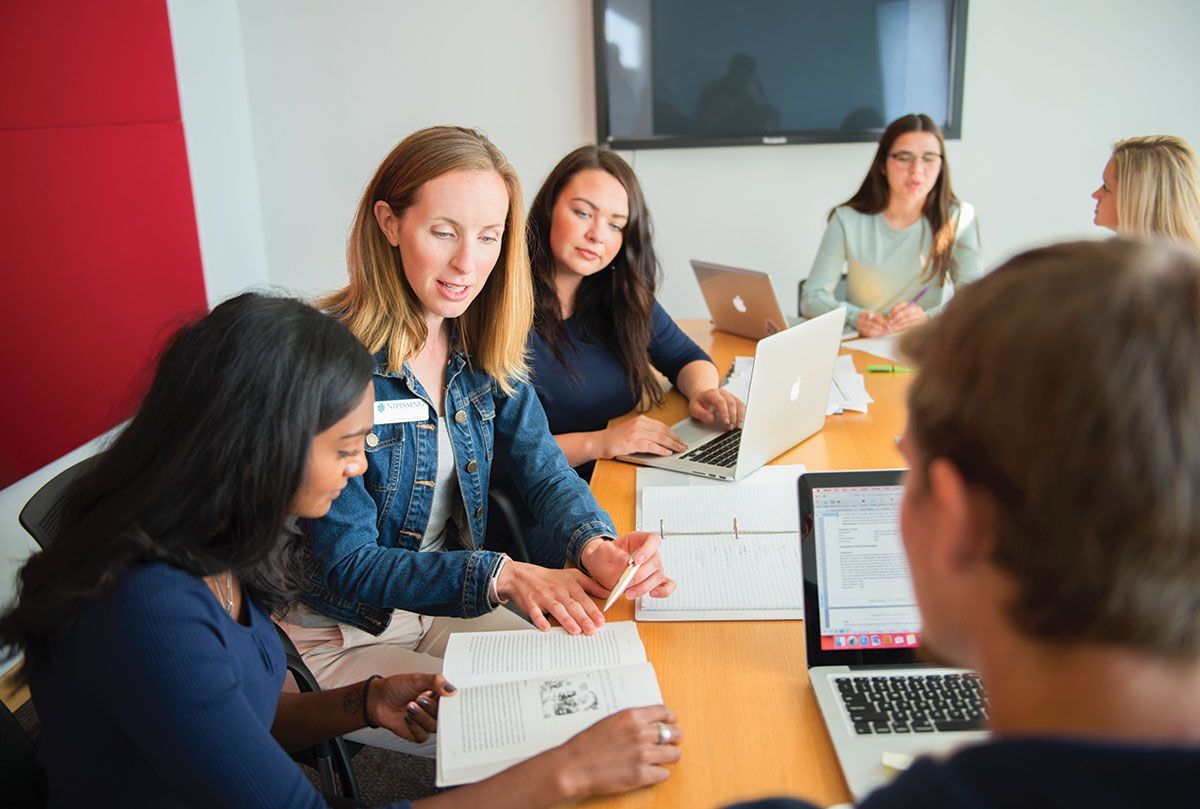
Master of Education
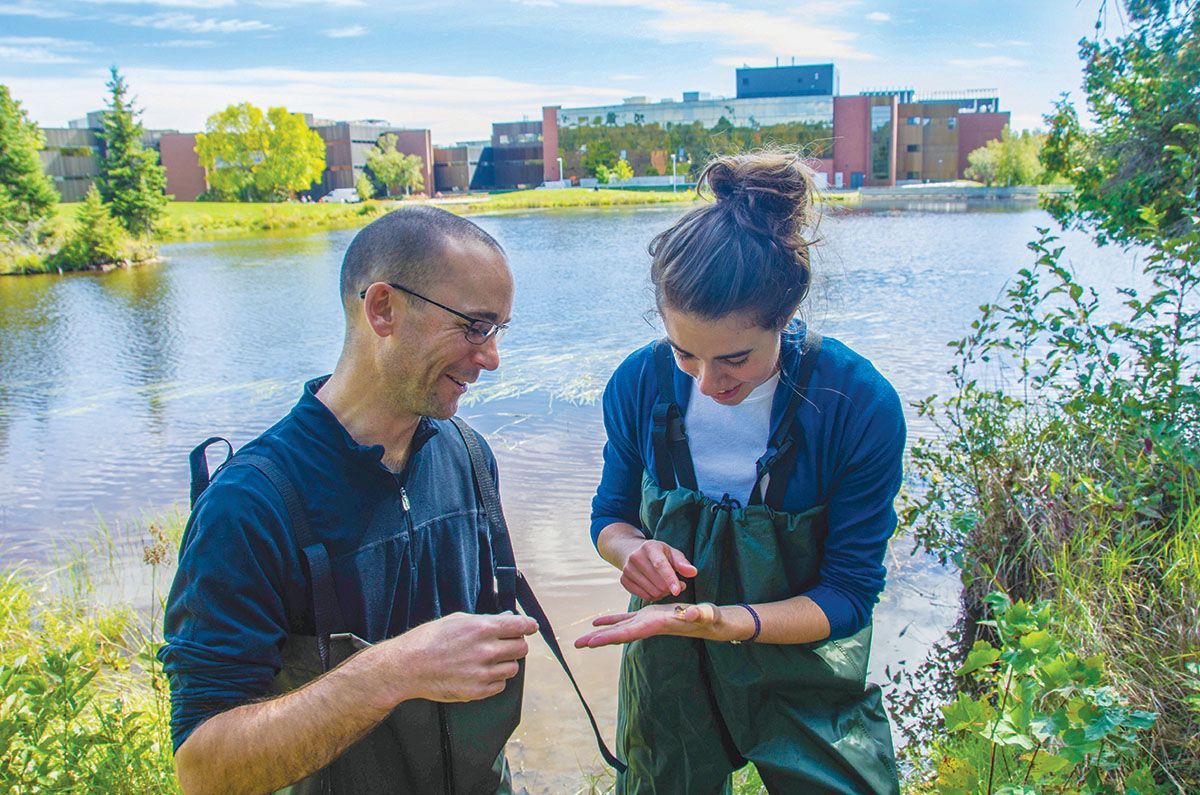
Master of Environmental Science/Studies
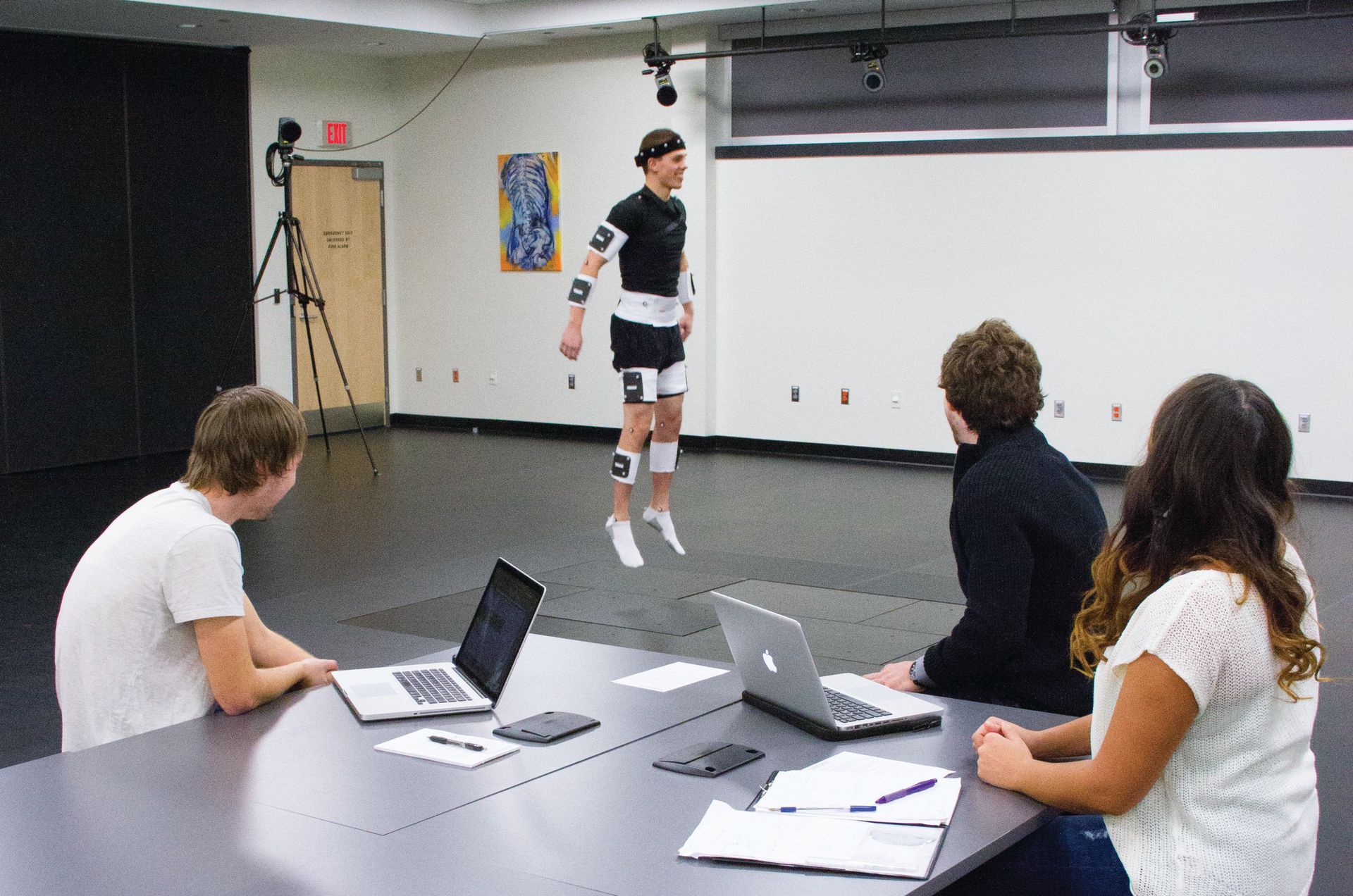
Master of Science in Kinesiology
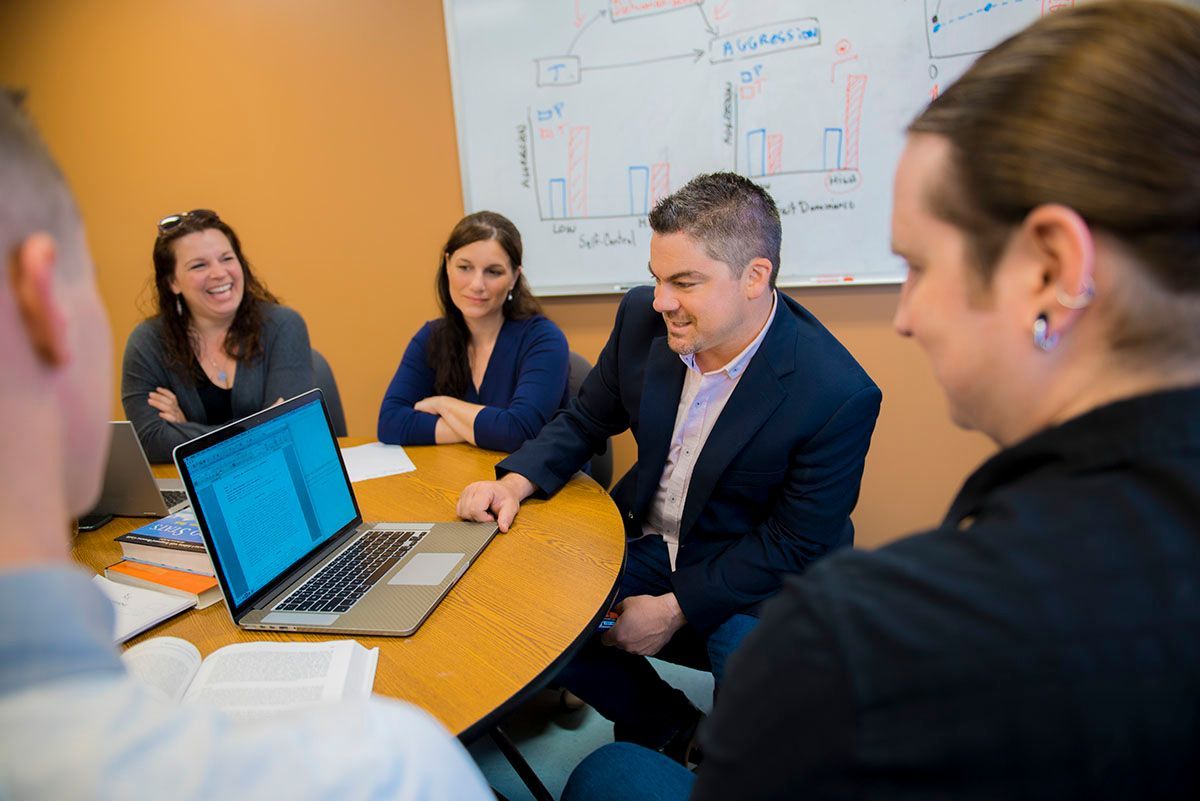
Master of Science in Mathematics
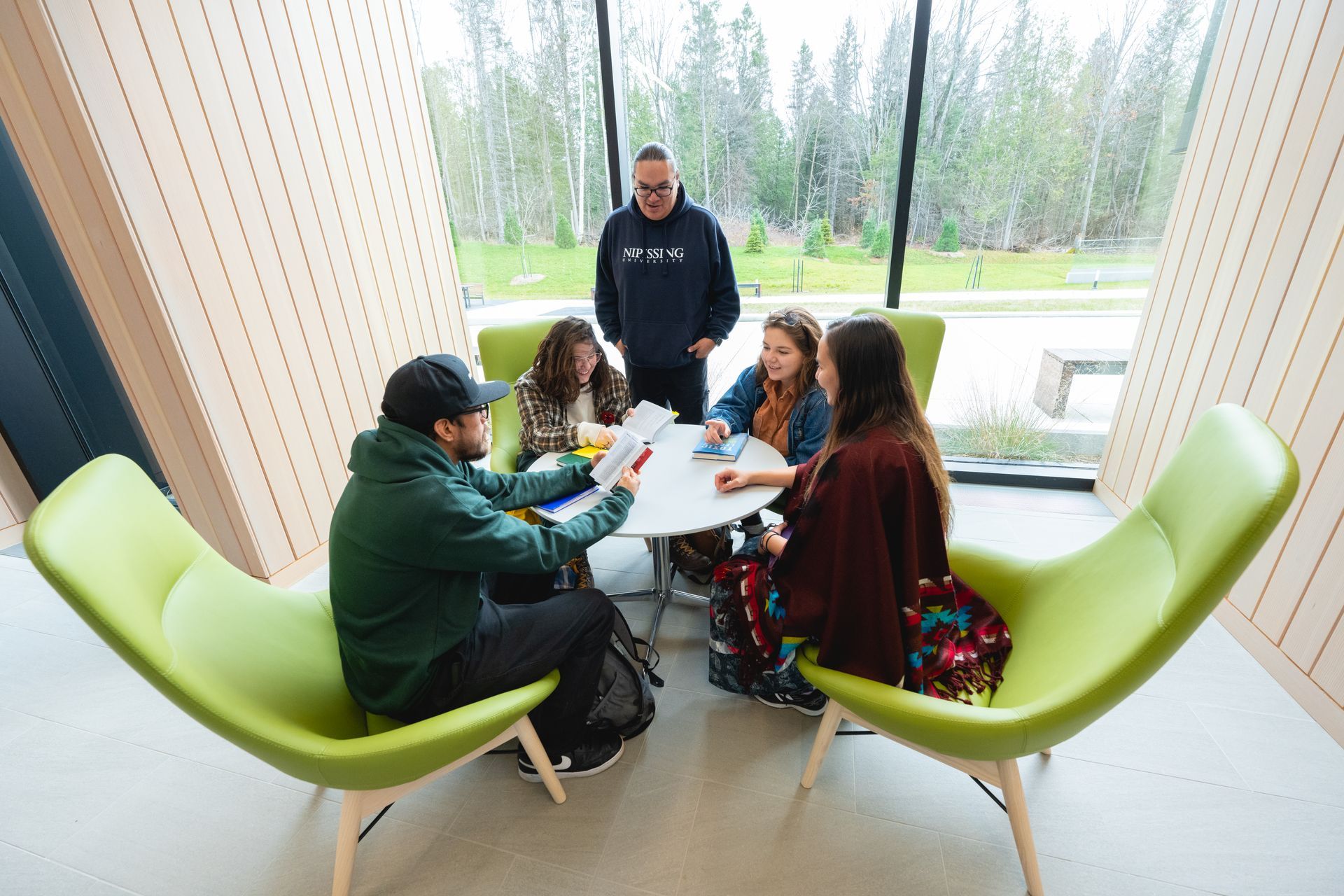
PhD in Education (Educational Sustainability)
Why choose nipissing university.
We are dedicated to fostering academic excellence and cultivating a vibrant community of scholars. Discover an enriching environment that combines rigorous academics with personalized attention from world-class faculty. Our innovative programs are designed to equip you with the skills and knowledge needed to excel in your chosen field, while our intimate class sizes ensure meaningful interactions and mentorship opportunities. Immerse yourself in a supportive and collaborative learning environment that embraces diversity and values the pursuit of knowledge. Embark on a transformative academic journey amidst the breathtaking natural beauty of Northern Ontario.
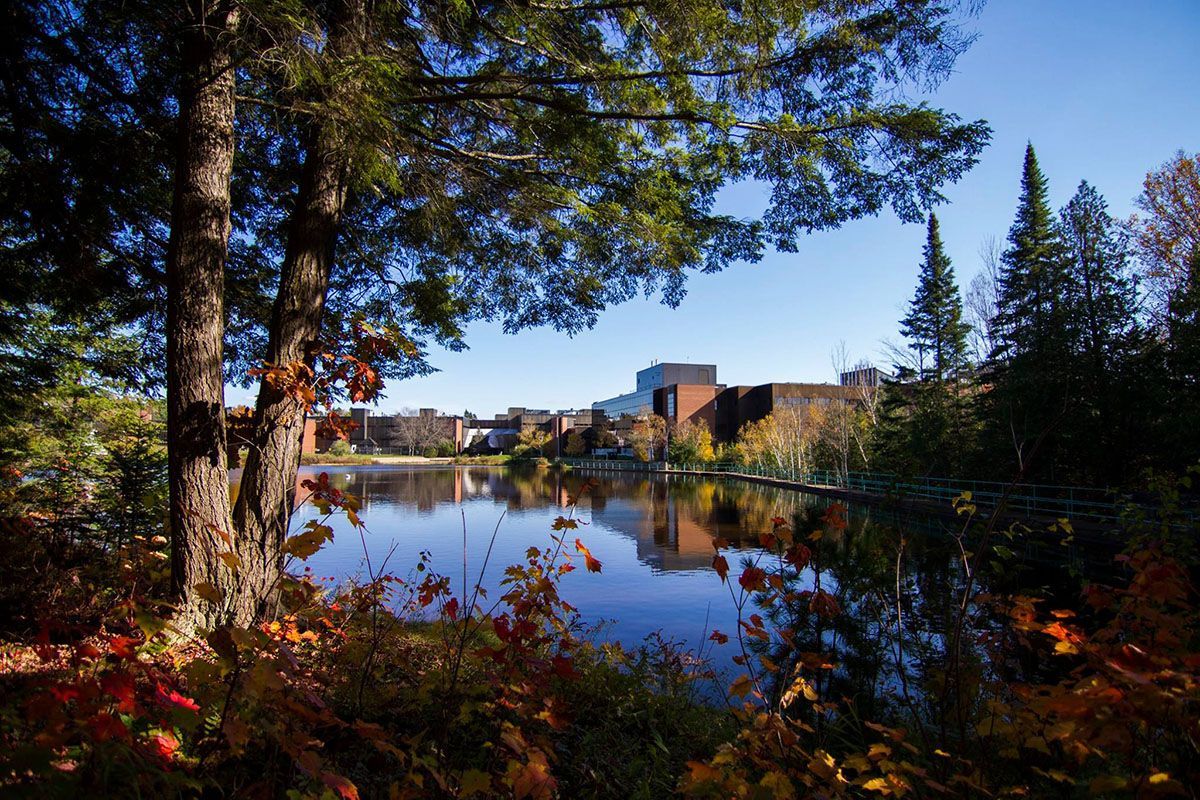
Graduate Awards and Funding Opportunities
Invest in your academic journey with a plethora of awards, bursaries, scholarships, and diverse funding opportunities awaiting graduate students at Nipissing University. Our commitment to supporting your educational pursuits is reflected in a range of financial assistance programs designed to recognize excellence, facilitate research, and alleviate financial burdens. Whether you're pursuing a master's or doctoral degree, you'll find numerous avenues to fund your education and advance your scholarly ambitions. Our dedicated team is here to guide you through the application process and connect you with opportunities aligned with your academic and research goals. We believe in investing in your potential and providing the resources necessary for you to thrive in your graduate studies. Explore the various funding options available and take a significant step towards realizing your academic aspirations with us.
Discover the rich tapestry of the past with our Master of Arts in History program. Immerse yourself in a dynamic academic community where small class sizes foster close connections with renowned historians who are passionate about guiding your scholarly journey. Our program blends rigorous research, engaging seminars, and collaborative projects to deepen your understanding of historical narratives and methodologies. As a student in our prestigious program, you'll have access to cutting-edge resources and archives, allowing you to explore and contribute to the historical discourse. Embark on a personalized academic adventure, where the intimate setting of North Bay provides the perfect backdrop for a comprehensive exploration of history. Ignite your passion for the past and shape your future with a Master of Arts in History at Nipissing University.
Elevate your understanding of societal dynamics and effect positive change with our Master of Arts in Sociology program. Our degree pathway offers a specialized focus on applied social research, empowering you to bridge theory and practice in the pursuit of impactful solutions. Engage with experienced faculty who are committed to nurturing your research skills and fostering a collaborative learning environment. Through hands-on projects and immersive coursework, you'll develop a deep understanding of contemporary social issues and the tools to address them effectively. Embark on a transformative academic journey in the vibrant community of North Bay, where our intimate setting provides the ideal backdrop for meaningful connections and real-world application of sociological principles. Shape the future of society with a Master of Arts in Sociology from Nipissing University.
Unlock your potential as an educator and leader with our Master of Education program. We are dedicated to shaping the next generation of educational professionals through a dynamic and comprehensive curriculum. Engage with expert faculty who are committed to your growth, providing mentorship and guidance throughout your academic journey. Whether you aspire to enhance your teaching skills, delve into educational leadership, or specialize in curriculum development, our program offers a tailored approach to meet your goals. Join a collaborative and supportive learning environment that celebrates diversity and values innovation. Discover the transformative power of education in the heart of North Bay at Nipissing University, where excellence meets community. Your journey towards becoming an empowered and impactful educator starts here.
Embark on a journey of exploration and discovery with our Master of Environmental Science or Master of Environmental Studies programs. Immerse yourself in an academic community committed to environmental stewardship and sustainable practices. Our program integrates cutting-edge research, fieldwork, and interdisciplinary collaboration to equip you with the knowledge and skills needed to address pressing environmental challenges. Engage with distinguished faculty who are passionate about mentoring the next generation of environmental leaders. With North Bay as your backdrop, you'll have access to diverse ecosystems for hands-on learning and research opportunities. Be a part of a community that values environmental responsibility and empowers you to make a meaningful impact on the world. Embrace the future of environmental science in the serene beauty of North Bay. Your journey toward a Masters of Environmental Science or Environmental Studies begins here.
Ignite your passion for human movement and performance with our Master of Science in Kinesiology program. We are dedicated to advancing the science of physical activity, health, and wellness. Our program offers a personalized approach, blending academic training with practical experiences and research opportunities. Engage with expert faculty who are leaders in their fields, guiding you through cutting-edge developments in kinesiology. North Bay's stunning surroundings provide the perfect backdrop for hands-on learning and outdoor exploration. Whether you aspire to specialize in exercise physiology, biomechanics, or sports psychology, Nipissing University is the place where your journey towards becoming a leader in the field of kinesiology begins. Seize the opportunity to shape the future of human movement.
Embark on a transformative intellectual journey with our Master of Science in Mathematics program. Dive into a dynamic academic environment where theoretical depth meets practical application. Our distinguished faculty, experts in diverse mathematical disciplines, are dedicated to fostering your analytical skills and nurturing your passion for mathematical discovery. The program offers a personalized approach, ensuring small class sizes and one-on-one mentorship. North Bay's tranquil setting provides an inspiring backdrop for focused study and collaborative research. Whether you aspire to delve into pure mathematics, applied mathematics, or mathematical modeling, Nipissing University is the ideal destination to cultivate your expertise. Become part of a community that values mathematical inquiry and innovation. Your journey to mastery in mathematics begins here.
Elevate your educational leadership to new heights with our Ph.D. in Education program. Our small yet prestigious university is proud to offer a doctoral program with a unique focus on educational sustainability, preparing future leaders to address the complex challenges facing education in a rapidly changing world. Engage with esteemed faculty members who are at the forefront of educational research and sustainability initiatives. Benefit from a personalized and collaborative learning environment, where you'll have the opportunity to shape the future of education through innovative and sustainable practices. North Bay's natural beauty serves as an inspiring backdrop for advanced research and contemplation. Join us in the pursuit of educational excellence and sustainable innovation. Your path to transformative leadership in education begins here.
Ready to dive into the world of graduate studies?
Elevate your academic journey with our prestigious graduate programs, offering personalized learning, world-class faculty, and a pathway to excellence in North Bay, Ontario.
We believe that a vibrant student life is integral to a holistic graduate education. Immerse yourself in a supportive community that fosters academic growth, meaningful connections, and enriching experiences. From engaging seminars to collaborative research projects, our graduate students thrive in an environment where innovation and camaraderie go hand in hand. Explore a wealth of extracurricular activities, join dynamic student organizations, and embrace the countless opportunities to make lasting memories. Your graduate journey at Nipissing University is not just about academics; it's a transformative experience that extends beyond the classroom, shaping well-rounded individuals ready to make a positive impact in their fields and communities.
If you're interested in pursuing graduate and/or post-graduate studies at Nipissing University, we would love to hear from you!
705.474.3450 x 4200
View on our Campus Map
START YOUR NIPISSING JOURNEY TODAY
+ 705.474.3450 ext. 4200
100 College Drive
North Bay, ON P1B 8L7
WANT MORE INFORMATION?

Nipissing University

International applicants must obtain a minimum English proficiency test score depending on program. Click here for more information.
Undergraduate Programs
Post-baccalaureate programs, graduate studies programs, tuition & fees.
Your tuition and fees will depend on the number of credits you take at Nipissing University.
100 College Drive, North Bay ON P1B 8L7 Canada | [email protected] | 705.474.3450 ext. 4321
© Nipissing University 2023
Education Graduate Students at Nipissing University
Blog & online learning community.

Order of Operations
This post comes to us compliments of Melissa Corrente . Melissa is a part-time instructor of Health and Physical Education studies at the Schulich School of Education at Nipissing University, North Bay. We’d like to thank Melissa for her wonderful piece that advocates for balance and family while reinforcing the importance of persevering through academic work.
I recently read a journal article titled Striving to Obtain a School-Work-Life Balance: The Full-Time Doctoral Student (Martinez, Ordu, Sala & McFarlane, 2013). Five full-time doctoral students were interviewed to explore their experiences, and four themes emerged from the data. Martinez et al. (2013) found that doctoral students strived to achieve a school-work-life balance by purposefully managing their time, seeking well-being, finding support, and making trade-offs. There was one participant who discussed the order of operations in the doc life which made me reflect on my own order of operations. I was never the greatest math student; however, I do remember learning about BEDMAS (brackets, exponents, division, multiplication, addition, and subtraction) in public school. Upon searching the internet I was surprised to find they use a new acronym now which you can see below.
Upon reflecting on the priorities in my life I came up with the acronym SMHPT (son, me, husband, PhD, teaching) to represent my current situation.
My son will be two years old in April, and he is my first priority. After my son, I take good care of myself which includes eating healthy, exercising on a regular basis, and socializing with friends. My husband and our relationship are also important, so we recently had a weekend getaway to recharge our batteries and enjoy the great outdoors. After taking care of my family, the PhD is the next order of operation, because I am currently working on my research proposal.

It is my goal to finish the research proposal before baby #2 arrives in two months! At this point I will be switching my priorities and the baby will move to the beginning of the equation. Teaching was a priority for me last term, however this term my focus has changed to research. I do miss being in the classroom, however I am at peace with my decision.
I think it is important to remind ourselves that priorities change and our order of operations one day may not serve us the next day. I encourage you to explore the current order of operations in your own life. Are they serving you or do you need to make a few changes? I have found that managing my priorities on a day to day basis has served me well.
The Martinez et al. (2013) article also discusses how graduate students carry various competing roles. I try to see the roles in my life as complementing each other because I learn from each one and they inform who I am as a parent, scholar, and educator. As you experience the graduate journey think about how the various roles in your life complement each other. Don’t be afraid to reach out if you need support as I have learned that asking for help is a necessary part of the graduate school adventure!
Melissa Corrente

Martinze, E., Ordu, C., Sala, M. R. Della, & McFarlane, A. (2013). Striving to obtain a school-work-life balance: The full-time doctoral student. International Journal of Doctoral Studies , 8 , 39–59.
Welcome to the 2015/2016 year in the School of Graduate Studies at the Schulich School of Education, Nipissing University!
If you are just beginning this journey with us, we are so thrilled to have you as a colleague. I’m confident you’ll find our online program to be comprehensive, challenging, and responsive to your needs. If you are continuing with your studies and are beginning a new term of research or coursework, I hope you’re as excited as I am for another year of learning, growth, and opportunity.
Make no mistake; graduate level studies are designed to prod, provoke, and problematize your thinking, which frequently leads to temporary periods of discomfort and discontentment. However, rest assured that it’s worthy work, and that you are not alone throughout this rewarding process. Though we may be separated by geographic distance, know that your classmates and professors are only an email, phone call, or Skype away. We are all in this together; never feel afraid to reach out for support.
Over the past year, my colleagues and I have wrestled with Impostor Syndrome, attended conferences, gone through the process of thesis approval, engaged in field research, attended group research discussions, built critical friendships, and balanced the demands of coursework with our familial, professional, and personal obligations. Through all of this experiential learning, I can reflect upon my first year in the program, and offer a few tips for success that I’ve clumsily accumulated by stumbling through the challenges presented by the rigours of my chosen route.
If you have anything to add to this list, please feel free to do so in the comments below, or on our Facebook page.
The Medium is the Message, and the Process is the Product
Paying homage to Marshall McLuhan’s theory, the process of graduate work is simultaneous a process, and a product. In other words, it’s the journey, not the destination. The process through which you go through your studies and research work is also an incubator for complementary skills that will be essential to your long-term development; time management, academic writing, reflection, resilience, adaptability, and criticality. The medium (the route your graduate work takes) and how you engage with it will ultimately shape your message.
What does this mean?
Be kind to yourself: mistakes are a necessary part of the process, inherent to your experience. I’m currently listening to transcripts of when I was out in the field researching, and sometimes I cringe at mistakes that I make. Congratulate yourself for being brave enough to go outside of your comfort zone, take the lesson you need from the mistake, and move on.
Another tip? Experimentation. Play around with your scheduling (as best you can), figure out your peak reading and writing times through trial and error, and be willing to try again. It’s taken me a year to make peace with my own internal clock, but now I can be much more responsive to my state of mind and energy levels. When I first started and was focused on coursework, I’d be on the discussion boards from 7am- 11am, and again from 7pm-9pm, to respond to what had been said during the day. That worked really well for me. However, I had to completely shift this schedule when I started working on my thesis. If you’re working full time, you may not have as much of an option, but you may find that waking up at 5am to complete your work for the day is preferable to beginning your work at 6pm. Trial and error, friends…trial and error.
Reflect: do frequent check-ins with yourself. Due dates coming up? Research proposal coming down the pipeline? Neglecting any other areas of your wellbeing? Any “aha!” moments? Write in a journal, go for a long walk or run, and allow yourself the time and space to reflect on your work.
Chose your route as soon as you can
We have many posts on the three routes and the differences between the three, but knowing from the get-go what my path was helped me to hit the ground running. See this post for more information about each route. Start a conversation with your Faculty Advisor as soon as you’re able so that you can feel confident moving forward, even if you chose to focus solely on coursework and the research project and seminar. Knowing from the star that I wanted to do a thesis helped me make decisions, keep an eye out for opportunities, and tailor my coursework so that I could incorporate the research I performed for class credit into my thesis. I basically just had to tweak my research proposal from Research Methods in order to be approved for thesis, while keeping a copy of my ethics paperwork printed and by my side to complete them all simultaneously. Work smarter, not harder.
Recognize your distractions
I’m a news junky, and am frequently on Facebook to see what headlines come up on the various news sources that I like and follow. As a result, I’ve had to install blocker software onto my computer to prevent me from accessing both it and YouTube. I use Self Control , it’s free and has helped me more than I’d like to admit.
Just this past month, I realized that I could get distracted by random thoughts and ideas that floated through my head (movie titles, a book that I just remembered that I had wanted to read at some point, I wonder what ever happened in season 6 of The Vampire Diaries… etc.) and suddenly I’d look at the clock and I’d been on Wikipedia for an hour. So I created my official Distraction Journal (it’s an orange moleskin). When I’m working and I get a thought that is starting to itch, I just write it down, so it knows that I’ll get to it when I’m done my work. Then it can stop bugging me and I can keep writing. It’s a simple fix, but it’s very effective.

Image credit: xkcd
Back. It. Up.
This past October, I spilled a travel mug of tea all over my keyboard of my Mac, which then proceeded to turn itself on and off, until it turned itself off and was unresponsive. I put it in rice, and brought it into tech services, who were fortunately able to resuscitate my poor baby. Since then, I’ve been backing up my hard drive once or twice a week. All of my important documents are additionally backed up on Google Drive.
Back it up. Then back it up again. Have you backed it up yet?
Physically, this might be a challenge, depending on where you’re studying from. But our bi-weekly graduate meetings offer a Skype option. If the timing doesn’t work for you, try writing a post for the blog, or consult with your faculty advisor or supervisor about a conference near you that you can attend or present at. The more time you spend as an active, present member of the community, the stronger your resolve will be when the going gets rough, because you’ll feel the invisible bonds of community.
Is there anything I’ve missed? Sound off in the comments, either below or on Facebook. Good luck, everyone!
The Journey of a Thousand Miles… (Or How to Survive and Thrive in the Thesis Writing Process)
This post was written by Catherine Giroux , a second year full-time M.Ed student based out of the North Bay campus. We’d like to thank Catherine for her well-researched, experiential contribution to our community.
Maybe it’s the lovely summertime weather or maybe it’s the fact that I’m reaching the tail end of my first thesis draft, but my concentration (like Elvis) has totally left the building. I’m finding that common in the M.Ed., actually. There are periods where it is really easy to focus on my thesis and then there are others where I lack the necessary motivation. It’s completely normal.
Despite my current writing plateau, I’d like to share some tips, tricks, and resources that I’ve learned while writing my thesis so far.
The 10 Commandments of Thesis Writing
- Thou Shalt Read the Thesis Handbook
Before you even consider writing a thesis, make sure you read the thesis handbook! It can be accessed here . Many of your thesis-related questions can be answered within, including how to choose a topic, how to find your ideal supervisors, how to write a proposal and go through ethics, and things that you should know for your defense. It truly is an invaluable resource.
- Thou Shalt Read Thine APA Manual (multiple times if necessary)
I can’t emphasize this one enough. I am finding the APA 6 th ed. manual incredibly helpful. Even though I used APA format throughout my undergrad, it has been updated and it’s always a good idea to check my accuracy. Also, no one ever really tells you exactly how to write a results section or a discussion section, but if you read the APA manual, there are whole paragraphs and chapters on how to do just that. It’s very useful, so definitely take the time to read it!
- Thou Shalt Find a Way to Be as Organized as Possible
I know that you’ve probably heard this over and over again but finding a way to organize your research- your articles, your sound files, your participant interview transcripts, everything- is essential. I use a mix of Mendeley (I like that I can categorize my articles) and Dropbox (so I can share important documents with my supervisors and we can update them as necessary). There are undoubtedly other ways to do it though and I would certainly be interested in learning from you so feel free to drop me a line and let me know what works for you.
- Thou Shalt Not Send Unedited Drafts of Anything to Thy Supervisors
Remember back in the day before computers when things had to be written out by hand? Things would be written as first and second drafts before being typed as a perfect final copy. Think of your thesis as an important document that needs to be done in drafts. You want your supervisors to see your best work – not something riddled with spelling, grammatical, and structural errors. Work those out in your first draft. Your supervisors are there to help you out, but they aren’t your editors and they will be much happier to receive your work if they can read it through with ease and make comments on the content rather than the conventions.
- Thou Shalt Use Thy Supervisors as Resources
Don’t forget that your supervisors are fantastic resources. They are the professionals! They’ve totally got this school thing down. If you have questions about the program, your thesis, which route is right for you, or anything academic, feel free to talk to your supervisor(s) or faculty advisor(s). I’ve found working through problems and bouncing difficult thesis sections off my supervisors to be particularly helpful. If there’s a section I don’t quite know how to write, I can talk with them in person, organize a Skype call, or we can email back and forth. It’s a tremendous help.
- Thou Shalt Consider Presenting Your Work At Conferences
I know this isn’t exactly part of the writing process but it certainly helps to shape the writing process. Sharing your work with like-minded peers can be very informative and eye opening. Even if you aren’t very far in the research or writing process, peers and faculty at conferences can provide you with invaluable feedback that can shape the future directions of your project. Conferences might also take you outside your comfort zone, which can lead to personal growth.
- Thou Shalt Not Procrastinate (Too Much)
I find that with every section of my thesis, starting is the hardest part because I have to overcome mental block and the fear of failure. It’s like impostor syndrome sets in with each new chapter. Not only that, but every section of the thesis has a unique tone and writing style. How you write the results section is very different from how you write your literature review. It seems like I procrastinate every time I don’t know exactly what I’m doing. It’s my coping strategy. It’s not a good one though. Once I finally start writing, the words just kind of flow and it helps the mental block go away. That’s why I find it helpful to work on my thesis a little bit every day (or at least a bit every week). Even if I’m just reviewing it so that it stays fresh in my mind, looking at it and dealing with the content is important. Break it down into chunks. You can do it! As Lao Tzu said, the journey of a thousand miles begins with a single step.
- Thou Shalt Take Time for Thyself
On the flipside of the last commandment, your thesis can’t be the only thing you ever do. You need to find some sort of balance. I personally enjoy adding activities like swimming and Stand Up Paddleboarding into my weekly routine to mix things up. I must admit though that combating the isolation of online learning and thesis work is difficult and people who “get it” are sometimes hard to come by. That’s why making an effort to get together with peers is so important. Whether you attend the biweekly EGS Meetings, set up regular coffee dates with friends, or create a thesis/BBQ club during the summer, getting out of your own head and away from your thesis for a bit is every bit as important as working on it. I also find that when I put it away for a bit and do something else, I return to it with a fresh perspective and better ideas.
- Thou Shalt Remember to Thank Thy Supervisors
I can only imagine that it’s a lot of work to be a supervisor for an M.Ed. student. There’s certainly a lot of reading involved. Letting them know that you’re thankful for their efforts goes a long way. Chocolate is also a nice touch.
- Thou Shalt Honour Thine Inner Geek
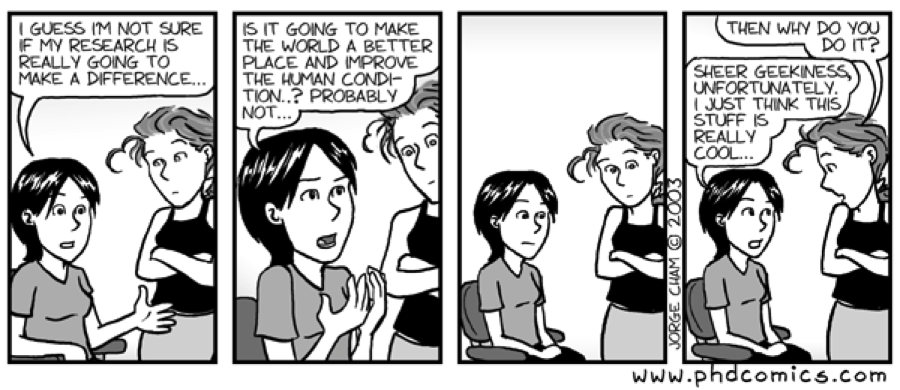
Everyone has a motivation for writing a thesis. No one (that I know of) wakes up and says, “Hey, I really just feel like writing a 100-200 page document for the fun of it.” If you do, all power to you! Remember what drew you to your topic and return to that when you feel like giving up. Remember that your work has value and is adding to the current body of knowledge. Something got you excited about your topic when you chose it; try and return to that excitement throughout the writing process. It makes the writing much more fun.
And in case you need more… Here are some helpful resources!
- Completed Dissertations and Theses: You can access these through the Nipissing Library and pull ones that have similar styles to yours to see how former students wrote certain sections that you’re struggling with. They can be found here: http://www.eclibrary.ca/library/list-subject-dissertations-and-theses
- How to Write a Discussion Section: Here is a document from the APA for Grad Students on the Dos and Don’ts of writing a discussion section. I found it very helpful because this, for me, is the hardest part of my manuscript! http://www.apa.org/gradpsych/2006/01/findings.aspx
- How to Write an Abstract: I also found this very helpful. The U of T has some great writing resources worthy of exploration. http://www.writing.utoronto.ca/advice/specific-types-of-writing/abstract
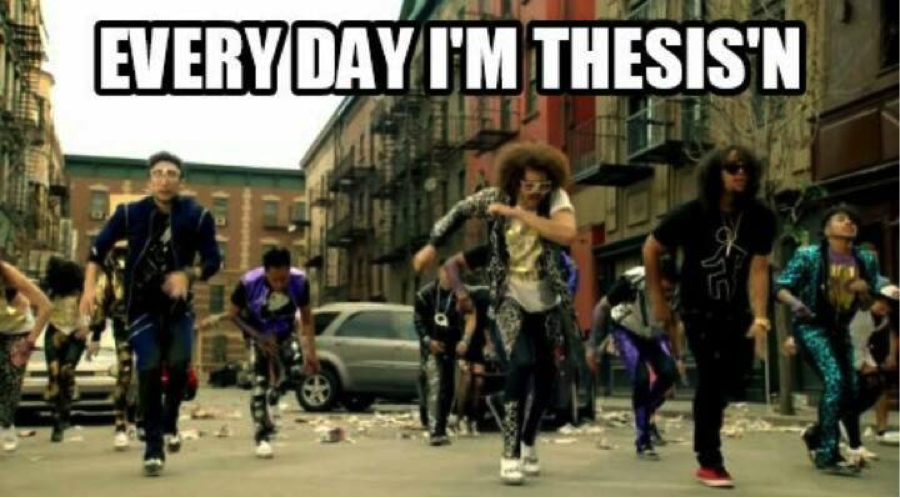
Please feel free to share! If you have something really neat and helpful that hasn’t been mentioned, share it in the comments section so that we can all add to our Grad Studies tool-kits. Happy Thesis-ing!
Relationship Building
This post comes to us compliments of Melissa Corrente . Melissa is a part-time instructor of Health and Physical Education studies at the Schulich School of Education at Nipissing University, North Bay. She was one of the 30+ representatives from the Nipissing community who went to Ottawa to present at the 2015 Canadian Society for Studies in Education (CSSE) national conference. We’d like to thank Melissa for her excellent piece highlighting the value of both presenting at and attending conferences.
I am slightly embarrassed to admit that the end of May marked the first conference I have ever attended. “The Canadian Society for the Study of Education (CSSE) is the largest organization of professors, students, researchers and practitioners in education in Canada. CSSE is the major national voice for those who create educational knowledge.” [1] I am puzzled as to why I didn’t I attend or present at any conferences during my MEd journey. My thesis is a piece of work I am still incredibly proud of; I have, however, never shared it with a larger audience. I guess it’s never too late to revisit it, or reflect upon it with a new lens.
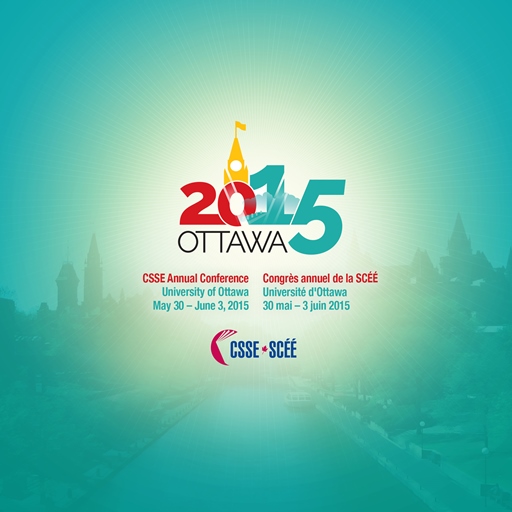
Getting back to the conference, I felt very anxious and nervous about presenting my paper in a roundtable format. Would I be able to answer all the discussants’ questions? Is my purpose clear enough? What kind of atmosphere will there be? After getting over my self-doubt, other logistical concerns started to surface. Is my Aunt’s house baby proof? How will I fit the stroller, baby gate, high chair, and play pen in the car? What will my husband and 14 month old son do while I am at the conference? Will there be too much morning traffic to commute from Kanata to Ottawa? All the minor details worked themselves out as I left Saturday morning with my husband and son in tow. After driving for three and a half hours, we arrived at my Aunt’s house. She was out getting groceries when we arrived, so I changed and fed my son on her front porch as curious neighbors looked on. Financially, I am very grateful to stay with family because it adds up quickly when you factor in hotel, travel, and meal expenses.
Sunday morning marked the beginning of my CSSE conference experience. After registering and donning my nametag, I toured around the congress expo to browse through the variety of literature for sale. Feeling a tad bit overwhelmed about what to do or see next, I decided to find a table and sit down. All the tables were occupied, so I asked a woman sitting by herself if I could join her. She was very friendly, and we started chatting about where we were from and what our research interests were. She mentioned that she recently defended her dissertation and was presenting her results at the conference. Upon explaining my interest in researching graduate student mothers, her eyes lit up! She was so excited as she described that one of her colleagues started a graduate mother support group on her campus. A group of graduate mothers would meet at a local coffee shop and would write for 45 minutes uninterrupted. Once the time expired, they would share their writing and support each other with constructive feedback. I had only been at the conference for 10 minutes, and I already developed a wonderful relationship with someone I am definitely going to keep in touch with. After saying goodbye to her, I realized the true value of relationship building while at a conference.
On Sunday afternoon, I attended a wonderful multi-paper session . I left this session feeling inspired and reassured that my topic is valid and important. I developed a great connection with a presenter who is also a graduate student mother. Her presentation and research were well articulated, and after chatting we discussed collaborating on a piece of writing down the road.
Monday morning, the day of my roundtable presentation, arrived quickly, and I ran around my Aunt’s house trying to pack up my belongings before heading to the University of Ottawa. Instead of preparing for my presentation, I was feeding my son while simultaneously trying to remove two cats off the kitchen table. After packing and preparing food for the trip home, I realized it was already time to go. Luckily the morning rush hour traffic only lasted for part of the trip, because I wanted to arrive early for my roundtable presentation.
Once I located the correct building and walked up two flights of stairs, the room was not what I had pictured in my mind. It was very small and the tables were not set up, let alone round in shape! Once all the tables and chairs were organized, most people gently nudged their way through the organized chaos. I found table #16 and met the other two presenters and the faculty and graduate student discussants. The woman I had met the previous day even came to attend my presentation, which I genuinely appreciated. The room was buzzing with energy and ideas; everyone was tightly packed into the room like a box full of crayons. Each person at my table was unique with their own research colour and contribution to the greater whole just like the crayons.
One hour and fifteen minutes was the time allotted for all three graduate students to present while leaving room for discussion. I had the luxury of being the middle presenter, so I adjusted my plan based on my observations of the first presentation. My plan was to talk for 10 minutes, and dedicate the remaining time for feedback and discussion. The first presenter was extremely passionate about her research; however, there was no time left for discussion. When my turn came to present, I started with a brief autobiography to help everyone understand what influences my work. The idea of a research puzzle resonates with me so I handed out four puzzle pieces to represent my paper with photos on the back. Overall, I felt good about my presentation, and I enjoyed sharing my paper with an academic audience.
The feedback I received was invaluable! I plan to make changes to my paper to further my thinking and improve the quality of my writing. The time flew by, and our whole table admitted that we could’ve discussed each paper for much longer. There is something to be said about interacting with other academics face-to-face. This human connection and relationship building was a very worthwhile and rewarding experience. Skype and email are fantastic communication tools, but personally sitting down with a group of people and engaging in face-to-face dialogue wins every time. If you have the opportunity to attend or present at a conference, I highly recommend taking advantage of the opportunity. You have nothing to lose; in fact, you will gain valuable relationships and feedback to help move your scholarship forward.
Happy Building!
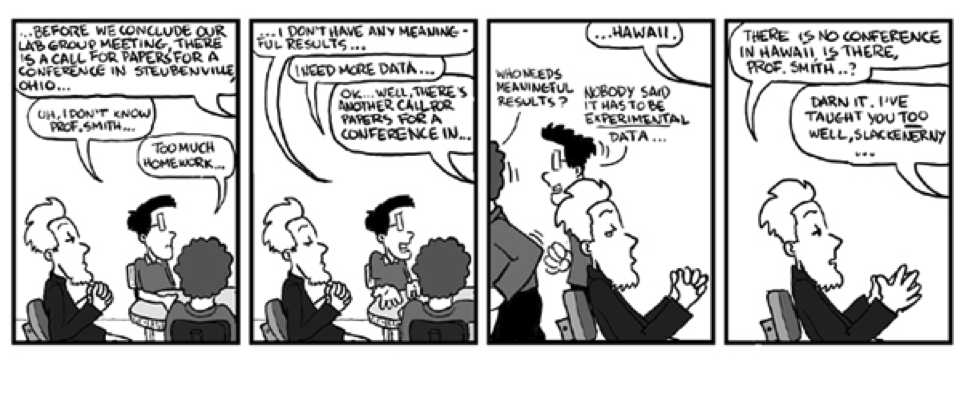
[1] http://www.csse-scee.ca/about/
Critical Friendship
The following is a dialogue between Laura McRae and Marianne Vander Dussen , both in their first year of the Master’s program. We decided to build our blog post to capture the conversational quality that has enabled us to act as critical friends and editing partners.
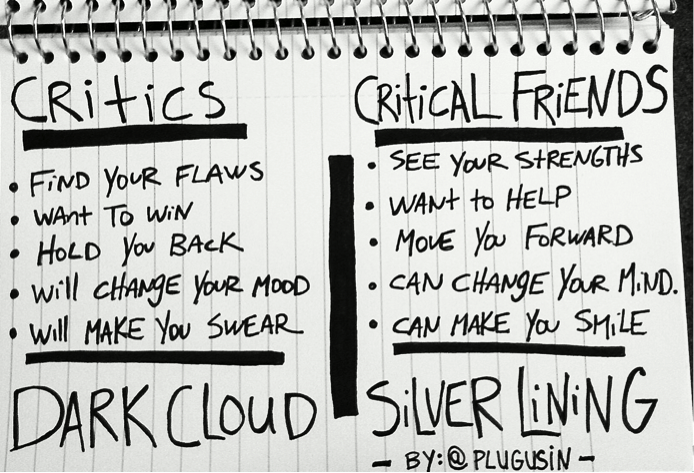
MVD: In my first term, I noticed that Laura was in all three of my classes, which I thought was a fun coincidence. Initially, her posts intimidated me; she always had her responses ready right at the beginning of the week, and reflected a high level of writing ability and critical thought. After a few weeks, the isolating effect of working alone in an online program was starting to take its toll on me, and I was desperate to connect with other students. I reached out to Laura to see if she would be interested in partnering with me on an assignment for our Research Methods class, and I’ve been working with her as my accountability partner and sounding board ever since. It was a little scary… I was afraid she’d say no!
LM: I was definitely thinking along the same lines as Marianne. Her posts were always exceptionally insightful and thought-provoking, and almost poetic in style. She is an excellent writer, which intimidated me at first! I was very happy when she reached out to me, as it gave me a chance to get to know her as a real person rather than to keep seeing her as another paragraph on my screen – a side effect of doing an online program that I am still not 100% comfortable with. Having Marianne to bounce ideas off of and to share learning experiences as well as frustrations with has definitely helped me feel more connected to my learning environment, and has helped me be accountable to more than just myself (which, personally, I need in order to remain on-task and on-time).
MVD: I agree. The accountability piece is huge. We worked together to set deadlines for each other for drafts and final pieces. Knowing that I had someone who I respected who was waiting to review my piece made me much more inspired to push through and get the work done. It meant that through my Fall and Winter terms, I was able to stay on top of my work and not allow it to pile up. It was also very helpful to have another set of eyes, in terms of catching APA errors, and noticing where there were gaps in the logic or in the supporting research. I would always look forward to her feedback, because I would much rather have a critical friend alert me to inconsistencies or areas of need than discover it after reading the grading professor’s comments!
LM: Agreed! Style was a big part of it too. Knowing Marianne would review my work without judgment made it much easier to ask about specific spots in assignments that I was having trouble with stylistically. I also enjoyed having an insider to work with – a new perspective on what our professors were after, if my work reflected the course expectations, and how she thought our professors would react to my work. Obviously we would never approach an assignment from the exact same perspective, so reading her assignments, and getting thorough feedback, helped me gain new perspectives, new ideas (which we sometimes shared) and a better understanding of course material. I wonder if we had ‘graded’ each other’s work (like we did in our Research Methods course) if we would have come out with more from the experience of working with a critical friend?

LM: I completely agree with this, but I also feel that Marianne’s comments and suggestions have always helped me to achieve better grades (even though I never held her accountable for my grades)! I also feel that having Marianne as a critical friend has helped me overcome a lot of my anxieties about taking Master’s level courses, specifically in relation to ‘impostor syndrome’. When I started my first semester, I felt overwhelmed and like I was not keeping up academically – when Marianne reached out to me as a critical peer, I gained confidence in my position in the program and insight into the mind of another new graduate student. I think the EGS blog offers a lot of the same social benefits of having a critical peer – in that it helps connect students to the program, but I would definitely suggest going a step further and finding a critical friend. I definitely would not have had as much success this year without Marianne’s insight and support!
MVD: As we move into the next stage of our Master’s work (we’re both pursuing the thesis route) it helps to know that we’ll both be there to empathize with each other’s struggles, and also be willing to unconditionally celebrate successes. The level of detachment that exists, since we haven’t ever met each other in person, serves us well on the more objective front whenever I want honest, clear feedback, but in many ways we’ve overcome those barriers of distance because we’re able to share our stories with each other without fear of judgment. Earlier this week, I was sharing some of the challenges I’ve come up against as a researcher; I’m nearly halfway through my data collection, and sometimes when I listen to the recordings of my research sessions, I get embarrassed or down on myself because I didn’t facilitate as well as I could have, or I allowed a conversation to drift on too long before redirecting it. Laura reminded me not to be too critical, and suggested envisioning myself as a third party listening to the research as opposed to being thrown off by my own voice. It was solid advice, and helped immensely. I think the secret to our success as critical partners is empathy. We’ve both independently selected almost identical courses (5 out of 6 were the same), we’re both choosing thesis, and we’re both pushing through our own respective life challenges. Her ability to manage her workload is an inspiration, and helps me break free from moments when I’d rather watch cat videos than do actual work.
LM: I couldn’t have summarized our partnership better! Marianne is lighting the way for me as she collects data and does field work, while I am still in the process of acquiring a thesis supervisor and team… Knowing she will be there for me as I begin to research and collect data is comforting – it will be a long process for both of us, and yes, cat videos are tempting, but we will keep our course!
MVD: Moving forward, I think anyone who needs ongoing support (and really, who doesn’t?) would benefit from finding a critical friend.
What we would personally look for is:
- Someone who completes work at a pace that matches yours… were they the first to comment? The last? Find someone who has similar working speed to avoid frustration.
- Someone whose writing style speaks to you and engages you.
- Someone who is able to take a critical approach in discussion, while remaining tactful.
- Someone whose interests parallel or complement your own – (i.e., literacy and FSL complement each other, or with a similar preference for methodology)
Avoid this problem…find someone in your area of interest!
Notes – EGS meeting (April 9th, 2015)
A big thank you to all who participated in this week’s Education Graduate Student meeting!
Ellen Martin facilitated this week’s article discussion and presented the group with several theoretical frameworks representing specific levels of student-centred learning. More specifically, these frameworks were divided into three sub-categories including: learning centred on students, learning centred on teachers, and learning centred on the reciprocal student-teacher relationship. Many related topics were discussed including: the hidden curriculum, un-schooling, the importance of curriculum and standards, and several perceived unsuccessful methods to teaching and learning.
Further, the following potential pedagogical solutions were offered to ameliorate both teaching and learning:
• Offering student choice.
• Ensuring that instruction and learning is meaningful, authentic, and relevant to all students.
• Reducing class-sizes to allow for more student directed learning, project-based learning, and true inquiry.
After Ellen’s wonderful article discussion, the group’s focused shifted to gender differences in the current education system. Among many influencing factors that were brought up, the following stood out:
- Sex as a biologically constructed factor; gender as a socially constructed factor.
- Perhaps gender differences can be attributed to adults’ preconceptions of gender and gender appropriateness, not those of young children.
This week’s discussions permitted a respectful debate and a variety of perspective adding a wealth of richness to presented ideas and themes.
The next EGS meeting will take place Thursday, April 23 rd from 6- 7pm (EST), and will be hosted by Michelann Parr and Marianne Vander Dussen . We will be offering Skype again to accommodate all distance students. We hope to see you there!
Summary and Notes – EGS Meeting (March 26th)
This past week’s EGS meeting was facilitated by Amy Dickerson, and centred around the theme of play-based learning. The next grad meeting will be Thursday April 9 th from 6-7pm EST , led by Ellen Martin . The following notes were taken by Melissa Kenney , which reflect the organic flow of conversation that occurred. We are looking forward to our next meeting (although Understanding Education students may be unable to attend as it coincides with the real-time sessions). Hope to see you there!
Link to the Article
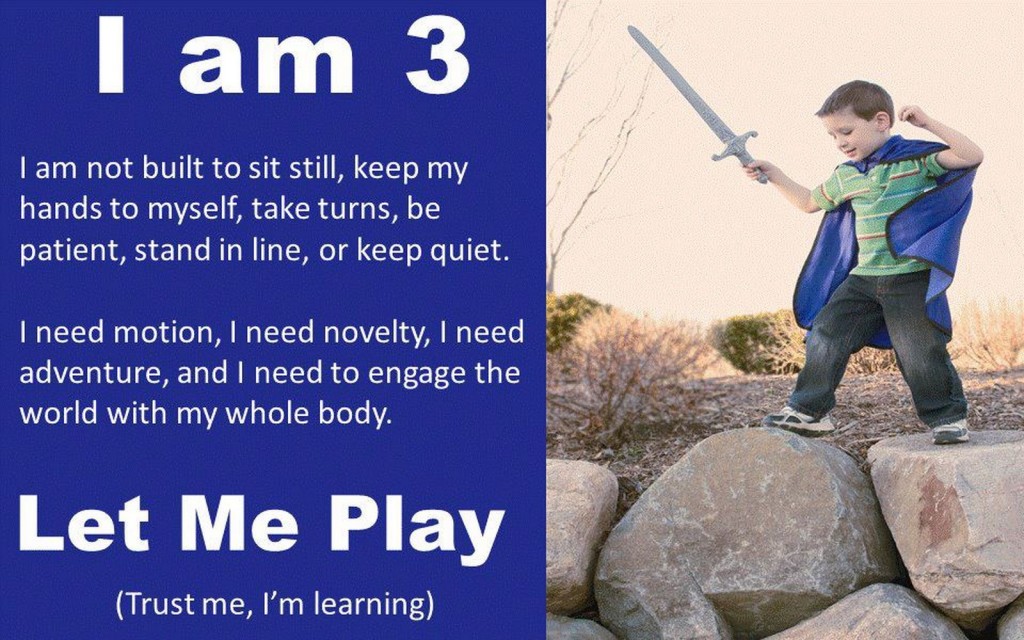
Article discussion by Amy:
- Dualism between work and play is the article– there should be a balance between this in the curriculum.
- The open-ended experiences and open-ended experience (such as play and exploration)– how can we find the balance in the curriculum?
- “Work is work and play is play” as opposed to integrating; this is seen with older kids in particular. I do school and then I get free time; the free time is their play. This is the dualism; we need academics over play, and this is how it is running at the moment.
- The Doll Example (p.234); how the play itself can lead to the achievement in the classroom. How can this be carried through to higher grades?
- Older grades play can be group based teaching; is this really what play is defined as? The definition of play is and can be different from many others.
- Play doesn’t look the same in kindergarten and grade 7, which makes things more complex.
- The article was very black and white; either play or no play, work or play either happens, and he does not feel that it is being done.
- There is so much stigma around play about how aimless it is. There are so many activities in the different grades that have some sort of play in them. Transformative exploration can be linked to play and learning.
- Adventure playgrounds being built in the U.K.
- The benefits of letting kids manage their own risks have been shown to be great, and the adventure playgrounds seem to be beneficial
- Because recess is a novelty or reward, will they be interested in this if it is offered the whole day? Because it would become the norm to be involved in their work, this recess would not be seen as such a big and important part of their day (their relief).
- If you can make play authentic, meaningful, and relevant they will remember it and it will be the point of learning.
- Kids should have a right to ask “why are we doing this?”

What does it mean to socially construct knowledge from the process of learning?
- Give kids the tools and they will make meaning of it.
- Constructivism will make it authentic, meaningful, and relevant.
- If you don’t make it relevant, they’ll forget it. Kids can also Google anything; they need to learn how to critically think, how to conduct research, etc. Why should they have to remember dates since we have access to all the information?
- You can do more in less time by letting the kids organize their own learning.
- Kids know and order themselves according to how they learn and their own level of learning.
- Nurturing acceptance of failure as a process!
- Kids shouldn’t feel scared to get the wrong answer.
- Students may blame their disability if they have one which leads to the question: Labeling them that early– is it doing them a disservice?
- Shouldn’t judge students by their peer group either
- High schools in particular are stigmatizing students based on their choice in friends, and it is incredibly silly.
- You are influencing lives right from the get-go; these students will listen to what you have to say and take it to heart.
- We seem to be reflecting after everything we do now, and there is hope that the younger generations reflect on what they say to these kids in order to catch anything that they say that isn’t appropriate.
Simple Tricks for Kicks
The following post was written by Samantha Van De Wal, a Master of Education student who is also currently obtaining her Certified Nutritional Practitioner designation and naturopathic medical degree.

Like many students, you’ve probably fallen into your winter rut, and had ample opportunity to develop some pretty gnarly habits that you didn’t have Summer 2014 (thanks, grad school). Have no fear, I’m here to give you five simple tricks to kick the unhealthy habits, rid or reduce the stress, and get a clearer mind:
1. Eating low fat is a thing of the past.
Think you’re doing yourself good by grabbing the low fat yogurt and fruit? Have you ever asked yourself whether you’re truly satiated after eating it? My guess is… you’re not. That’s because it’s loaded with sugar but has relatively no or very low fat. And while you think all fats are bad, I’m here to tell you that they’re actually the good guys that keep you fuller, longer! In fact, fats are essential macronutrients; fats are essential for us to function optimally.
- Have a long day ahead? Fats are a source of short term and long term fuel. By adding in a tablespoon of fat (like olive oil or coconut oil) into your meal or smoothie, you’re actually preventing yourself from over-indulging later. They keep you fuller longer because they take longer to digest.
- Trying to retain some knowledge and keep your brain healthy? (You’re in grad school, of course you are.) Fats are integral for brain function, and are a major contributor to your brain’s structure. Try increasing your daily Essential Fatty Acid (EFA) intake by taking 1-2 tablespoons per day of high quality fish oil.
- Fats act as a synthesizer for vital hormones in your body. Improper fat intake could lead to hormonal issues, including your adrenal hormones, which are impacted by stress.
- Beware though that there are some bad fats like saturated fats that have negative impacts (e.g., weight gain, cardiovascular disease, etc.), but only when consumed in large quantities.
2. Rev up your water intake.
Water is our life force. We’re made up of 60%+ water, and all of our physiological processes require it. Vitamins, minerals, and nutrients rely on water to dissolve and transport the material to the cell. In saying this, water plays a major role in our energy production. It increases our mental alertness and prevents us from getting headaches by sending oxygen to our brain (the same reason why working out helps us have greater clarity).
While getting 2L of water is said to be the gold star standard, my suggestion would be to aim for 3L, if you can. Take into account your vegetable intake and other water sources (included in that amount).
Not only do green juices offer an amazing amount of vitamin and mineral benefits, but they also contribute to 500mL to 1L of water intake (depending on the size of course). A simple green juice would include: a handful of greens (your choice), sprinkle of fresh parsley, juice of a lemon, half a cucumber, and half a banana to sweeten (optional). So refreshing and regenerating, and the perfect swap for your 2pm coffee.

What would Captain Vegetable do?
3. Cut the refined sugar
Low glycemic load (that is, meals that don’t cause sugar spikes) prevent sugar crashes, reduce mood swings (the highs and lows of the day), reduce fatigue (we all need that), and help in weight regulation. My suggestion is stick to a plate that looks like this:
- 1/8 protein (e.g., chicken)
- 1/8 starch and/or starchy veg (e.g., sweet potato)
- 3/4 non-starchy veg (e.g., leafy greens)
- 1 tbsp good oils (olive, coconut, avocado)
Tip: Stick to a whole foods (unprocessed) nutritional plan and avoid foods with consumer labels. You won’t have to worry about refined sugar if you’re committing to whole foods with high nutrient intake!
4. Take a high intensity workout hiatus:
Let’s face it… we’re all stressed beyond our capacities (thanks, Modern Day Life). Our adrenal glands are one of the major glands in our bodies that try to regulate our stress hormones, but the reality is that many of us are suffering from adrenal fatigue.
When planning your exercise regime, my advice is to do several moderate exercises at least 3-4x a week. This can range from a light jog to interval training, and definitely includes the addition of yoga into your routine.
Apart from increasing your circulation, increasing your flexibility, and improving your memory, yoga will make you sit still and relax… something we’re not used to doing! Finding five minutes to breathe, meditate and get into your own headspace will help you reduce your stress and maintain focus for future tasks on hand.
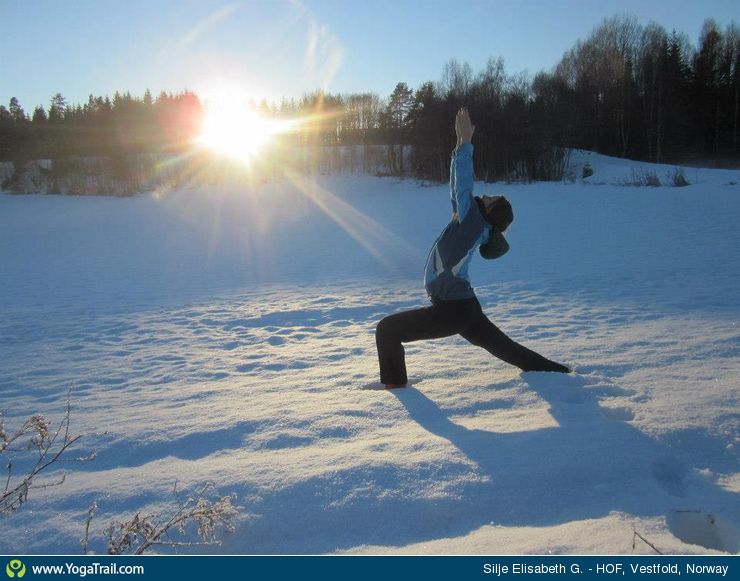
Lastly, if nothing else…
5. Take a high quality multivitamin:
The Standard American Diet (S.A.D.) lacks many of vitamins and minerals that we need in order to be our healthiest self. Let’s be honest… we don’t always have the time to prepare great, healthy meals (we just need to get that paper in). And, even if you are eating great, you may be eating a narrow diet (aka, a diet that doesn’t consider the amazing varieties of nutrients this world has to offer). A good multivitamin will contain every vitamin and mineral in the usual recommended doses. It’s likely that your stress will reduce, your memory will strengthen, your fatigue will minimize, and your sleep will improve.
So, if you’re feeling sluggish and stressed, try these five tricks to kick the bad habits that may have got you feeling crummy. You may start feeling the changes quickly, or it may take a couple weeks – this all depends on your current state of health.
Disclaimer: The above material is for your informational use, only. Always consult a healthcare practitioner (e.g., medical doctor, naturopathic doctor, holistic nutritionist) before taking any vitamins or supplements.
Rite of Passage – the PhD Comps Exam
This post comes to us compliments of Melissa Corrente . Melissa is a part-time instructor of Health and Physical Education studies at the Schulich School of Education at Nipissing University, North Bay. We’d like to thank Melissa for shining some light on the comprehensive exam, and for demystifying the PhD rite of passage with such humour.
For those who are unfamiliar with the PhD comprehensive exam, allow me to briefly explain the process involved. In order to apply for the exam, a student must complete all three core courses and two consecutive summer residencies in addition to three elective courses taken at the students’ leisure. The exam itself consists of two written responses to questions surrounding a student’s theoretical framework(s) and methodologies. As a student, you want to demonstrate knowledge of your intended research area and how it fits inside the bigger picture. Understanding the connection to educational sustainability is important as well, because conducting research across disciplines helps one become educated. Once you have defined your area of research and completed the required reading in the areas covered by the questions, it is time to register a PhD Supervisory Committee. Supervisory committees will consult with, and advise, students to help them determine when they are ready to write.

The exam has been weighing heavy on my shoulders for the last few months as I try to wrap my head around what is being asked of me. It feels overwhelming to focus on the 4000 word count for each question, and I feel this has stopped me from just sitting down and writing. If I wait for the perfect writing conditions to appear, I will never start, let alone finish. The idiom a penny for your thoughts provides me with some comfort because the graduate studies committee is asking me to explain my thought process. In reality, I shouldn’t be allowed to write a dissertation if I can’t clearly articulate my theoretical framework(s) and methodologies. While writing this piece, I received some very helpful tips and advice from those who have already passed their comprehensive exams. I would like to share with you the suggestions I received and personally thank Dr. Michelann Parr, Dr. Carlo Ricci, Dr. Carole Richardson, Glenn Hanna, and many others who anonymously provided tips.
Tips for the Comprehensive Exam:
- Meet with your supervisory team to ensure that you are ready to proceed.
- Ask questions prior to writing your comps.
- Attend to the questions – do what you are being asked to do.
- Write one question at a time.
- Circulate a detailed outline of each question (complete with references) for feedback
- Spell check, grammar check, and APA check not once, but twice!
- Don’t leave anything up to the imagination – say what you mean, and be as explicit as possible.
- Don’t make assumptions about what your reader should know; assume they don’t
- Consider the use of headings to guide the reader through your paper.
- Make sure you use references wisely and avoid sweeping generalizations that are unsubstantiated by research.
- Keep to your 4000 words.
- Be clear about your topic, why you picked it, and what you are looking to do
- Understand what other people have said about your topic and make that clear in the literature review.
- Make sure you are clear on the theoretical framework.
- Be clear on why you picked your methodology and why it is best for your topic
- Offer an idea of what each section will consist of.
- Say something about ethics re: the methodology question—show you understand the implications.
- Address your theoretical framework in the methodology section because two different people mark the questions.
- Research the history of your methodology, don’t only focus on recent sources
- The comprehensive exam is not your dissertation. Don’t go deep into theoretical areas that are peripheral to your research. The learning was in figuring out what to let go of when writing.
- Regarding methodology on the other hand, go as detailed as you can. Go from higher-level concepts, right down to the micro, all space permitting of course.
- The other thing is the benefit of just starting to write. Start writing and it will show you where you are good to go and where you need to do more reading. Writing provides a focus.
If you are preparing to write the comprehensive exam in the near future, I hope you find the above tips useful. To finish off, I’d like to share a poem I wrote one night after my baby boy was sleeping peacefully in his crib. Enjoy!
‘Twas the week before comp writing, when all through the house
my baby was crawling, and trying to play house.
The journal articles were filed in my office by name,
In the hopes that Michelann Parr would help me reclaim.
The APA guide was memorized in my head,
While I had sticky notes stuck to my bed.
And Dada in his uniform, and I in my jeans,
Had just settled our bums for our nightly reading routine.
When upstairs in the nursery, there arose such a farting,
I sprang from the couch to see what was starting.
Away to the staircase, I flew like a bird,
Tore open the diaper, and threw out the turd.
My MacBook on the office desk open wide
gave the appearance that the battery had died,
when, what to my sleepy eyes should appear,
but a power cord that will certainly help me persevere.
With a little bit of energy, luck, and good food,
I knew in a moment, I would feel gratitude.
More rapid than owls, my ideas started flowing,
And I wrote them all down as my face started glowing:
“Now APA! Now Framework!
Now, Dewey and Experience!
On, Narrative! On Inquiry!
On Discourse and Research!
To the top of the library!
To the online database!
Now search away! Search away!
Search away all!”
(Adapted from ‘Twas the Night Before Christmas’ by Clement Clarke Moore)
Summary and Notes – EGS Meeting (March 12th)
This week’s notes were compiled by Jessica Perron , our lab group coordinator.
A big thank you to all who participated in our fourth Education Graduate Student meeting, we had six in-person attendees and one Skyping in.
This week’s article was facilitated by Robin Potts and focused on the use of a conversational method in research involving Aboriginal populations. Our meeting unfolded into a rich discussion encompassing several underlying topics, including: the sensitivity of conversations involving residential schools and intergenerational effects; the importance of allowing the story of others to be told; and the benefits of using a collaborative process between researcher and participant. Further, several benefits of the conversational approach were thoroughly examined, such as giving voice, understanding context, respect for culture, and the importance of being prepared when working with vulnerable populations.
In addition to discussing the importance of this article and of the conversational method, several questions were raised:
- What subjectivities (often referred to as biases) are present when you identify yourself within your research? Does all research involve bias? (The short and long answer: YES, even if you’ve controlled a range of variables.)
- How does reducing the predetermined parameters of the conversational method benefit research findings?
- Is our focus on the limitations of a study related to the Western perspective and to a more quantitative/empirical paradigm? Why is less attention given to successes?
After the article facilitation and discussion, our focus shifted towards issues surrounding the difficulties that teachers may face when trying to motivate and engage students, especially in the upper-grades. Several perceived issues of our current education system came to light. These include: a lack of student choice, teaching to the test, and the first-step-fallacy (students have difficulty when they are given learning choices due to the fact that these choices have typically been predetermined by teachers in the past).
The next EGS meeting will take place Thursday, March 26th, from 6-7pm (EST). We will be offering Skype again to accommodate all distance students. We hope to see you there!
For those interested in the topics of this week’s article discussion, Robin Potts recommends the following two resources:
- Indigenous Methodologies: Characteristics, Conversations, and Contexts, by Margaret Kovach.
- Decolonizing Methodologies, by Linda Tuhiwai Smith
- Conversational Method in Indigenous Research by Margaret Kovach (link to article)

- Academic Calendar
- Admissions, Registration and Graduation
- Registration and Graduation
Registration
Registration status for graduate students.
Graduate Students are referred to as full-time or flex-time on the basis of the program in which they are enrolled. Regardless of this classification, all students have access to university facilities and are expected to take part in the academic life of their program and the university. All graduate students are deemed to be full-time unless declared otherwise.
Back to Top
Continuous Enrollment
Graduate students are required to maintain continuous enrollment in every Fall, Winter and Spring/Summer term until the completion of their program requirements. Students are responsible for ensuring that they are enrolled by the appropriate deadline for each term. Students who have not registered in an academic course offering or placeholder course, been granted a Leave of Absence, completed their program requirements or voluntarily withdrawn from their program by the last date to register in a term will be billed a continuation fee for that term.
Students are considered enrolled for a term when they have paid all applicable tuition, continuation and incidental fees for the term.
Students who have failed to maintain continuous enrollment for at least one term, and have not been granted a Leave of Absence, will be withdrawn from their program.
Students wishing to complete their program after they have been withdrawn must apply for re-admission and pay the application fee. Students should be aware that readmission is not guaranteed, and, in the event of readmission, continuation of the same research project and/or supervisor cannot be guaranteed. Furthermore, students may not be able to count previously earned graduate credits towards the completion of their degree.
© Nipissing University 2015 • Disclaimer • Privacy • Accessibility
Skip to Content
PhD students earn top National Science Foundation fellowships
The national awards recognize and support outstanding grad students from across the country in science, technology, engineering and mathematics (STEM) fields who are pursuing research-based master’s and doctoral degrees.
PhD students Caleb Song and Jennifer Wu are each receiving the honor for 2024. Find out more about their research below.
Awardees receive a $37,000 annual stipend and cost of education allowance for the next three years as well as professional development opportunities.
Two mechanical engineering PhD students, Alex Hedrick and Carly Rowe, also received honorable mentions from the National Science Foundation program.
2024 GRFP Honorees
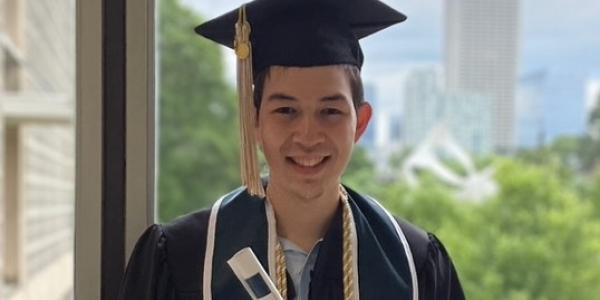
2nd Year PhD Student
Advisor: John Pellegrino Lab: Membrane Science & Technology
I did my undergrad in Electrical Engineering at Georgia Tech before coming to Boulder for my PhD in Mechanical Engineering. For the past two years, I've been working on the characterization, tuning, and scale-up of graphene-based membrane electrodes (grMEs). The funding from the GRFP will allow me to pursue low technology readiness level (TRL) electrochemical device development using these grMEs. In particular, I plan on exploring hybrid electrophoretic/size exclusion-based separations for biopharmaceutical development and processing.
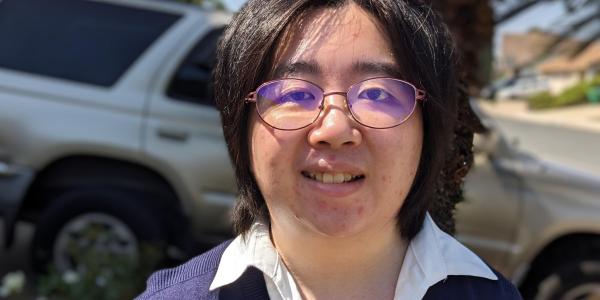
Jennifer Wu
Fall 2024 Incoming PhD Student
Advisor: Daven Henze Lab: Henze Group
My research will involve using computer simulations and environmental observations to investigate the impact of atmospheric constituents on air quality and climate change. By coupling satellite observations with state-of-the-art air pollution models, I aim to provide more accurate estimates of emissions to better inform climate and public health policy. Previously at Caltech, I worked closely with scientists at NASA's Jet Propulsion Laboratory in analyzing methane and carbon monoxide measurements in the Los Angeles Basin.
- Graduate Students
- Graduate Student Research
- Thermo Fluid Sciences
- Air Quality
- Share via Facebook
- Share via Twitter
- Share via LinkedIn
Apply Visit Give
Departments
- Ann and H.J. Smead Aerospace Engineering Sciences
- Chemical & Biological Engineering
- Civil, Environmental & Architectural Engineering
- Computer Science
- Electrical, Computer & Energy Engineering
- Paul M. Rady Mechanical Engineering
- Applied Mathematics
- Biomedical Engineering
- Creative Technology & Design
- Engineering Education
- Engineering Management
- Engineering Physics
- Integrated Design Engineering
- Environmental Engineering
- Materials Science & Engineering
Affiliates & Partners
- ATLAS Institute
- BOLD Center
- Colorado Mesa University
- Colorado Space Grant Consortium
- Discovery Learning
- Engineering Honors
- Engineering Leadership
- Entrepreneurship
- Herbst Program for Engineering, Ethics & Society
- Integrated Teaching and Learning
- Global Engineering
- National Center for Women & Information Technology
- Mortenson Center for Global Engineering
- Western Colorado University
- Election 2024
- Entertainment
- Newsletters
- Photography
- Personal Finance
- AP Investigations
- AP Buyline Personal Finance
- AP Buyline Shopping
- Press Releases
- Israel-Hamas War
- Russia-Ukraine War
- Global elections
- Asia Pacific
- Latin America
- Middle East
- Election Results
- Delegate Tracker
- AP & Elections
- Auto Racing
- 2024 Paris Olympic Games
- Movie reviews
- Book reviews
- Personal finance
- Financial Markets
- Business Highlights
- Financial wellness
- Artificial Intelligence
- Social Media
Former MIT researcher who killed Yale graduate student sentenced to 35 years in prison
FILE - In this Monday, Feb. 8, 2021, file photo, a memorial for Yale School of the Environment student Kevin Jiang near the scene of his shooting at the corner of Nicoll and Lawrence Street in New Haven, Conn. Qinxuan Pan, a former researcher at the Massachusetts Institute of Technology is being sentenced Tuesday, April 23, 2024, to 35 years in prison for killing Yale grad student Kevin Jiang in New Haven in 2021. (Arnold Gold/Hearst Connecticut Media via AP)
- Copy Link copied
NEW HAVEN, Conn. (AP) — A former researcher at the Massachusetts Institute of Technology was sentenced Tuesday to 35 years in prison for the killing of a Yale University graduate student found shot outside his car on a Connecticut street.
Qinxuan Pan, 33, who pleaded guilty to murder in February, apologized during a hearing in a New Haven courtroom packed with family and friends of the victim, Kevin Jiang.
“I feel sorry for what my actions caused and for everyone affected,” Pan said. “I fully accept my penalties.”
Jiang, 26, a U.S. Army veteran who grew up in Chicago and a graduate student at Yale’s School of the Environment, had just left his fiancée’s apartment in New Haven on the evening of Feb. 6, 2021, when he was shot multiple times by Pan, according to police and prosecutors. The couple had just gotten engaged days earlier.
Several of Jiang’s relatives and friends spoke in court before the judge handed down the sentence, which Pan agreed to as part of his plea bargain.
“My son was a remarkable young man who cherished life and held deep (belief) in God. He had a bright future ahead — one that promised to spread God’s love far and wide,” said Jiang’s father, Mingchen Jiang.
A motive for the killing was never made entirely clear. Investigators said they discovered that Pan and Jiang’s fiancée were connected on social media and had met while at MIT, where both had graduated from and where Pan was working as a researcher at the time of the shooting.
According to the documents, Jiang’s fiancée told authorities she and Pan “never had a romantic or sexual relationship, they were just friends, but she did get a feeling that he was interested in her during that time.”
After the shooting, Pan fled the scene and eluded police for three months before being apprehended in Alabama , where officials said he was caught living under a fake name with $19,000 in cash, a passport and several cellphones.
The Graduate College at the University of Illinois at Urbana-Champaign
The career center: 2024-25 graduate assistant for international student career development, organization, description, responsibilities, and qualifications.
- Recruit, train, and lead students who volunteer as a group leader for the Career Certificate - International Students Program (CC-I)
- Maintain and update career resources for international students, including the weekl newsletter and blogs
- Develop and present workshops for international students in collaboration with The Career Center, campus partners, and RSO’s
- Reach out to international student organizations to promote services and resources provided by The Career Center
- Assist in creating and developing opportunities for international students to connect with alumni and employers
- Collect and summarize data for semester reports, conduct program evaluations, and recommend modifications
- Provide one-on-one resume, cover letter, and Linked-In profile reviews
- Coach students on career exploration and job/internship search strategies, individually and in groups
- Collaborate with The Career Center staff and other campus partners
- Meet regularly with the supervising Assistant Director or Sr. Assistant Director
- Perform other duties as assigned by the Assistant Director or Sr. Assistant Director
- Experience working with diverse groups of students; knowledge and appreciation of culturaldifferences
- Exceptional leadership, organizational, communication, interpersonal, and teamwork skills
- Experience developing and/or presenting programs or workshops
- Experience with information technology, including use of online resources and presentationsoftware
- Excellent customer service and public relations skills
- Able to work a flexible schedule, including evenings and occasional weekends, ability to balance assistantship duties with coursework/class schedule
- Prior experience with and knowledge of career planning resources and activities is preferred
- Experience of having lived outside the U.S. for more than three years is preferred
- Lived experience as an international student in the U.S. is preferred
- Ability to speak additional languages besides English is preferred
Compensation
Application procedure.
Apply to the position: go.illinois.edu/2024-25INTLGA. Application Deadline: 04/30/2024 11:59 pm.
Evaluation of qualified applicants will begin immediately and continue until a candidate is selected. Interested candidates should complete an application and submit a resume and a cover letter describing how this GA position connects to their field of study and career goals. Interested applications must submit their application here: go.illinois.edu/2024-25INTLGA. For questions regarding the position or application process, reach out to Dr. Pankaj Desai, Senior Assistant Director for Inclusion Initiatives at [email protected].
Application Deadline
Contact name.
Princeton U. breaks up pro-Palestinian encampment, arrests students
- Updated: Apr. 26, 2024, 8:28 a.m. |
- Published: Apr. 25, 2024, 1:11 p.m.
- Tina Kelley | NJ Advance Media for NJ.com
Two Princeton University graduate students were arrested during a pro-Palestinian protest on campus Thursday morning, university officials said.
After the university’s Department of Public Safety warned students repeatedly to stop erecting about half a dozen tents and leave the area, two students were arrested by Public Safety officers for trespassing, said Jennifer Morrill, a Princeton University spokeswoman. The students were immediately barred from campus and will face a campus disciplinary process.
The protesters, who totaled fewer than 100 people, took down the tents of the newly-erected encampment voluntarily, Morrill said.
During the demonstration, former New York Times Middle East bureau chief Chris Hedges was escorted off campus . Multiple sources said he was reading a poem about Palestinian children, using an amplifier.
While declining to name the person, Morrill said a speaker who had been warned multiple times that amplified sound is not allowed at protests was issued a one-day ban from the Princeton campus and left.
At a news conference after the student arrests, protesting Princeton students said they would continue their demonstration until the Ivy League university divests its investments from firms profiting from the Israel-Hamas war.
The arrests came as pro-Palestinian student encampments are being set up on multiple university campuses, including Northeastern, Emerson, City College, Northwestern and George Washington. Many of the students are vowing to remain in place until their schools divest from companies tied to Israel or cease to invest in any entity that supports Israel in the Israel-Hamas war in Gaza.
At least 40 campuses nationwide have had sit-ins or put up encampments with student demanding divestment, according to a count by The Chronicle of Higher Education.
A student encampment at Columbia University in New York City has been in place for more than a week, and university officials are negotiating with protesters about removing it.
In a Thursday editorial in The Princetonian , Princeton President Christopher L. Eisgruber said encampments are prone to confrontation. “Columbia University moved classes online because of concerns about the safety of its students,” he wrote. “At Yale University, a student reportedly had to seek medical attention after an altercation at an encampment.”
Princeton Vice President of Campus Life Rochelle Calhoun sent a message Wednesday warning students they could be arrested and kicked off campus if they are involved in an encampment.
“Any individual involved in an encampment, occupation, or other unlawful disruptive conduct who refuses to stop after a warning will be arrested and immediately barred from campus,” she wrote. “For students, such exclusion from campus would jeopardize their ability to complete the semester.”
Students could eventually be suspended or expelled, she said.
The New Jersey chapter of the American Civil Liberties Union urged all university officials to continue fostering debate, even if it is contentious.
“Especially in challenging times, it’s imperative that colleges and universities resist any pressure to address demonstrations with force or impose harsh punishment on students for protesting,” said ACLU-NJ Executive Director Amol Sinha. “Free expression is central to productive dialogue and is a cornerstone of our democracy — colleges and universities must be committed to embracing and defending it.”
At Princeton, protesters began to erect tents on McCosh Courtyard before 8:30 a.m., The Princetonian reported. A video posted on the campus newspaper’s website showed at least one tent set up as students chanted “we will not stop, we will not rest.”
“I applaud Princeton administration for being clear on what the rules are and for enforcing them properly,” Rabbi Eitan Webb, the co-director of Princeton’s Chabad House, told The Princetonian.
Max Weiss, a Princeton history professor and member of the Faculty for Justice in Palestine, told the student paper, “The students have shown an inspiring amount of courage, determination and discipline.”

Stories by Tina Kelley
- Gaza protesters take over Princeton building, set up encampment at Rutgers
- Rutgers cutting 37 instructors from one of its largest programs, union says
- Rutgers discriminates against Palestinian and Muslim students, federal complaint alleges
Our journalism needs your support. Please subscribe today to NJ.com .
Tina Kelley may be reached at [email protected] .
If you purchase a product or register for an account through a link on our site, we may receive compensation. By using this site, you consent to our User Agreement and agree that your clicks, interactions, and personal information may be collected, recorded, and/or stored by us and social media and other third-party partners in accordance with our Privacy Policy.
- International
April 25, 2024 - US university protests
By Elise Hammond, Chandelis Duster, Kathleen Magramo, Elizabeth Wolfe, Aya Elamroussi, Lauren Mascarenhas and Tori B. Powell, CNN
At least two professors detained during Emory University protests
From CNN's Nick Valencia
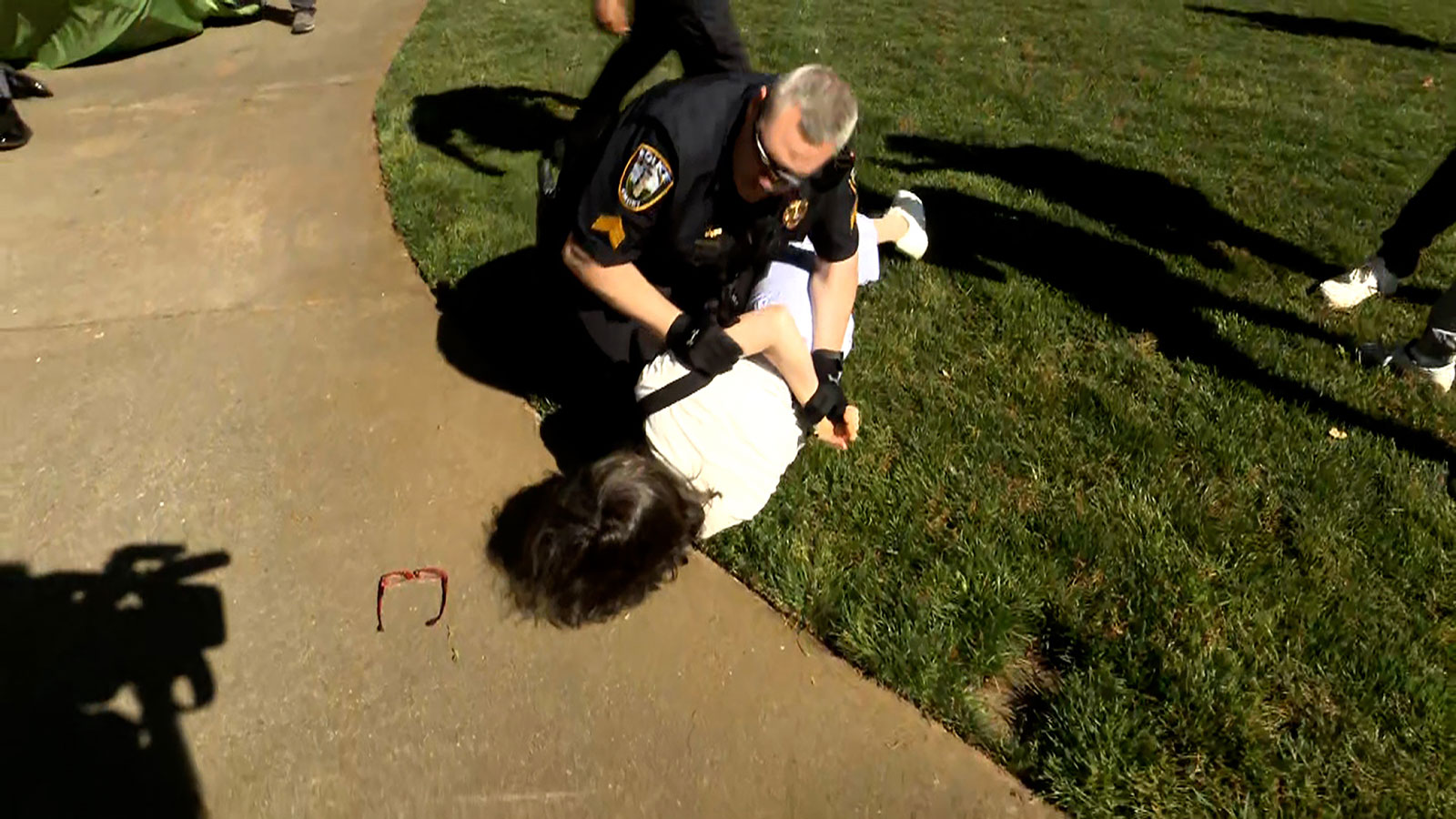
A CNN crew witnessed at least two professors detained by Atlanta police, including Emory University economics professor Caroline Fohlin and Noëlle McAfee, chair of the philosophy department.
CNN filmed video of women being detained. During her interaction with police, Professor Fohlin could be heard expressing concern about the violent arrests and use of force by police against individuals she identified as students.
CAIR condemns “use of force and arrests” at Emory University
From CNN's Chandelis Duster, Devon Sayers and Nick Valencia
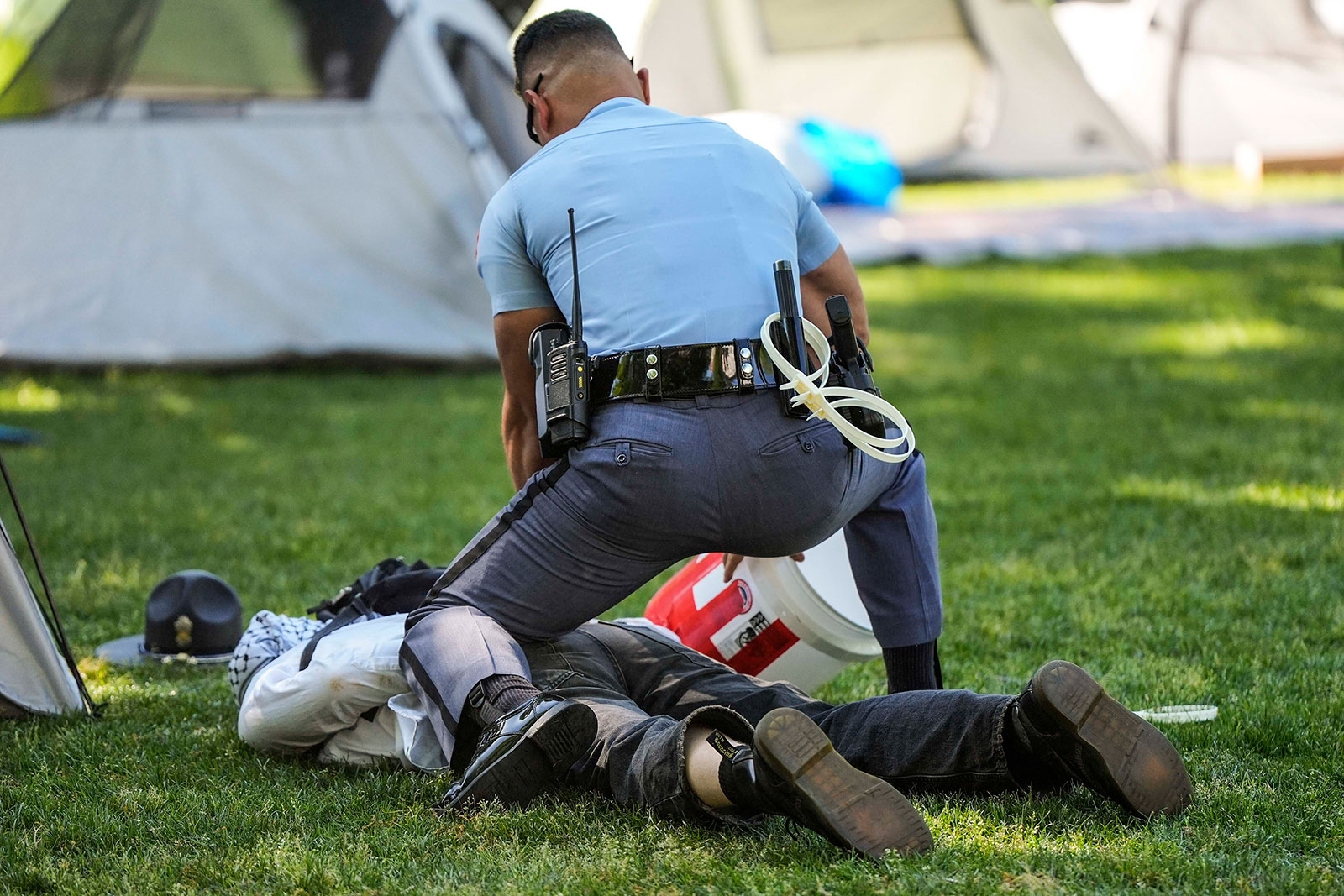
The Council on American-Islamic Relations chapter in Georgia on Thursday condemned the “use of force and arrests” by police officers against protesters at Emory University in Atlanta.
“Protesters shared a day of cultural learning and community despite which Emory deployed excessive use of force, tear gas, and rubber bullets,” the organization said in a statement. “Emory University and APD fully bear responsibility for the violence we are seeing at the Emory campus right now. Students and protesters must be allowed their full constitutional rights.”
Protesters were arrested on the campus of Emory University after an encampment was formed in the university quad area Thursday morning.
Video from the scene showed law enforcement officers wrangling protesters to the ground and forcefully putting people in zip-tie handcuffs.
Law enforcement officers used pepper spray to help clear the area of demonstrators, a CNN team on the scene reported. They also deployed pepper balls against a crowd gathered around protesters that had been detained by police.
ACLU of Texas calls on state officials to create safe spaces for students to protest
From CNN's Lauren Mascarenhas and Jeremy Grisham
The American Civil Liberties Union (ACLU) of Texas warned against state and university officials deploying law enforcement to “violently censor” protests held by pro-Palestinian demonstrations at the University of Texas at Austin and other universities across the nation.
“The First Amendment guarantees people in Texas and across the nation the right to protest, including those who advocate for Palestinians,” a statement from the group read. “However, state leaders rapidly escalated a planned day of peaceful demonstrations by deploying law enforcement in riot gear against students and the press. Public officials don’t get to forcefully suppress the voices of people they disagree with.”
Dozens of protesters were arrested at UT Austin Wednesday.
In its statement, the ACLU of Texas called on state officials to create safe spaces for students, staff and faculty to protest.
Emerson president offers grief counseling to students after protests lead to more than 100 arrests
From CNN's Samantha Delouya
Emerson College President Jay Bernhardt said he "recognizes and respects the civic activism and passion that sparked the protest" in a statement Thursday after law enforcement officials cleared a pro-Palestinian tent encampment at the school, leading to dozens of arrests on Wednesday night.
"Emerson staff and administrators were at the scene, focused on supporting our students through this highly stressful situation and seeking to de-escalate the conflict," Bernhardt said. "Today, Emerson officials were at the police precincts and courthouses with the arrested students, and the College will receive them back on campus when they are released."
More than 100 people were arrested and four police officers were injured during the encampment clearing at the Boston liberal arts college, according to the Boston Police Department.
Bernhardt said that he understood that the encampment clearing "has significantly and adversely impacted our community" and offered students the support of grief counselors on campus on Thursday.
Prosecutor drops charges against dozens of protesters arrested at UT-Austin Wednesday
From CNN's Ashley Killough
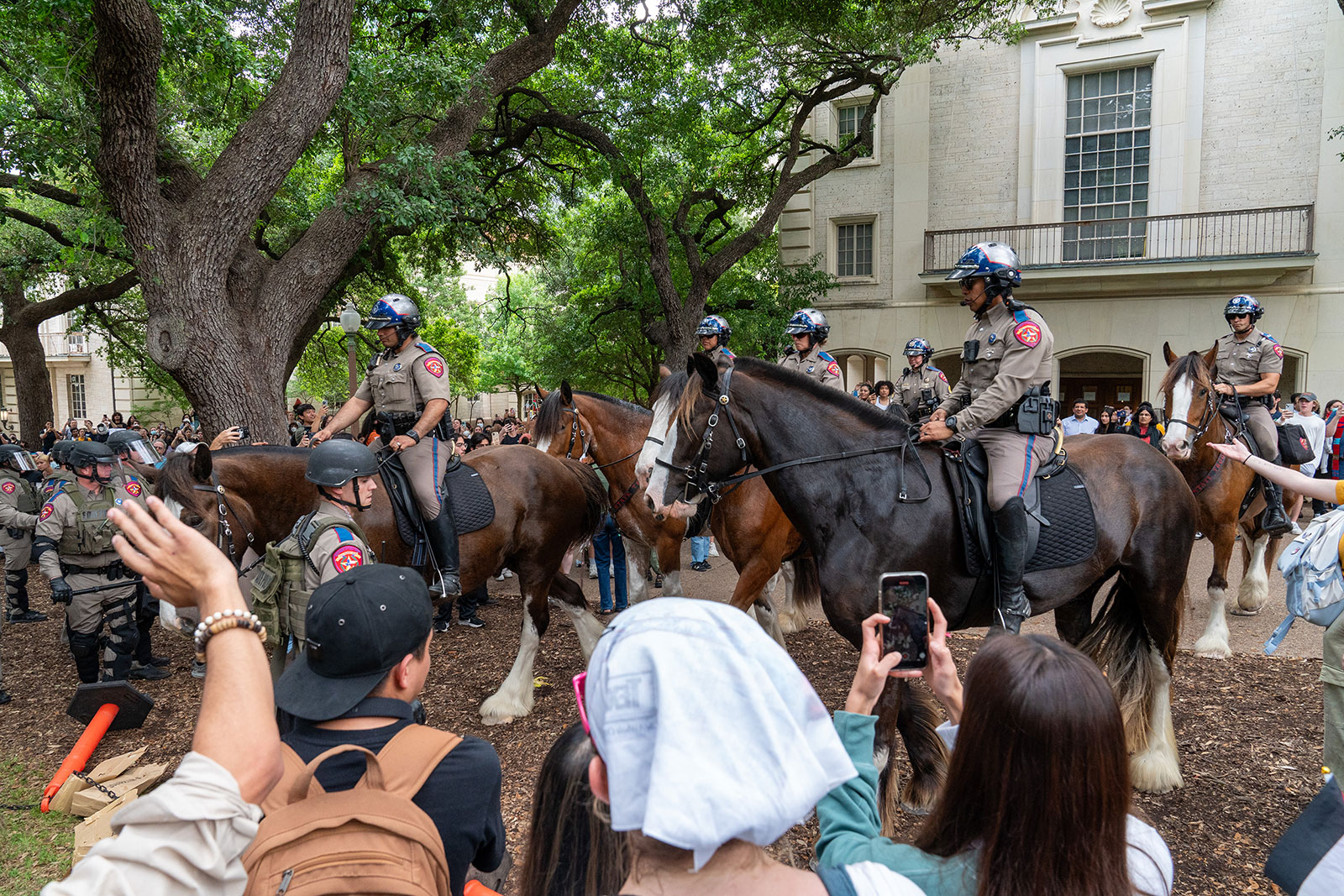
Following Wednesday’s arrests of dozens of protesters on the campus of the University of Texas at Austin, the local prosecutor’s office says 46 cases have already been dismissed.
“The Travis County Attorney’s Office received several cases yesterday and throughout the evening as a result of yesterday’s demonstration at the University of Texas,” said spokesperson Diana Melendez with the Travis County Attorney’s Office Thursday. “Legal concerns were raised by defense counsel. We individually reviewed each case that was presented and agreed there were deficiencies in the probable cause affidavits.”
The prosecutor’s office says the court ordered those protesters to be released. “We will continue to individually review all cases presented to our office to determine whether prosecution is factually and legally appropriate,” said Melendez.
Students rally at Georgetown University, march to encampment at George Washington University
From CNN's Lauren Koenig
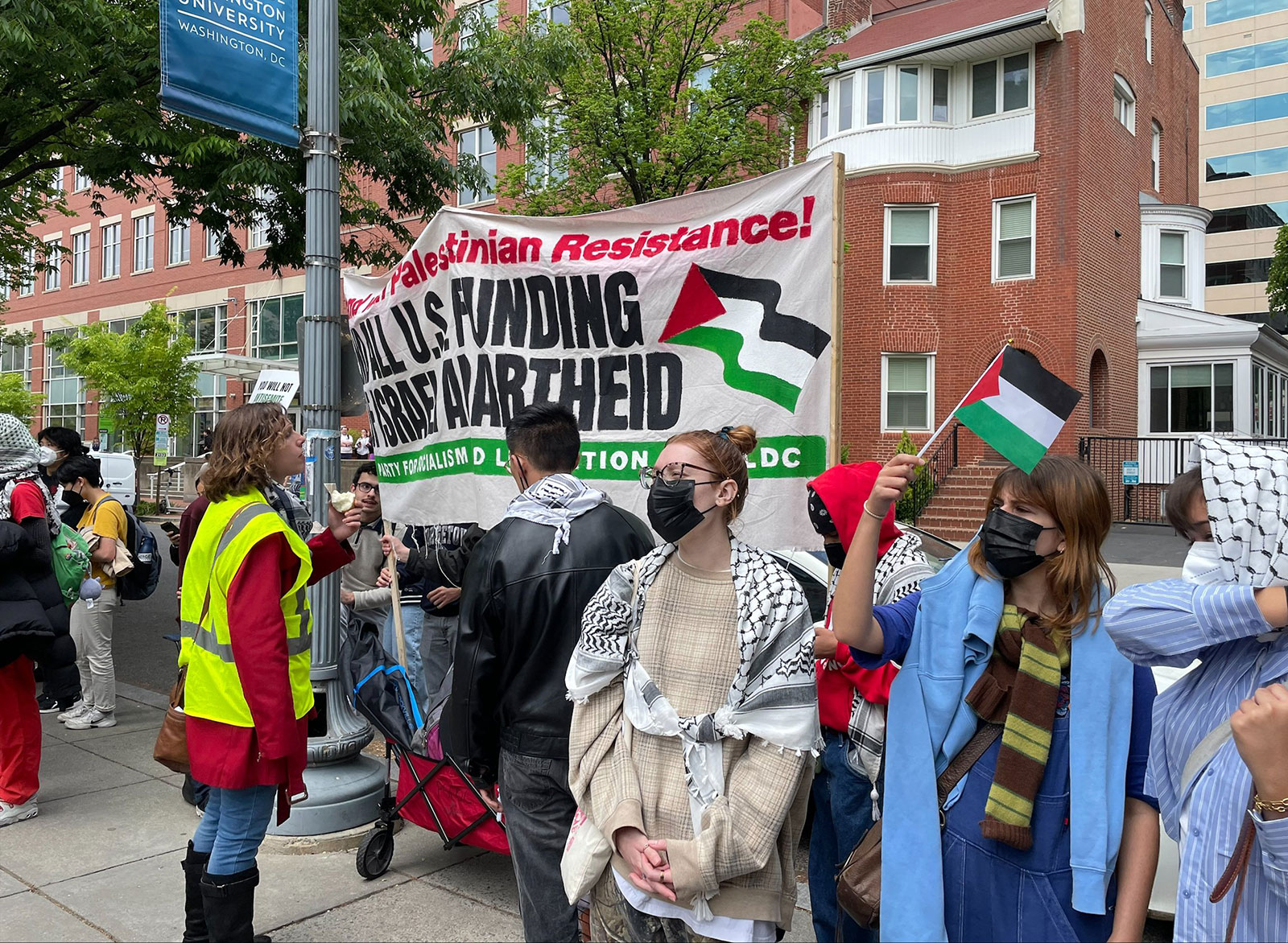
At Georgetown University in Washington, DC, a crowd of pro-Palestinian protesters filled about one-third of the circular driveway in front of Healy Hall, the main administrative building on campus.
The crowd remained peaceful as organizers spoke and led chants of "free Palestine" and "from the river to the sea." The crowd then marched to the encampment at George Washington University, led by several professors wearing graduation regalia.
At the GW encampment, dozens of tents filled about one-quarter of the campus' University Yard.
“There is only one solution, intifada revolution, intifada intifada, long live the intifada," the demonstrators chanted, holding signs reading "Resistance is justified when people are occupied!" "Stop the invasion!" and "Ceasefire now!"
Cheers erupted when the marchers from Georgetown arrived on GW's campus, with continued chants for "intifada revolution." The Georgetown students were escorted into the GW encampment.
Two arrested for trespassing at Princeton University Thursday during protest
From CNN's Samantha Kelly and Taylor Romine
Two graduate students at Princeton University in New Jersey were arrested Thursday morning for trespassing, the university said in a statement.
People started gathering for a protest Thursday when "a small number began erecting about a half-dozen tents," the statement said.
"After repeated warnings from the Department of Public Safety to cease the activity and leave the area, two graduate students were arrested for trespassing," the statement said, adding that the students are not allowed on campus pending a disciplinary process.
The tents were taken down by protesters, they said, but protests at the university are still underway.
On Wednesday, the university put out a message to students sharing the university's policy on protests.
"In addition to disrupting University operations, some types of protest actions (including occupying or blocking access to buildings, establishing outdoor encampments and sleeping in any campus outdoor space) are inherently unsafe for both those involved and for bystanders, and they increase the potential for escalation and confrontation," the message said.
NYPD Chief: “Good SAT scores and self-entitlement do not supersede the law”
From CNN’s Chris Boyette and Caroll Alvarado
As the deadline for negotiations between protesters and Columbia University officials about clearing the encampment on its lawn nears, one high-ranking New York Police Department chief said the students are learning an important lesson.
“Columbia decided to hold its students accountable to the laws of the school. They are seeing the consequences of their actions. Something these kids were most likely never taught,” Chief John Chell, NYPD Chief of Patrol, wrote in a lengthy post on X . “Good SAT scores and self-entitlement do not supersede the law.”
The chief’s message came in response to an X post from Democratic Rep. Alexandria Ocasio-Cortez, in which the New York congresswoman questioned Columbia’s decision to call the NYPD on their own students.
Chell also expressed frustration at what he said were students' “hateful anti-Semitic speech and vile language towards our cops.”
CNN has reached out to the NYPD for comment on the chief’s statements and Ocasio-Cortez’s office for reaction.
Pro-Palestinian encampment forms at George Washington University
From CNN's Taylor Romine
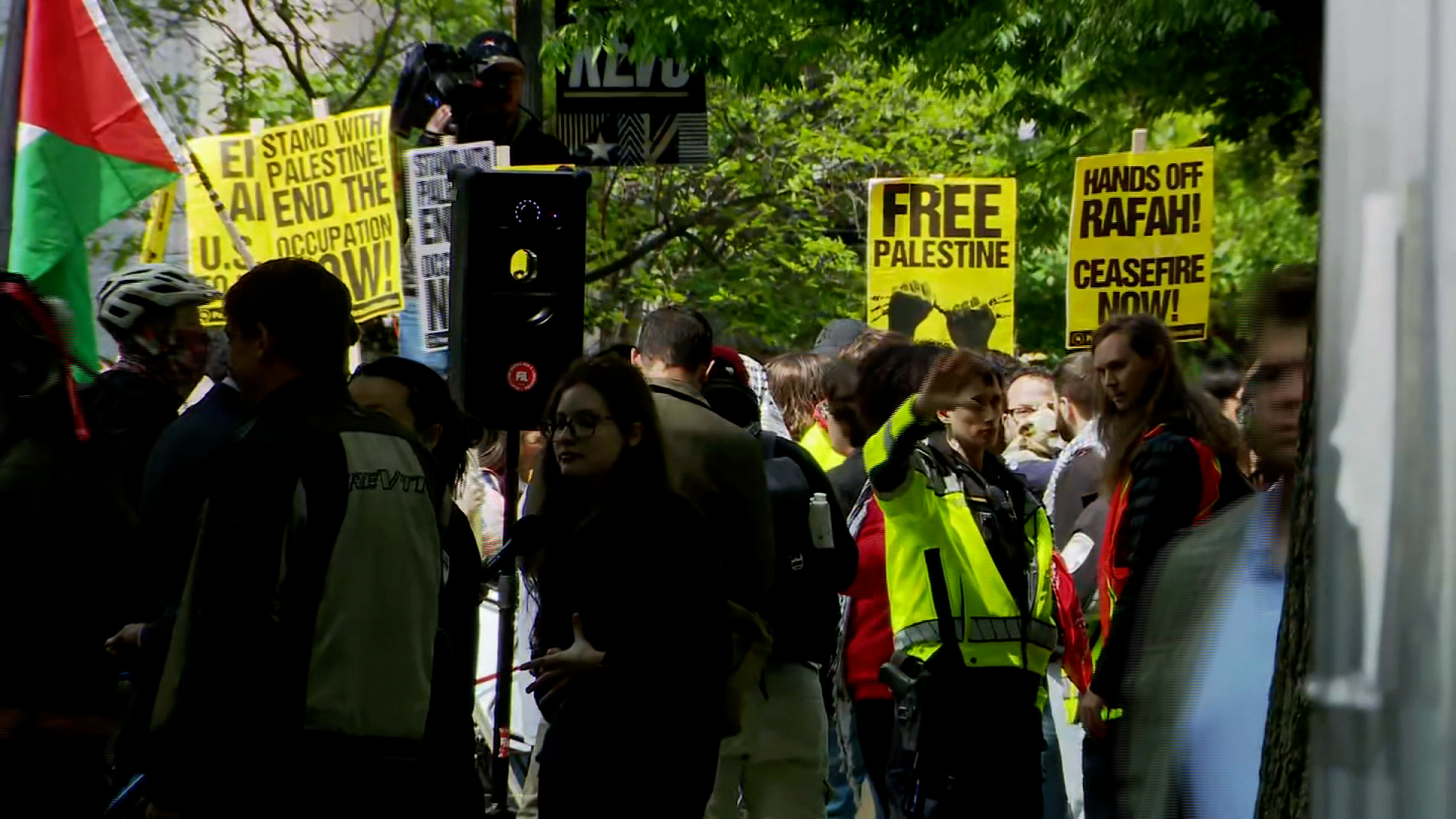
George Washington University has joined a growing list of schools across the nation where Pro-Palestinian demonstrators are forming encampments on school campuses, according to videos posted by The GW Hatchet student newspaper.
The encampment was organized by students at multiple universities across the District of Columbia, Maryland and Virginia, a group representing the coalition of Students for Justice in Palestine said in a post on Instagram .
The encampment is a “united demonstration of our power, uplifting our collective demands for financial transparency, boycotts and divestment from the zionist state, and an end to the racist repression pro-Palestine students," the post said.
In a statement to CNN, George Washington University said it is aware of about 50 students gathering on the University Yard with about 20 tents, in addition to non-students. The university said the protest has remained peaceful.
George Washington Police Department officers and other university officials have responded to the protest, and the school said it is coordinating with the DC Metropolitan Police Department.
Please enable JavaScript for a better experience.
How the Columbia protests sparked campus demonstrations across the country
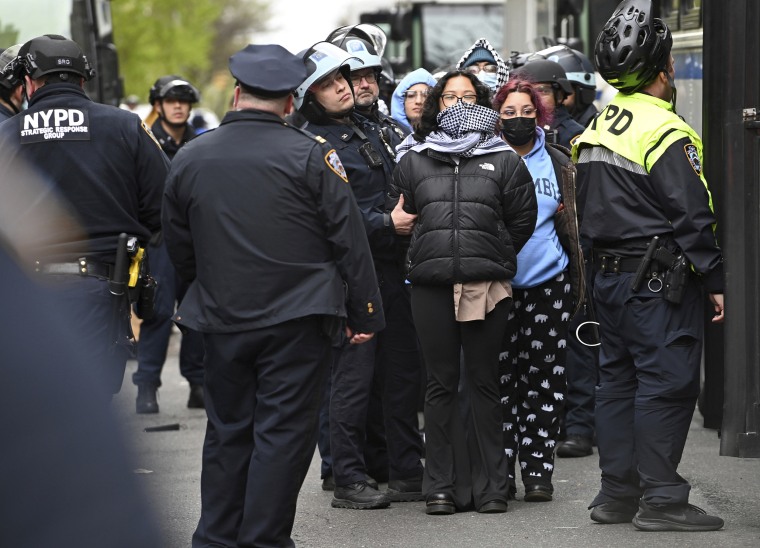
It just added fuel to the fire.
The decision by Columbia University’s president, Nemat “Minouche” Shafik, to call in the New York Police Department to clear pro-Palestinian protesters from the campus last week appears to have sparked the spate of increasingly strident demonstrations that have erupted at universities in New York City and across the country in recent days, students and faculty members said.
Since Thursday, when police arrested 108 Columbia University demonstrators, including Rep. Ilhan Omar’s daughter, Isra Hirsi, similar protests have erupted on campuses across the country, from New York University and Yale University to the University of Illinois and out west to the University of California, Berkeley, and the University of Southern California, which shut its gates late Wednesday because of the growing demonstrations.
The encampment at Columbia sprung up April 17, the day Shafik was grilled about on-campus antisemitism by the Republican-led House Committee on Education and the Workforce. Shafik faced questions about her handling of antisemitism on campus after Hamas' attack on Israel on Oct. 7 alongside two members of Columbia’s Board of Trustees and the head of its antisemitism task force. The next day, Shafik had police clear the encampment; more than 100 protesters were arrested.
That got Rachel, 19, a Columbia student who asked to be identified only by her first name because of fear of retaliation or suspension by the school, off the fence and into one of the tents that pro-Palestinian demonstrators had raised on the campus in upper Manhattan.
“I think that that was sort of the straw that broke the camel’s back, because students had already been feeling incredibly suppressed and censored by President Shafik,” Rachel said.
Noting that the last time a Columbia University president summoned the police to disperse student demonstrators was back in 1968, at the height of the Vietnam War, Rachel said what she called Shafik’s attempt to intimidate them was backfiring.
“Movements inherently boil when they’re facing extra suppression,” she said.
The Columbia students protesting the war have demanded that the school cut financial ties with Israel and divest from Israeli companies. And they have inspired students across the country to do the same.
“This is about solidarity," said Alex, a Jewish student at the University of Michigan who is part of the pro-Palestinian movement and asked to be identified only by his first name out of fear of retaliation. "We have colleges all across the nation performing a synchronized act because we work together. This is a collective movement far beyond the United States."
Organizers say they were also inspired by protests against the apartheid government of South Africa that an earlier generation of Michigan students took part in.
“It’s never been bigger than it is right now,” said a masked male organizer, who asked to remain anonymous out of fear of retaliation. “We’ve seen that this has been effective in achieving concessions from the administration towards divestment from Israel, apartheid and genocide.”
But it has also sparked a backlash, particularly from politicians on the right who have been urging university administrators to crack down hard on the protesters.
"You have to have law and order on campus," House Speaker Mike Johnson, R-La., told NBC News' Stephanie Gosk after he met with Jewish students at Columbia. "Listen, taxpayer funding comes to institutions like this. The American people are demanding that we bring order to this chaos. We have this kind of thing mushrooming around the country right now."
Encampments have continued on Columbia's campus into this week, with Shafik calling for classes to be held virtually Monday and initially giving the demonstrators a deadline of midnight Tuesday to fold up their tents and disperse before she announced that conversations would continue over the next 48 hours without forcing the encampment to be removed.
“We are making important progress with representatives of the student encampment on the West Lawn,” a college spokesperson said.
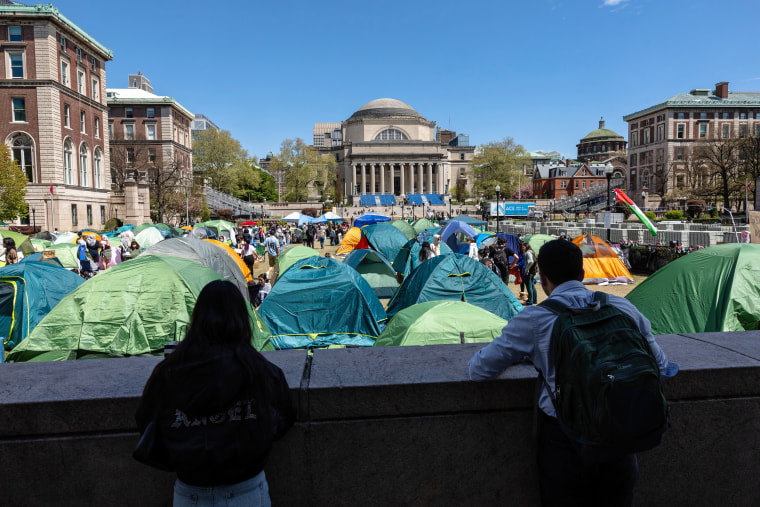
Marianne Hirsch, a Columbia University English professor, said Shafik has been "squashing peaceful protest, squashing open debate, not allowing students to express their opinions and debate their opinions."
And the fact that Shafik summoned the police last Thursday, a day after she was questioned at the congressional hearing, is no coincidence, she said.
"I’m extremely concerned about antisemitism my entire life, and I’m extremely distressed right now to see how antisemitism is being weaponized and used, misused ... under the guise of safety and security," Hirsch, whose parents were Holocaust survivors, said Tuesday.
Later, Hirsch said she “cannot but agree this is motivated by trying to pacify congressional members who are trying to interfere in the running of this school.”
Early Monday, Shafik said that classes would be held virtually Monday and that school leaders would come together to discuss a way to bring an end to “this crisis.”
Several Jewish students at Columbia have told NBC News the antisemitism they experienced was very real and that they're steering clear of the campus for their own safety.
“The tension is so high,” said Itai Dreifuss, 25, a junior and an Israeli who says he has been spat on and taunted by campus protesters waving Hamas flags. “It’s definitely frustrating to be a part of this campus right now. You feel so helpless, and you feel so exposed.”
Speaking with reporters, Johnson said he heard that Jewish students had been "running for their lives."
Gosk challenged that assertion, telling Johnson that while some Jewish students she spoke with "are certainly afraid for their safety," they are "not running for their lives."
"I had standing room only with a house full of Jewish students talking about the intimidation and threats that they experienced," Johnson replied.
Sueda, a graduate student who helped organize the pro-Palestinian protests at Columbia and asked to be identified only by her first name to avoid reprisals, said students escalated pressure on the university and started the tent encampments after previous forms of protest did not lead to the intended results.
"Have those protests yielded any material results from the university? Have they yielded an acknowledgment of the pain felt by Palestinians and by the community that is in solidarity with them? Have they yielded any statements of sorrow or regret by the university for their overly punitive treatment of pro-Palestinian students? No," she said.
Oren Root, a longtime New York City lawyer and Columbia University graduate who was at the school when anti-Vietnam War protests rocked it in 1968, said Shafik's summoning of police was "an extraordinary miscalculation."
"President Shafik and her advisers clearly didn't learn from history," said Root, who was a top editor at The Spectator, the Columbia student newspaper, in 1968 and 1969. “Calling in the cops was clearly a mistake. Things have not gotten any calmer.”
The decision in 1968 by university President Grayson Kirk to have the police forcibly remove protesters from the buildings they were occupying only inflamed the situation and tarnished Columbia's reputation for many years, Root said.
Root, who called for Shafik's resignation in an opinion piece in The Spectator on Monday , said Columbia also appears to have chosen a side in the Gaza battle.
In response, a spokesperson for Shafik did not address Root's criticisms or the calls for her resignation.
"President Shafik is focused on deescalating the rancor on Columbia’s campus," the spokesperson said in a statement Tuesday. "She is working across campus with members of the faculty, administration, and Board of Trustees, and with state, city, and community leaders, and appreciates their support."
New York police also arrested more than 100 protesters at NYU's Gould Plaza on Monday night.
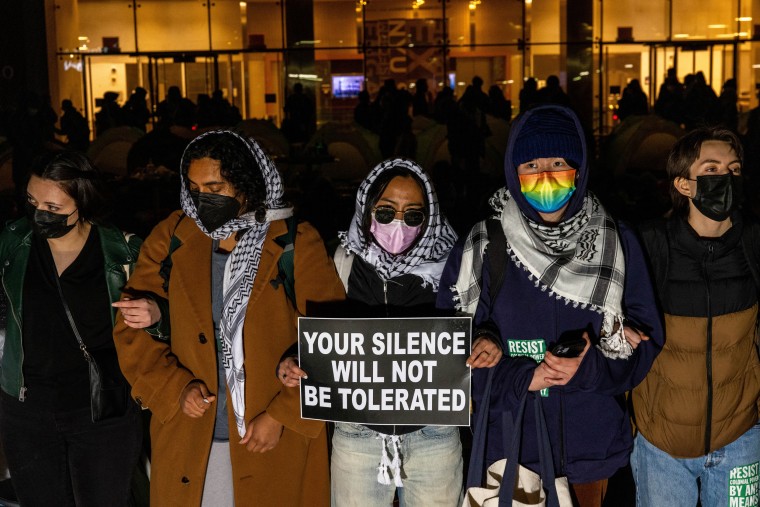
Pro-Palestinian encampments have also been established at other schools that have been the sites of anti-Israel demonstrations, like the Massachusetts Institute of Technology, the University of Texas and California State Polytechnic University, Humboldt.
New York Mayor Eric Adams said this week he believed "outside agitators" were using the Israel-Hamas war as an excuse to cause violence and mayhem in the city.
“We can’t have outside agitators come in and be destructive to our city," Adams said at a news conference Tuesday. "Someone wanted something to happen at that protest at NYU."
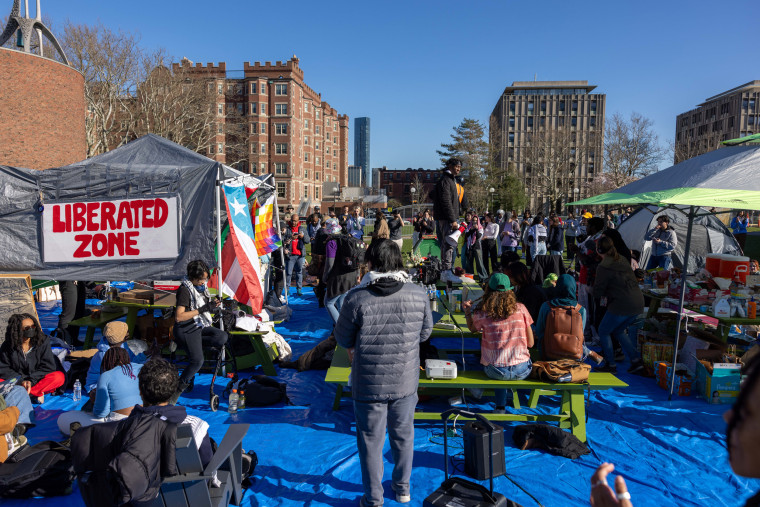
It was not clear how many of those arrested at Columbia were students and how many were outsiders. Police did not respond to two requests for comment on the arrests.
Meanwhile, a group of 25 Senate Republicans sent a letter Tuesday to Attorney General Merrick Garland asking the Biden administration to address the protests across the nation.
“These pro-Hamas rioters have effectively shut down college campuses and have literally chased Jewish students away from our schools," the letter read. "You need to take action to restore order and protect Jewish students on our college campuses."
The letter did not ask Garland to take steps to protect the pro-Palestinian protesters.
Doha Madani is a senior breaking news reporter for NBC News. Pronouns: she/her.
Selina Guevara is an NBC News associate producer, based in Chicago.
Corky Siemaszko is a senior reporter for NBC News Digital.
- International
April 25, 2024 - US university protests
By Elise Hammond, Chandelis Duster, Kathleen Magramo, Elizabeth Wolfe, Aya Elamroussi, Lauren Mascarenhas and Tori B. Powell, CNN
Our live coverage of the pro-Palestinian protests on US campuses has moved here .
Progress in negotiations between Columbia protesters and administrators, university says
From CNN’s Paradise Afshar
Negotiations between Columbia University administrators and pro-Palestinian protesters who've been occupying a campus lawn with a sprawling encampment "have shown progress and are continuing as planned," the school said in a statement late Thursday.
"For several days, a small group of faculty, administrators, and University Senators have been in dialogue with student organizers to discuss the basis for dismantling the encampment, dispersing, and following University policies going forward," the university said.
"We have our demands; they have theirs."
The university also denied rumors that the NYPD had been called to campus, calling them "false."
Some context: Columbia announced late Tuesday that it had given protesters a midnight deadline to agree to dismantle their encampment. But the university then said early Wednesday that it had extended the talks for another 48 hours . If no agreement is reached, the school has said it will consider "alternative options," which many protesters have interpreted to mean calling in police to clear the site.
Protests continue at campuses across the US as more arrests are announced. Here’s the latest
A wave of pro-Palestinian campus protests is rippling across the US, with hundreds of people arrested at universities throughout the country this week.
At New York's Columbia University, the epicenter of the demonstrations, protesting students said they won’t disperse until the school agrees to cut ties with Israeli academic institutions and disinvest its funds from entities connected to Israel, among other demands. Protesters at other campuses have similar demands .
The campus encampments spreading across the nation have brought together students from a variety of backgrounds — including Palestinians, Arabs, Jews and Muslims — to decry Israel's bombardment of Gaza .
Here are the latest developments:
Columbia University : The faculty senate is expected to vote on a resolution admonishing the school’s president, Minouche Shafik, on Friday over several of her decisions, according to The New York Times. Shafik has faced criticism for authorizing police to shut down student protests on campus.
Brown University: The university identified about 130 students who it alleges violated a school conduct code that forbids encampments on campus. Students found responsible will be disciplined depending on their behavior and other factors, including any prior conduct violations, the university said.
Emory University : 28 people were arrested , including 20 Emory community members, during a protest at the school, Vice President for Public Safety Cheryl Elliott said. Troopers deployed pepper balls “to control the unruly crowd” during the protest, Georgie State Patrol said. A group of Democratic Georgia state lawmakers condemned the “ excessive force used by Georgia State Patrol” during arrests at Emory.
Emerson College: More than 100 people were arrested and four police officers injured during an encampment clearing at the Boston liberal arts college, according to the Boston Police Department. President Jay Bernhardt said he recognized and respected "the civic activism and passion that sparked the protest" after dozens of arrests.
Indiana University : At least 33 people were detained on campus Thursday following encampment protests.
George Washington University : DC Metropolitan Police were asked to assist in relocating an “unauthorized protest encampment” on campus, university president Ellen M. Granberg said. The decision came "after multiple instructions made by GWPD to relocate to an alternative demonstration site on campus went unheeded by encampment participants," she said.
University of Southern California : The university canceled its main commencement ceremony next month, citing "new safety measures in place.” Nearly 100 people have been arrested on the campus.
University of California, Los Angeles : A "demonstration with encampments" formed at UCLA on Thursday.
Northeastern University: An encampment formed at Northeastern University in Boston, where dozens of protesters were seen forming a human chain around several tents.
Other campuses: Since last Thursday, several campuses have been protest sites, including the Massachusetts Institute of Technology , University of Texas at Austin, University of Michigan, University of New Mexico , University of California, Berkeley, Yale University , and Harvard University.
Protesters at the University of Texas at Austin asked to disperse at 10 p.m.
Protesters at the University of Texas at Austin were asked to leave the campus's South Mall at 10 p.m. local time, university spokesperson Brian Davis told CNN.
No arrests have been made as of 10 p.m., Davis said.
"There is no curfew on campus. Leadership asked that students clear the South Mall at 10 p.m."
Just last night, more than 30 demonstrators were arrested after UT Austin police issued a dispersal at the school.
Protesters at Ohio State University arrested after refusing to disperse, university says
From CNN’s Joe Sutton and Jamiel Lynch
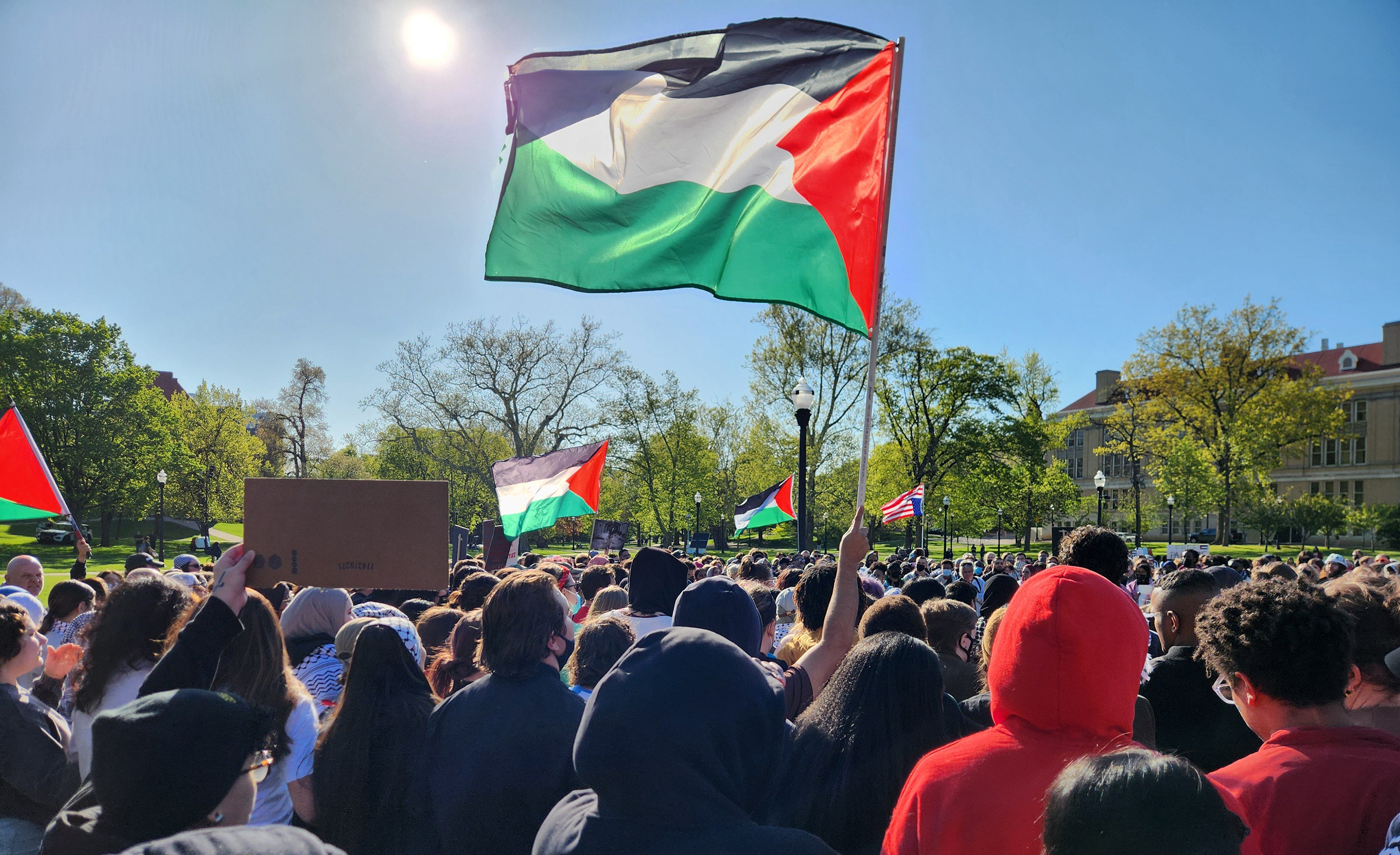
Demonstrators at Ohio State University were arrested on Thursday night after refusing to disperse, according to university spokesperson Benjamin Johnson.
Johnson did not know how many arrests were made.
“Well established university rules prohibit camping and overnight events. Demonstrators exercised their first amendment rights for several hours and were then instructed to disperse. Individuals who refused to leave after multiple warnings were arrested and charged with criminal trespass,” he said.
Columbia University senate is redrafting resolution to admonish school's president, New York Times reports
From CNN's Rob Frehse
Columbia University’s faculty senate is expected to vote Friday on a resolution admonishing embattled school president Minouche Shafik over several of her recent decisions, including calling in police to clear a student encampment last week, the New York Times reports .
The resolution would allow the school senate to avoid a censure vote during a critical time for the school, the Times reports, citing several unnamed senators who attended a closed-door meeting Wednesday. Some feared a censure vote would be perceived as giving in to Republican lawmakers, according to the paper.
A Columbia University spokesperson confirmed Shafik’s closed-door meeting with the senate on Wednesday but would not comment on the resolution to CNN.
“The President met with the Senate plenary in a closed-door session for close to an hour, giving remarks and taking questions. She reiterated the shared goal of restoring calm to campus so everyone can pursue their educational activities.”
Some context: Shafik has faced immense criticism from some students, faculty and Democratic lawmakers for her decision to authorize police to break up pro-Palestinian student protests last week— a move that resulted in more than 100 arrests .
Other students, Jewish advocacy groups and Republican lawmakers are slamming Shafik for not cracking down on protests — which they say have included antisemitic rhetoric — both on campus and outside its gates.
Several Republicans, including House Speaker Mike Johnson, have called for Shafik to resign.
CNN’s Maria Sole Campinoti contributed to this report.
What to know about the protests erupting on college campuses across the US
From CNN's Jordan Valinsky
Colleges across the country have erupted with pro-Palestinian protests, and school administrators are trying — and largely failing — to defuse the situation.
Several schools have called the police on protesters, leading to the arrests of hundreds across US campuses.
The recent surge in protests have inflamed tensions among students, forcing leadership to decide when free speech on campus crosses a line. The atmosphere was so charged that officials at Columbia – the epicenter of the protests that began last week – announced students can attend classes virtually starting Monday.
Passover, a major Jewish holiday, began this week, heightening fears among a number of Jewish students who have reported hearing antisemitic comments at some of the protests. The anxiety comes as reports of antisemitic acts have surged across America since October 7.
When did the protests start?
The situation escalated last week at Columbia University, where encampments were organized by Columbia University Apartheid Divest , a student-led coalition of more than 100 organizations, including Students for Justice in Palestine and Jewish Voice for Peace, to protest what they describe as the university’s “continued financial investment in corporations that profit from Israeli apartheid, genocide, and military occupation of Palestine,” according to its news release.
What are they asking for?
Columbia protesters say they won’t disperse until the school commits to a “complete divestment” of its funds from entities connected to Israel.
Other protesters are similarly calling on their campuses to divest from companies that sell weapons, construction equipment, technology services and other items to Israel.
Where else are protests happening?
Since last Thursday, a slew of campuses have had protests and encampments, as well as arrests. That includes the Massachusetts Institute of Technology , University of Texas at Austin, University of Michigan, University of New Mexico and University of California, Berkeley.
Police arrested nearly 100 protesters at the University of Southern California Wednesday after a dispersal order.
At Emerson College, more than 100 people were arrested Wednesday during a pro-Palestinian protest, according to the Boston Police Department.
Yale University police arrested at least 45 protesters Monday on suspicion of criminal trespassing, though dozens remained Tuesday.
Harvard University officials suspended a pro-Palestinian student organization for allegedly violating school policies.
Read more here .
Brown University says about 130 students violated school policy banning encampments
From CNN’s Isabel Rosales and Devon Sayers
Brown University has identified about 130 students who it alleges violated a school conduct code that forbids encampments on campus, a university spokesperson said.
The university's Office of Student Conduct and Community Standards has notified the students, who were identified through ID checks, spokesperson Brian Clark said in a release.
An encampment of about 90 people had formed on the school's Providence, Rhode Island campus Wednesday morning, according to Brown.
"Encampment on Brown University’s historic and residential greens is a violation of University policy, and participants in the encampment have been verbally informed of this fact and that they will face conduct proceedings,” the school's release said.
Students found responsible will be disciplined depending on their behavior and other factors, including any prior conduct violations, the university said, noting students could face probation or separation from the school.
“The University continues to ask individuals in or in immediate proximity to the encampment to present their Brown IDs for two reasons: to verify association with Brown for safety and security reasons, and to appropriately address potential violations of policy."
Protesters at Emory University briefly clash with police
From CNN's Elizabeth Wolfe
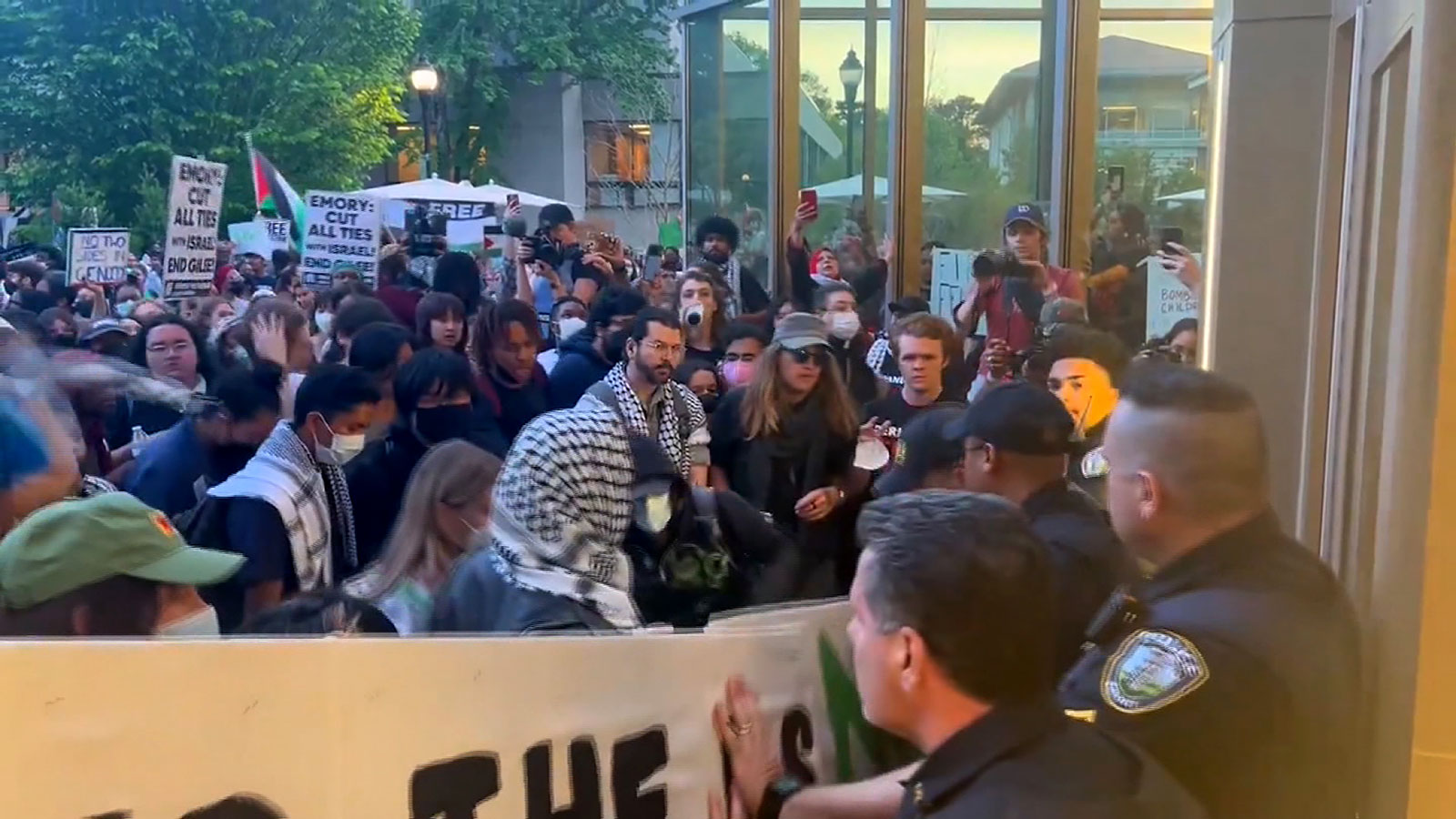
Protesters briefly clashed with police at Emory University in Georgia on Thursday, the university told CNN.
A confrontation between protesters and police outside the school's Candler School of Theology prompted an "increased law enforcement presence" on campus, according to the university.
"A group of about 100 people left the Quad and marched to the Candler School of Theology, where some protesters pinned police officers against building doors and attempted to access the building," the university said.
"The crowd ultimately returned to the Quad before dispersing."
Video from CNN affiliate WSB shows some protesters using large posters to push into a line of police officers whose backs are against the doors of the building. As officers push back against the posters, one demonstrator chucks their sign at the row of officers.
Please enable JavaScript for a better experience.
Watch CBS News
Pro-Palestinian groups protest at Princeton University amid wave of college protests
By Joe Brandt
Updated on: April 25, 2024 / 6:09 PM EDT / CBS Philadelphia
PRINCETON, N.J. (CBS) -- Two Princeton University students were arrested for trespassing on Thursday at a pro-Palestinian protest, a university spokesman said.
A pro-Palestinian student group at Princeton announced on social media that it was launching a "Gaza Solidarity encampment" at the university's McCosh Courtyard at 7 a.m. Thursday, demanding the university divest from Israel and call for a cease-fire in the Israel-Hamas war.
The protesters and student groups expressed support for the wave of support for Palestinians on college quads across the country, inspired by encampments at Barnard College and Columbia University in New York .

The Princeton spokesperson said the gathering consisted of "fewer than 100 people" and that "a small number began erecting about a half-dozen tents, which is a violation of University policy."
After warnings from security to leave the area, two graduate students were arrested, the spokesperson said. The protesters then took down their tents.
The two students who were arrested are now barred from campus, Princeton's spokesperson said.
Images from Chopper 3 showed students were still gathered on campus after the arrests took place. Students were holding Palestinian flags and a large sign appeared to be hanging from a tree reading "Popular University for Gaza."
A letter from the university's vice president for campus life, W. Rochelle Calhoun, informed students that "[a]ny individual involved in an encampment, occupation, or other unlawful disruptive conduct who refuses to stop after a warning will be arrested and immediately barred from campus."

"Some types of protest actions (including occupying or blocking access to buildings, establishing outdoor encampments and sleeping in any campus outdoor space) are inherently unsafe for both those involved and for bystanders, and they increase the potential for escalation and confrontation," Calhoun said. "They are also inconsistent with the University's mission and its legal obligation to provide a safe environment for all students and employees."
Other protests around the country were continuing Thursday.
Columbia has switched to remote learning for the final weeks of the semester after a pro-Palestinian encampment launched on school grounds. University President Minouche Shafik has said if the school and protesters cannot reach an agreement to clear the grounds by Friday , she will find alternative options for clearing out the encampment, CBS New York reported.
In Boston, over 100 people were arrested as police cleared out a pro-Palestinian encampment at Emerson College overnight. Boston Police told CBS News Boston that three officers received minor injuries and one was seriously injured.
Israel's Prime Minister, Benjamin Netanyahu, has condemned the campus protests as antisemitic and compared them to rallies held in Nazi Germany. Young Palestinians told CBS News they appreciated the American students' support.
- Palestinians
- Princeton University
Joe Brandt has been a digital content producer for CBS News Philadelphia since 2022. He is a Temple University graduate and was born and raised in Pitman, NJ.
Featured Local Savings
More from cbs news.
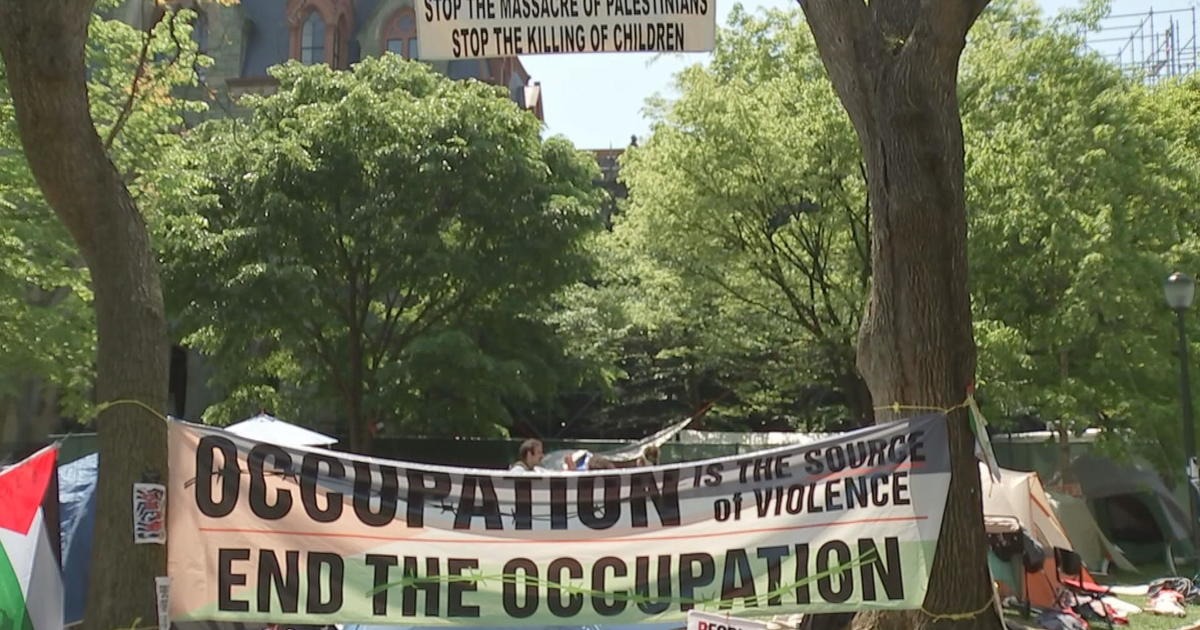
Penn, Swarthmore College students continue pro-Palestinian encampments
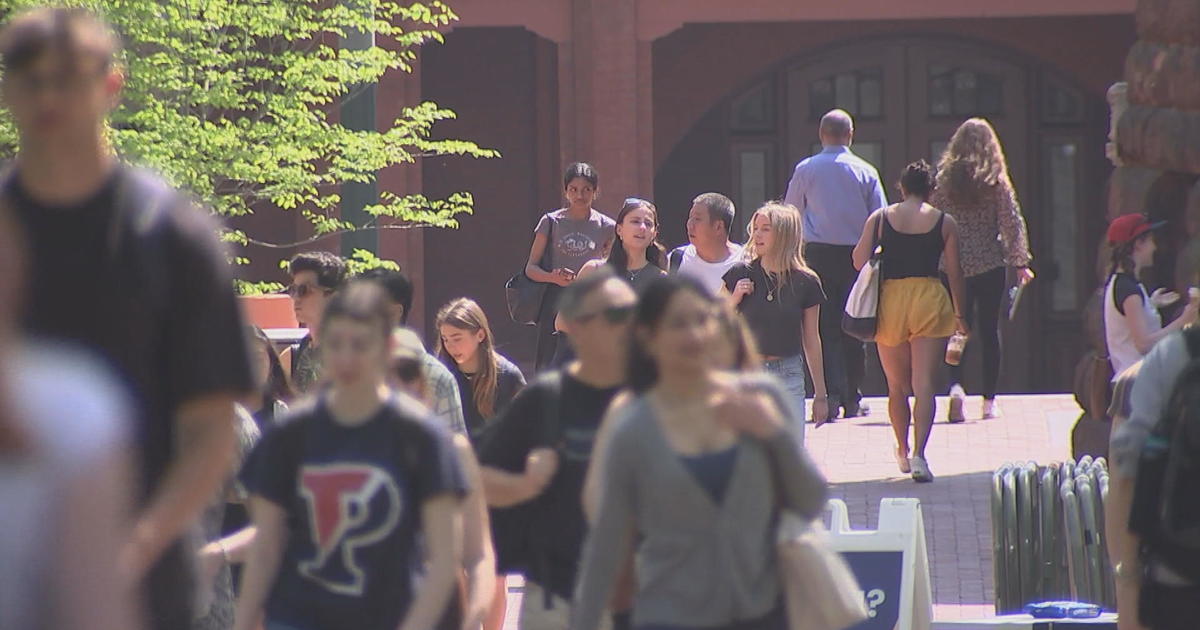
Penn seniors worry about graduation, traditions as pro-Palestinian encampment remains
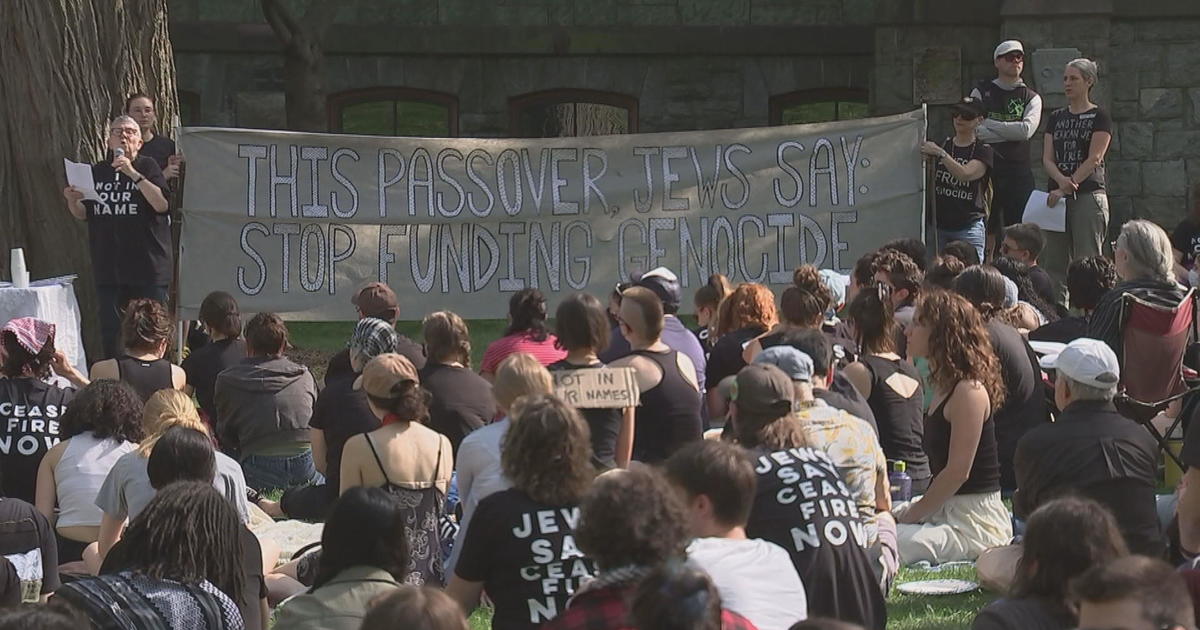
Passover Seder held near protest encampment at Penn
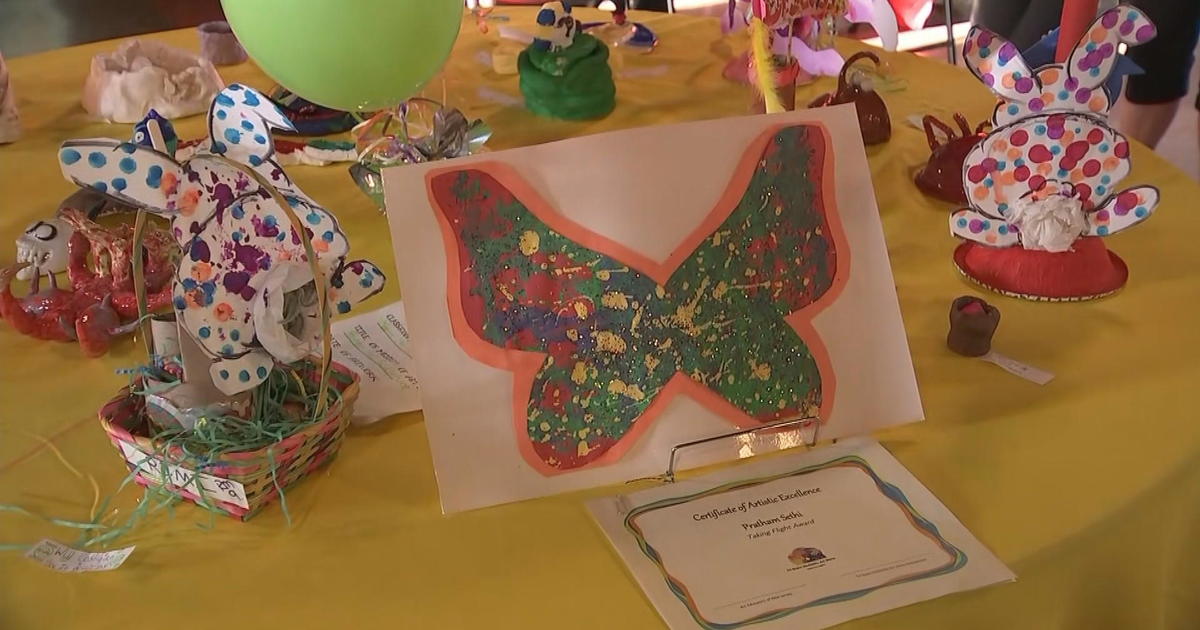
Tri-State DisAbility Art Show in South Jersey showcases work from students with disabilities

IMAGES
VIDEO
COMMENTS
PhD Cohort 2012. Nipissing University sits on the territory of Nipissing First Nation, the territory of the Anishnabek, within lands protected by the Robinson Huron Treaty of 1850. We are grateful to be able to live and learn on these lands with all our relations.
Invest in your academic journey with a plethora of awards, bursaries, scholarships, and diverse funding opportunities awaiting graduate students at Nipissing University. Our commitment to supporting your educational pursuits is reflected in a range of financial assistance programs designed to recognize excellence, facilitate research, and ...
Nipissing University has approximately 5000 undergraduate students, the majority of which are full-time students, and 150 graduate students (current as of 2016). Applicants entering from high school must have a minimum of 70%, or 75% if applying for a degree in Criminal Justice or Concurrent Education, to be considered for full-time (30 credits ...
Funding is available to graduate students from both internal and external sources. Internal funding includes teaching/research assistantships, faculty research grants, and Nipissing University Graduate Scholarships (NUGS). Students are encouraged to compete for external scholarships, too. For more information, visit:
All studies; Education; North America; Canada; Nipissing University; Education (Educational Sustainability) About. Grounded in the context of a post-modern society, and recognizing the importance of multiple perspectives, the Education (Educational Sustainability) program at Nipissing University will prepare students from a variety of fields, such as education, health, social work, social ...
1. This post comes to us compliments of Melissa Corrente. Melissa is a part-time instructor of Health and Physical Education studies at the Schulich School of Education at Nipissing University, North Bay. Melissa will be contributing an additional piece in the new year about preparing for the comprehensive exam at PhD level.
Your tuition and fees will depend on the number of credits you take at Nipissing University. TUITION AND FEES INFORMATION 100 College Drive, North Bay ON P1B 8L7 Canada | [email protected] | 705.474.3450 ext. 4321
Vanier Canada Graduate Scholarship . Merit-based Need-based. Read more about eligibility . Canadian Government. Location not available . Independent provider. Grant. 100000 USD. ... The Nipissing University Student Union (NUSU) is the official body representing the student point of view at Nipissing. All students, both full-time and part-time ...
2. This post comes to us compliments of Melissa Corrente. Melissa is a part-time instructor of Health and Physical Education studies at the Schulich School of Education at Nipissing University, North Bay. We'd like to thank Melissa for shining some light on the comprehensive exam, and for demystifying the PhD rite of passage with such humour.
Nipissing's talented and knowledgeable group of researchers extends beyond its faculty members to include both undergraduate and graduate students. On Tuesday, March 26, Nipissing highlighted the prowess of its graduate students at its annual Three Minute Thesis Competition (3MT®) in the Nipissing Theatre. This University-wide event challenges ...
Campus. Nipissing University's campus is centrally located in Ontario near Lake Nipissing in the North Bay. The campus shares a vibrant destination with 3.5 hours drive from Toronto and 4 hours drive from Ottawa. The University is accessible to the nearest train and airport facilities at a routine 15 minutes journey.
Previous Nipissing students who have not registered in courses for more than a 18-month period are required to apply for readmission before they will be permitted to ... have access to university facilities and are expected to take part in the academic life of their program and the university. All graduate students are deemed to be full-time ...
The national awards recognize and support outstanding grad students from across the country in science, technology, engineering and mathematics (STEM) fields who are pursuing research-based master's and doctoral degrees. PhD students Caleb Song and Jennifer Wu are each receiving the honor for 2024. Find out more about their research below.
NEW HAVEN, Conn. (AP) — A former researcher at the Massachusetts Institute of Technology was sentenced Tuesday to 35 years in prison for the killing of a Yale University graduate student found shot outside his car on a Connecticut street.. Qinxuan Pan, 33, who pleaded guilty to murder in February, apologized during a hearing in a New Haven courtroom packed with family and friends of the ...
The Graduate Assistant for International Student Career Development will work with the Assistant Director for International Student Career Development and the Senior Assistant Director for Inclusion Initiatives at The Career Center to support and further international student career development through direct training and mentoring of international students.
Two Princeton University graduate students were arrested during a pro-Palestinian protest on campus Thursday morning, university officials said. After the university's Department of Public ...
Elon faculty and staff members Kenneth Brown, Laké Laosebikan-Buggs, Amy Overman, Elana Gutmann, Darynha Gnep and Travella Free were co-presenters of a roundtable session on first-generation graduate students at the Gardner Institute's inaugural conference focusing on graduate students that was recently highlighted in a Chronicle of Higher Education article.
1:41 p.m. ET, April 25, 2024 At least two professors detained during Emory University protests. From CNN's Nick Valencia
Noting that the last time a Columbia University president summoned the police to disperse student demonstrators was back in 1968, at the height of the Vietnam War, Rachel said what she called ...
1:18 a.m. ET, April 26, 2024 Progress in negotiations between Columbia protesters and administrators, university says. From CNN's Paradise Afshar
Princeton University students set up pro-Palestinian encampment on campus 17:03. A letter from the university's vice president for campus life, W. Rochelle Calhoun, informed students that "[a]ny ...
People march during a rally to save St. Augustine's University in Raleigh, N.C. on Monday, April 29, 2024. The event was organized by the Capital City Hope Foundation, Falcons Unite, and the ...